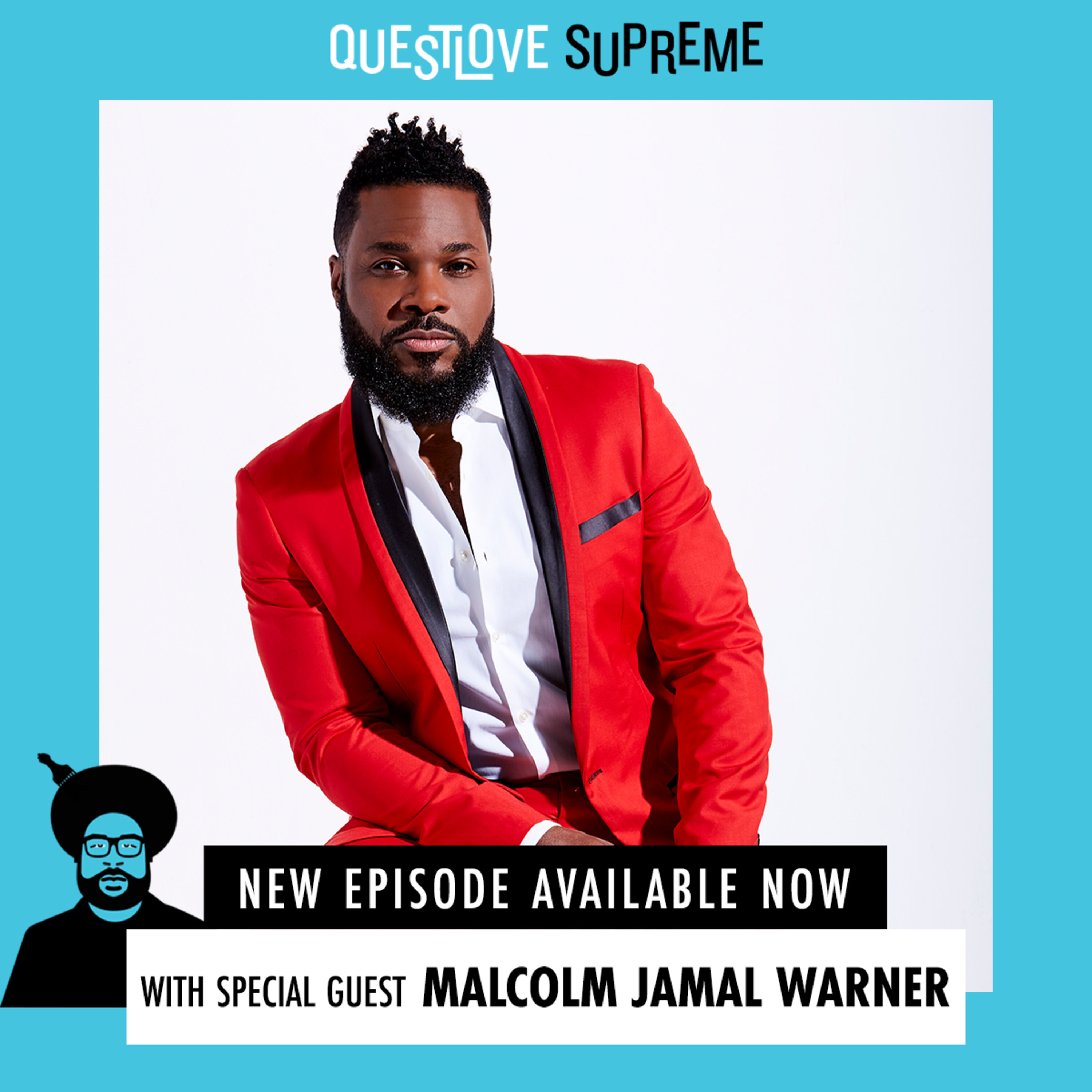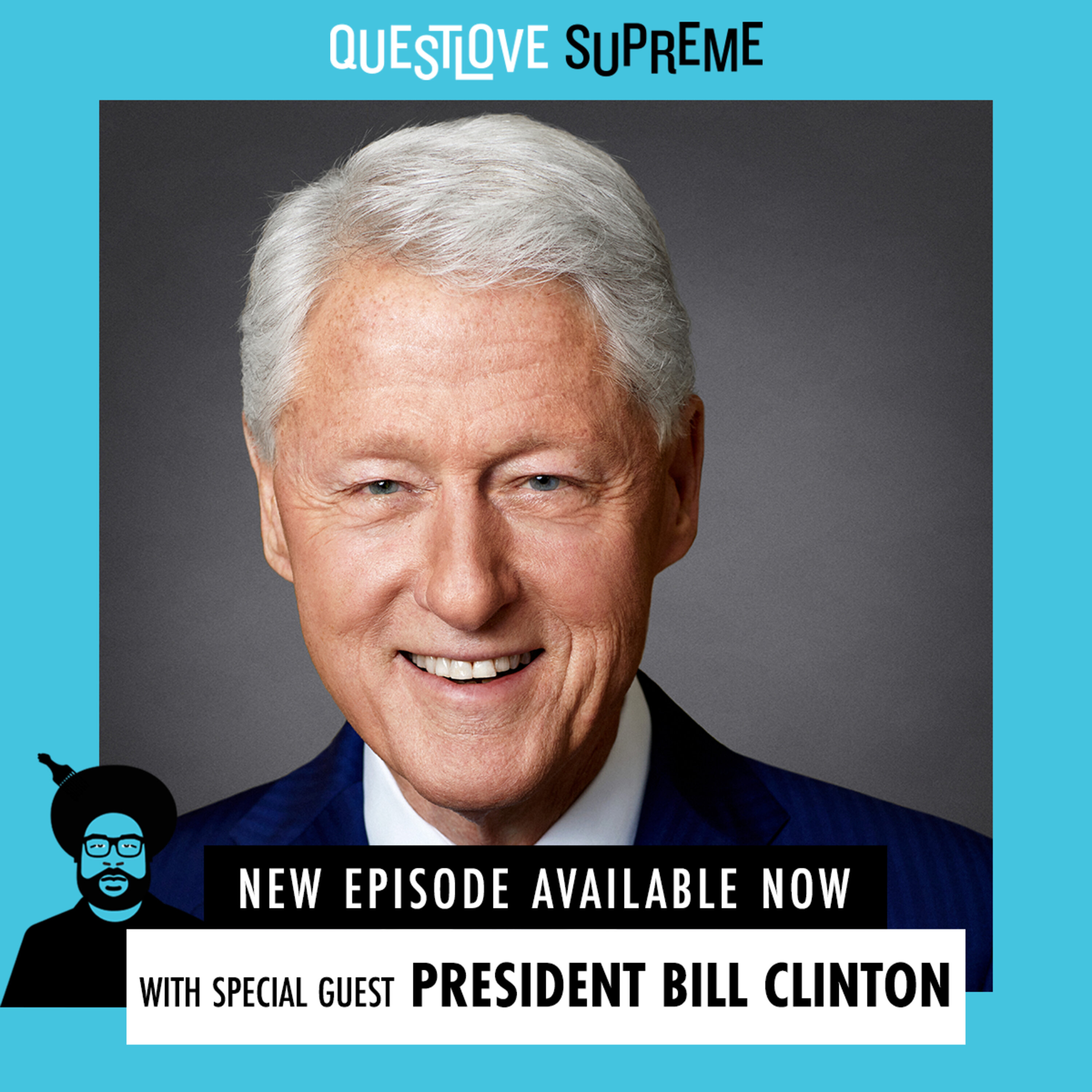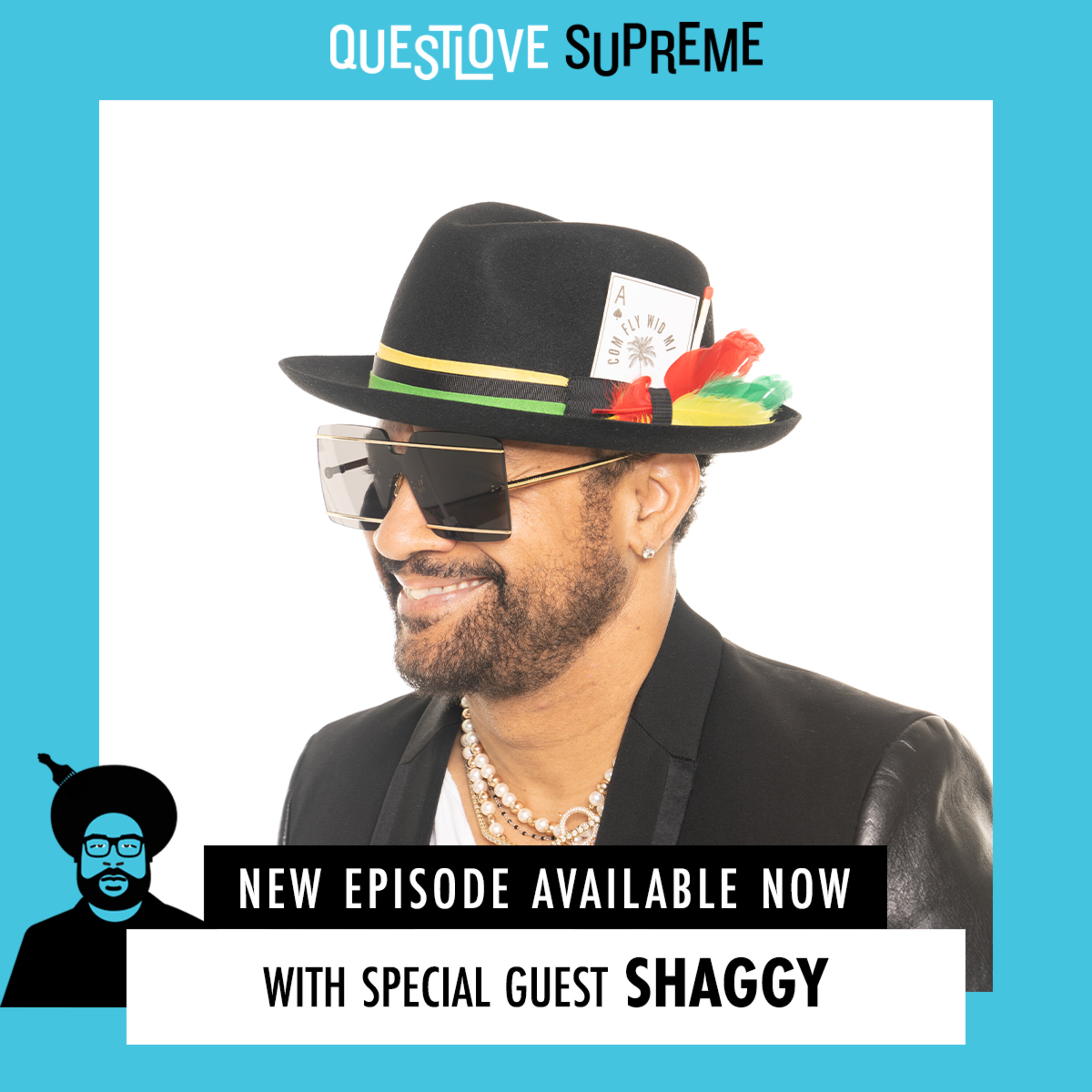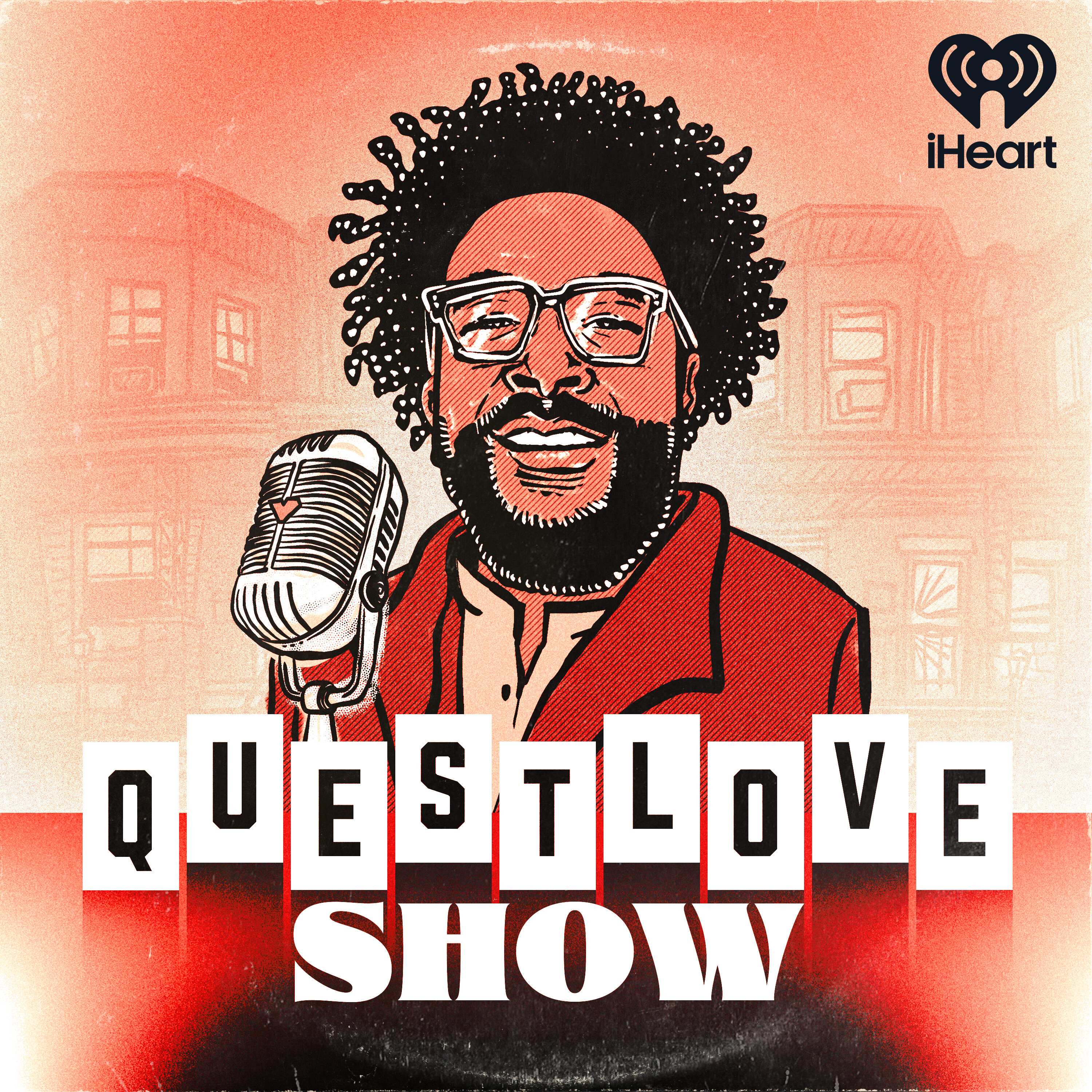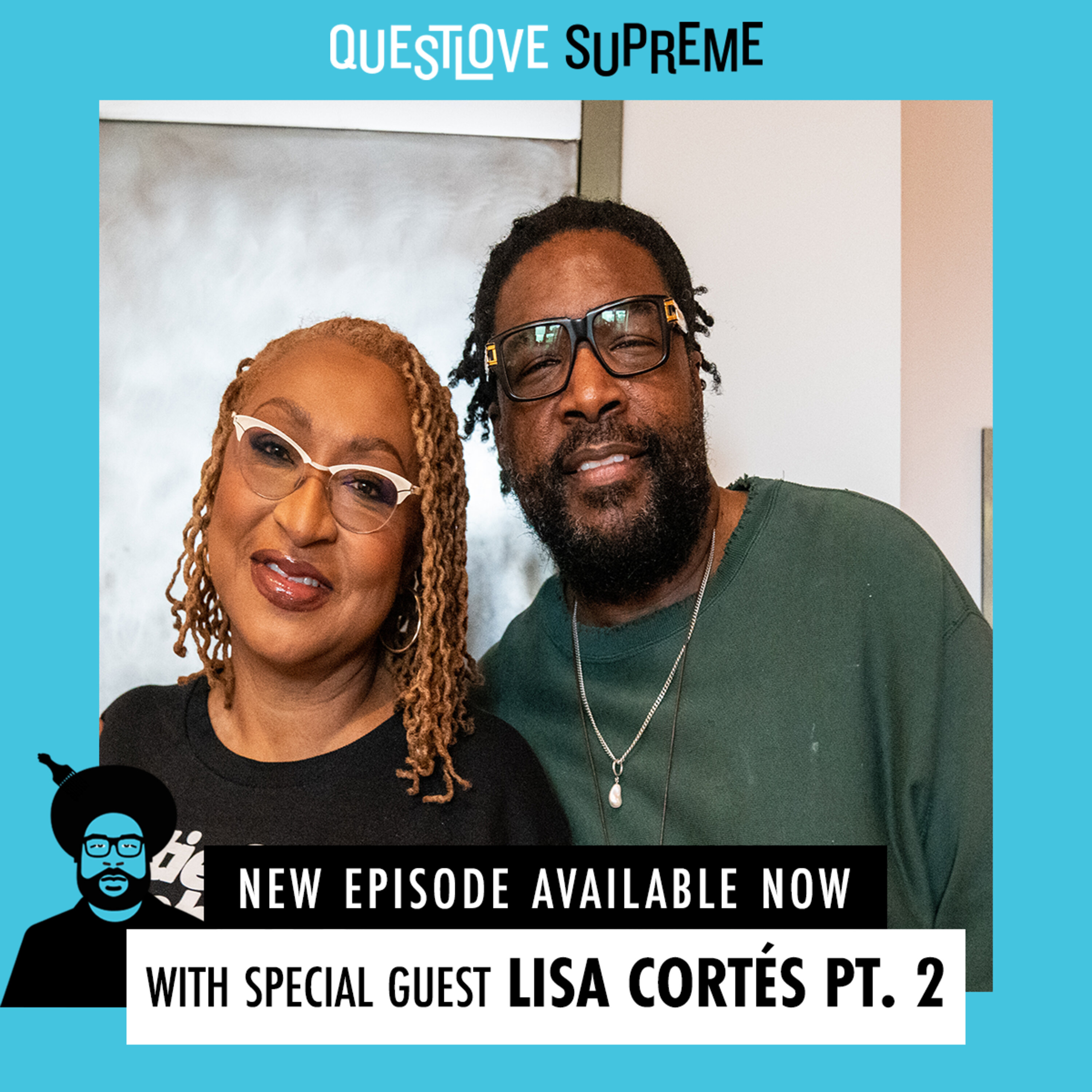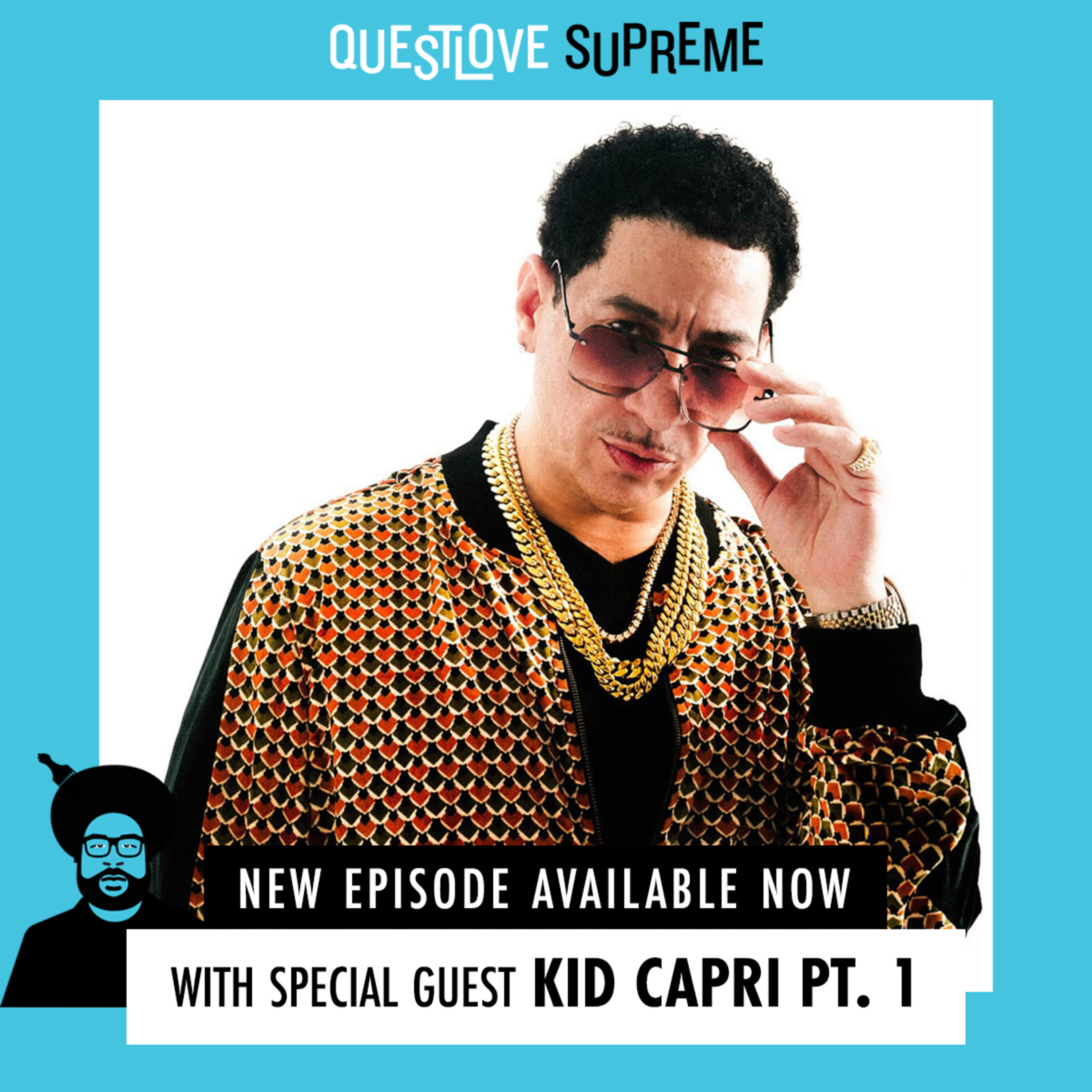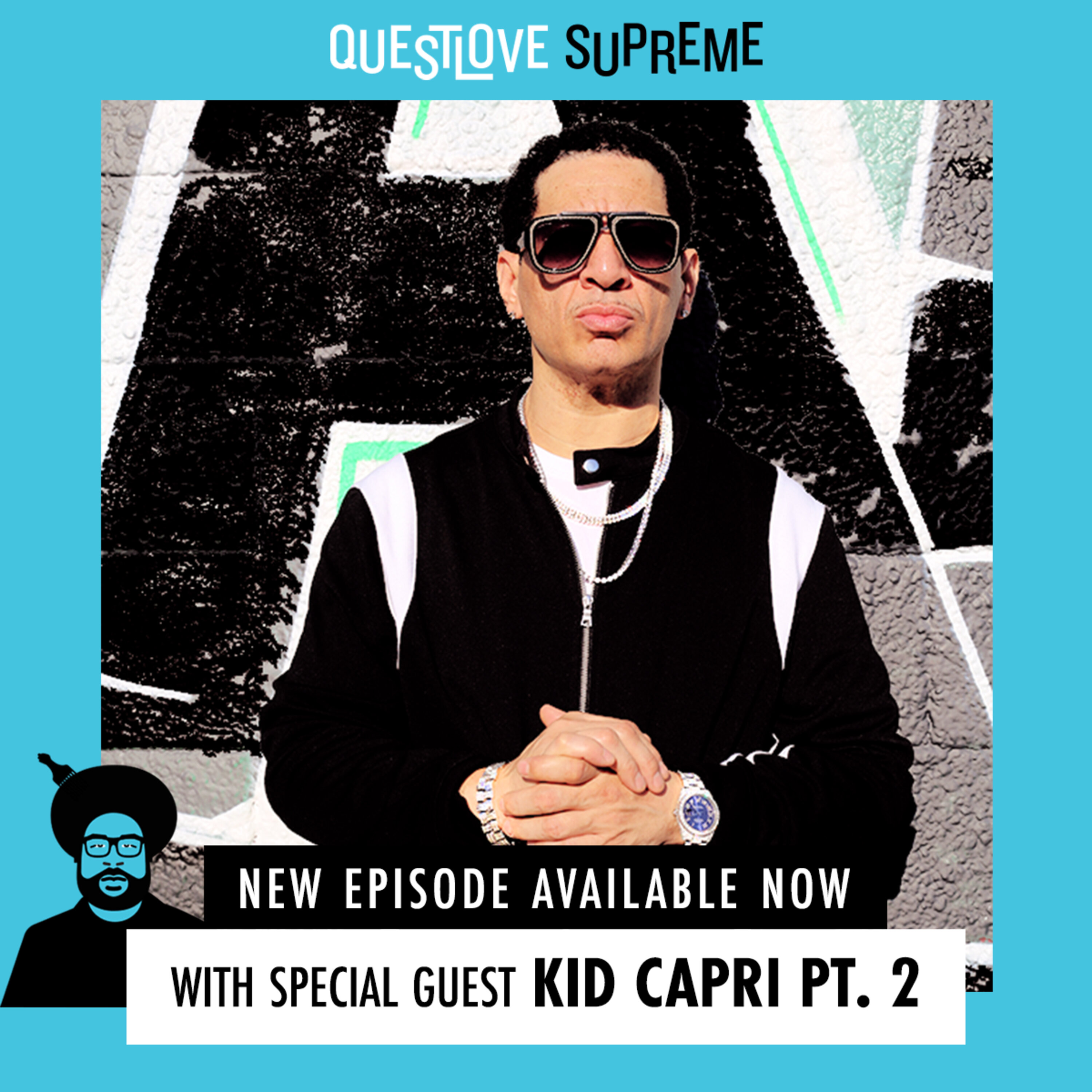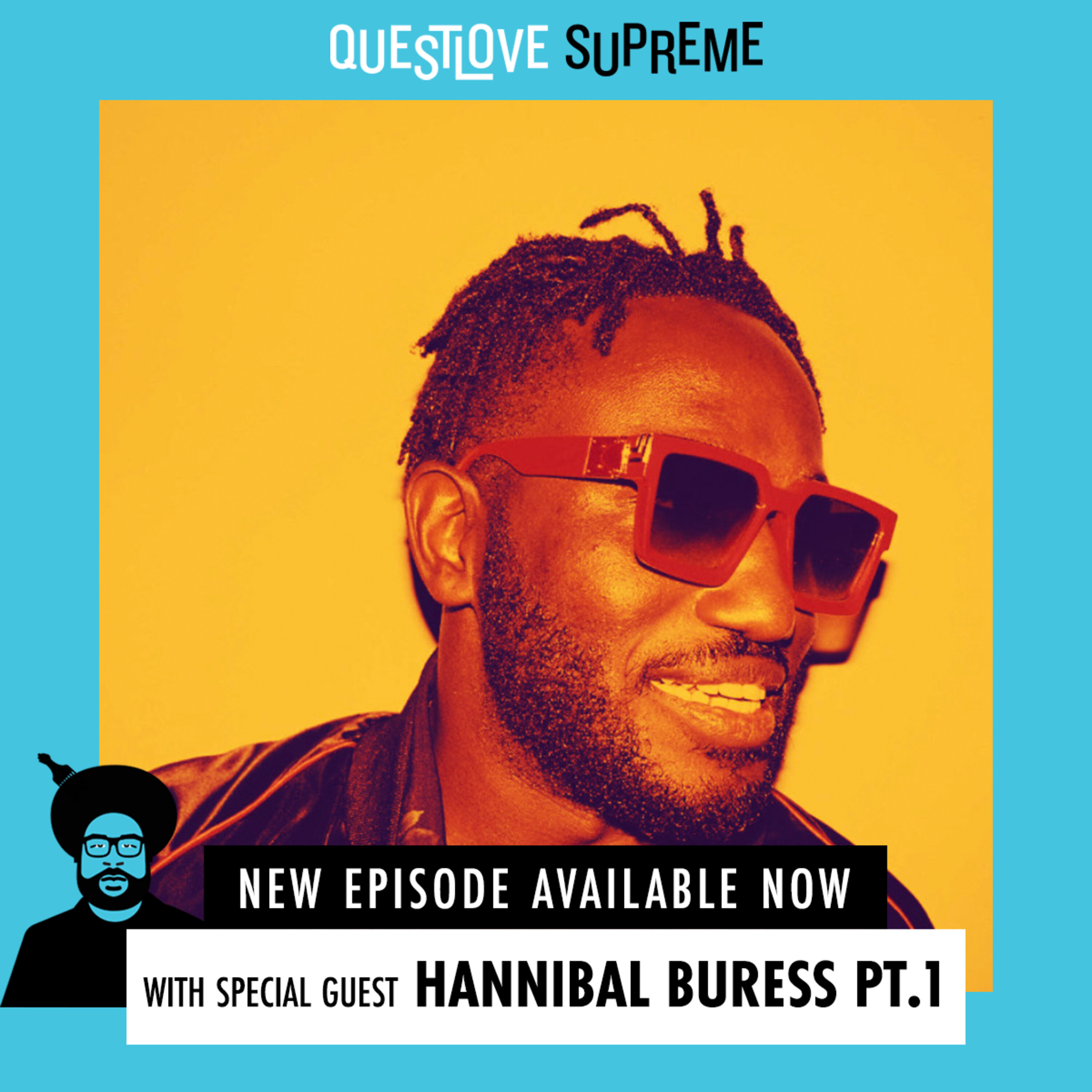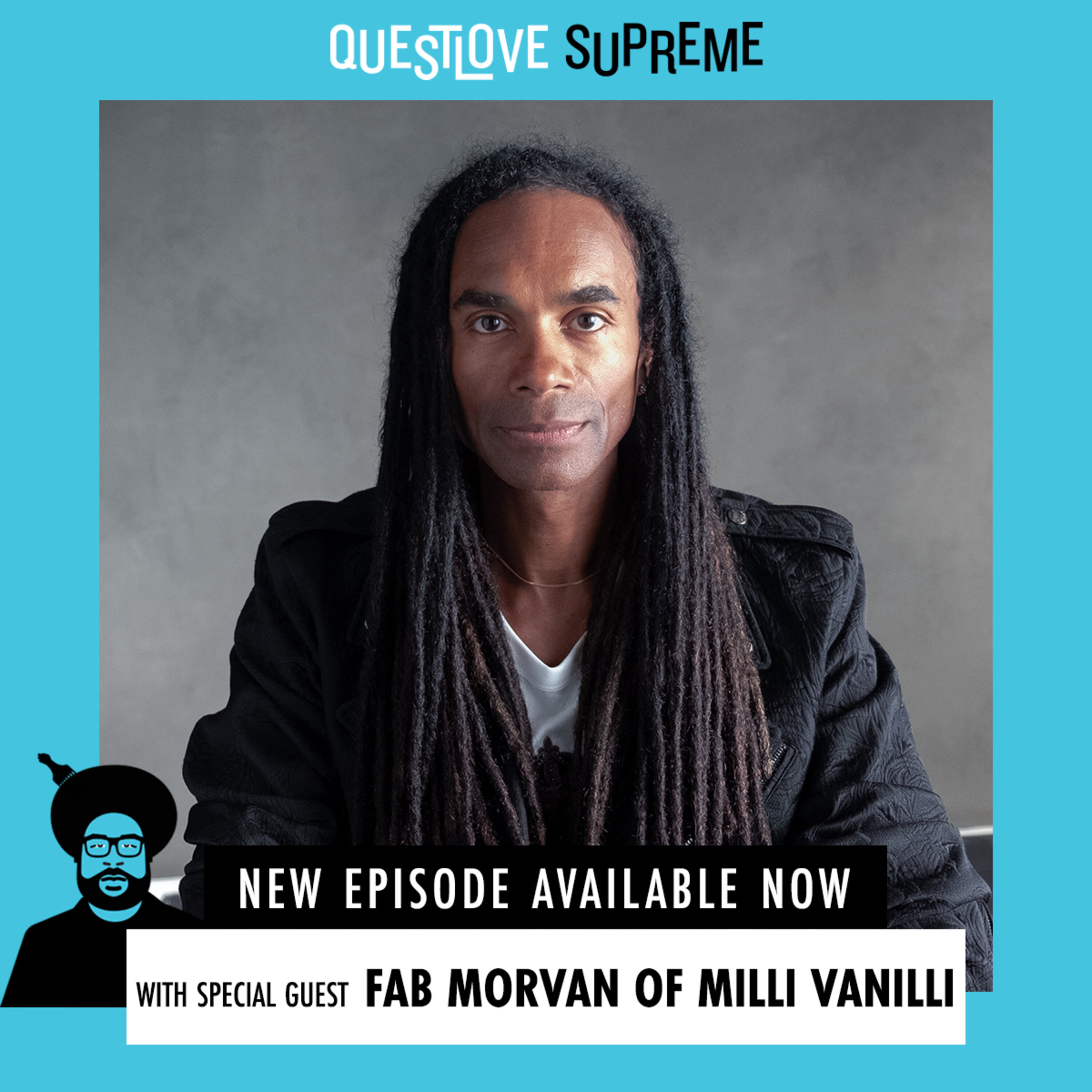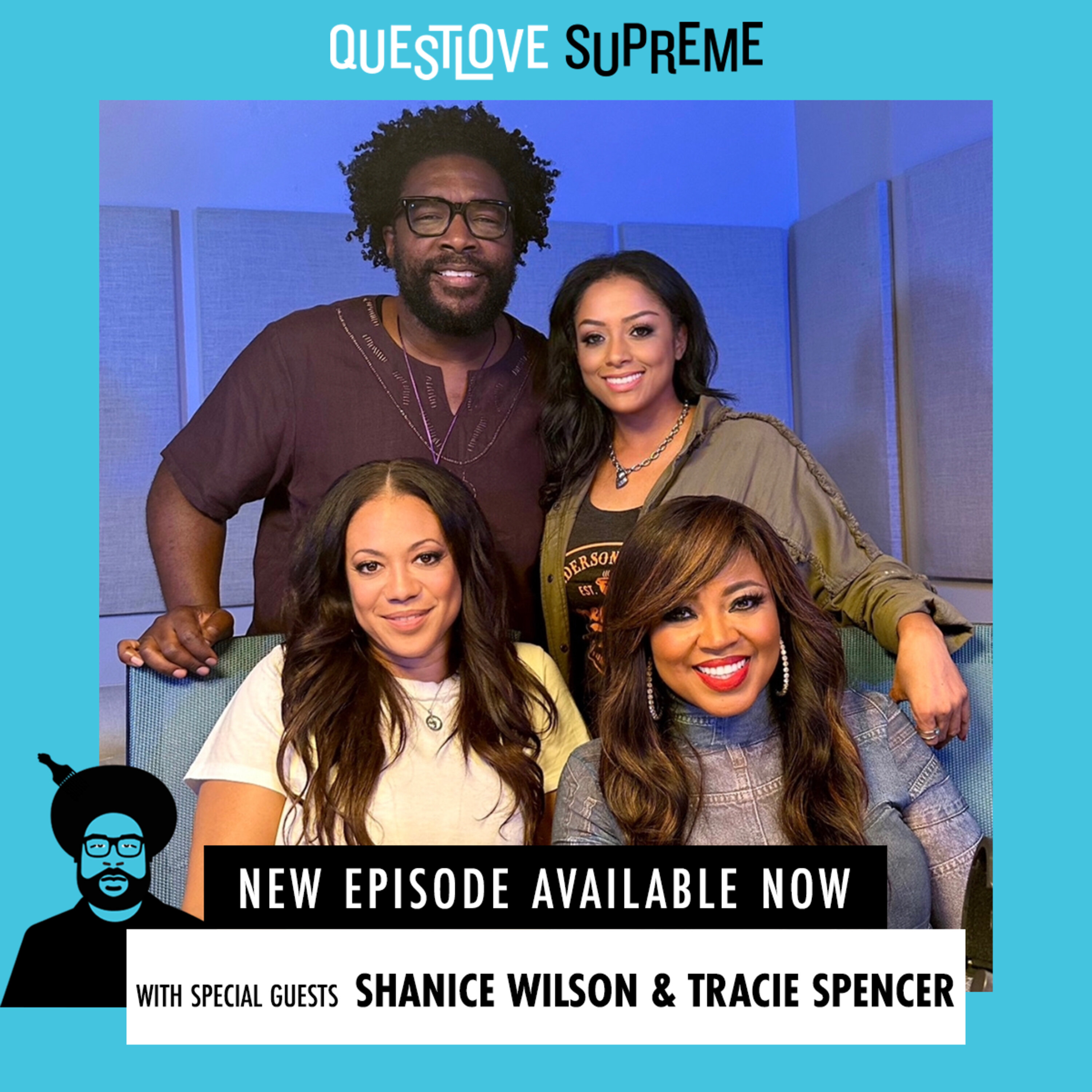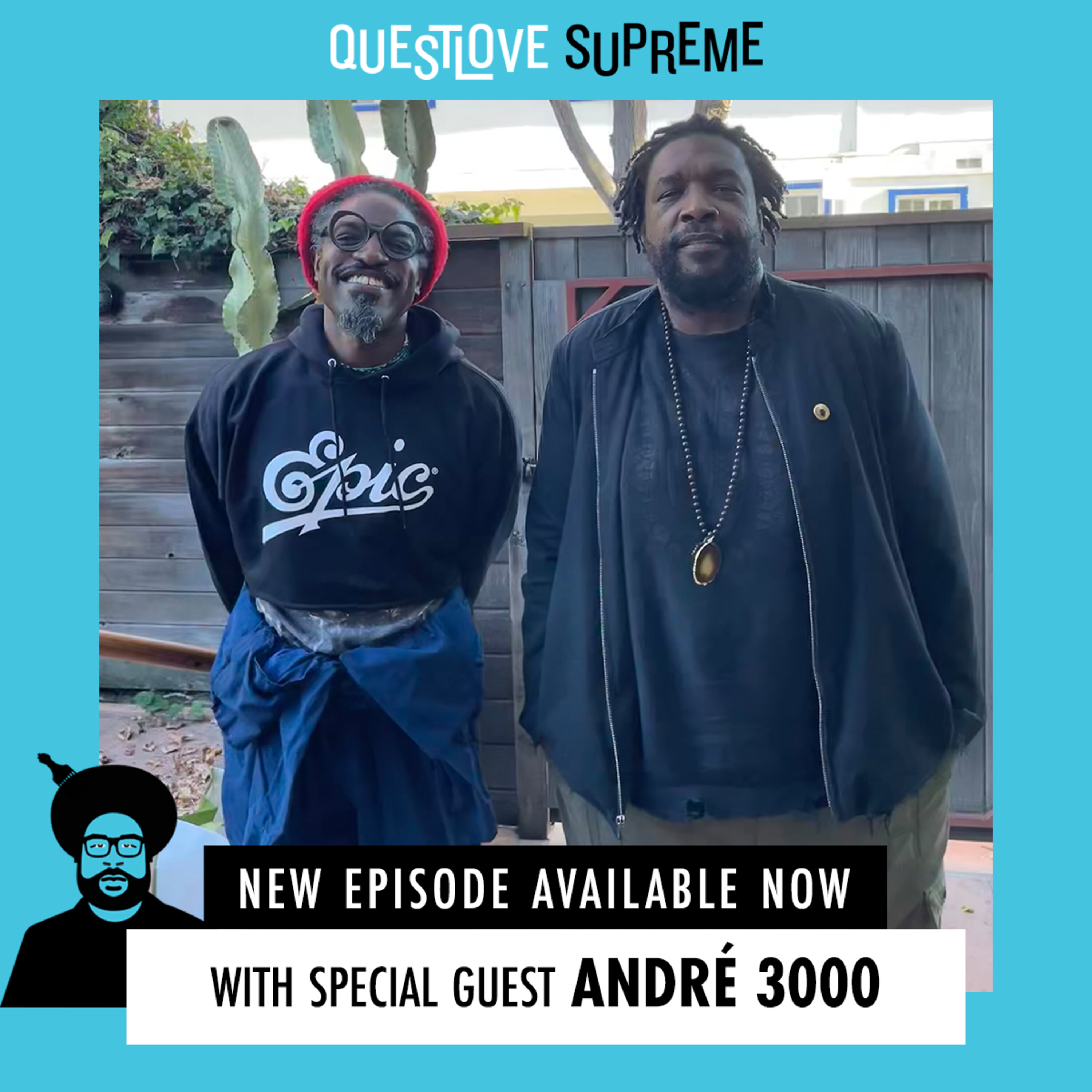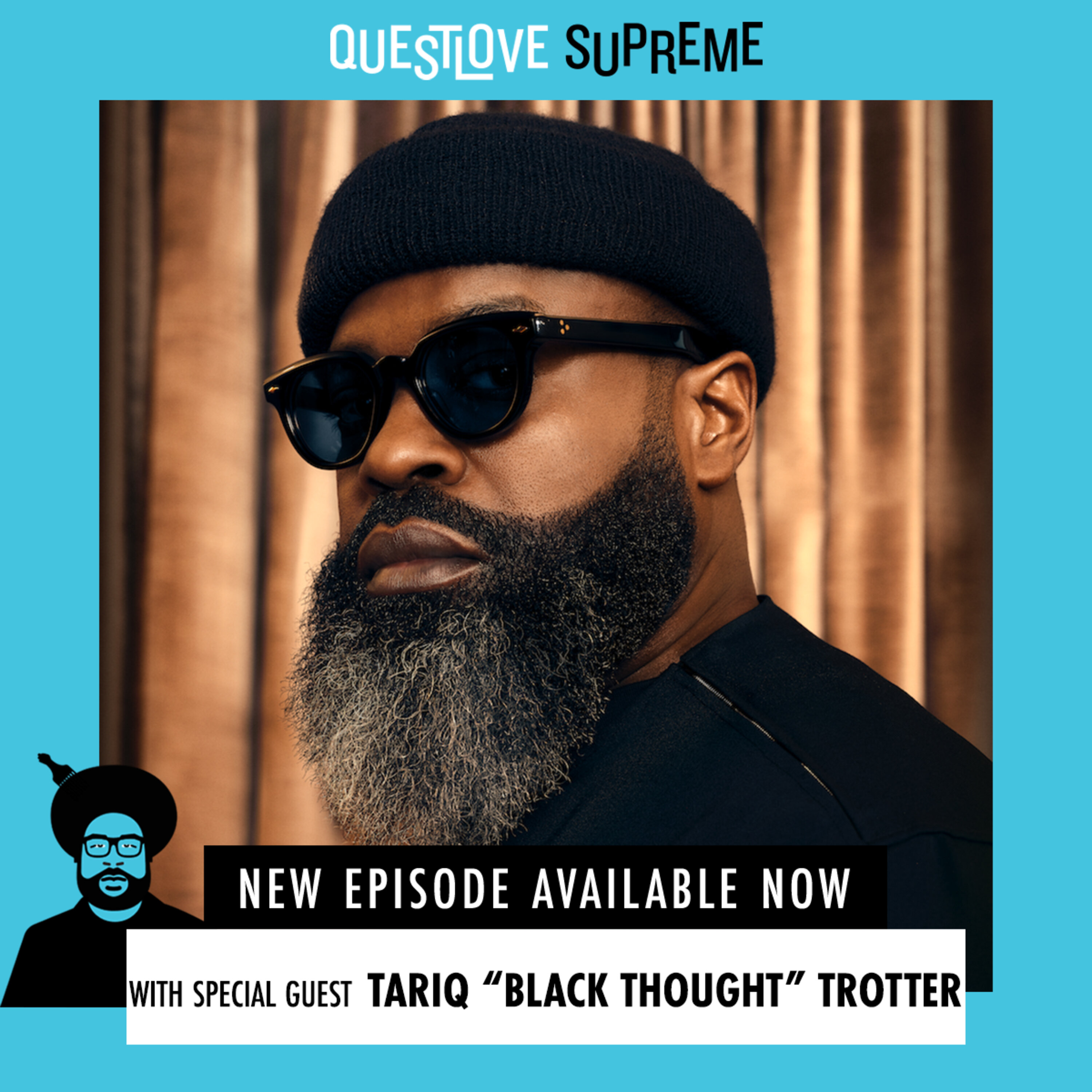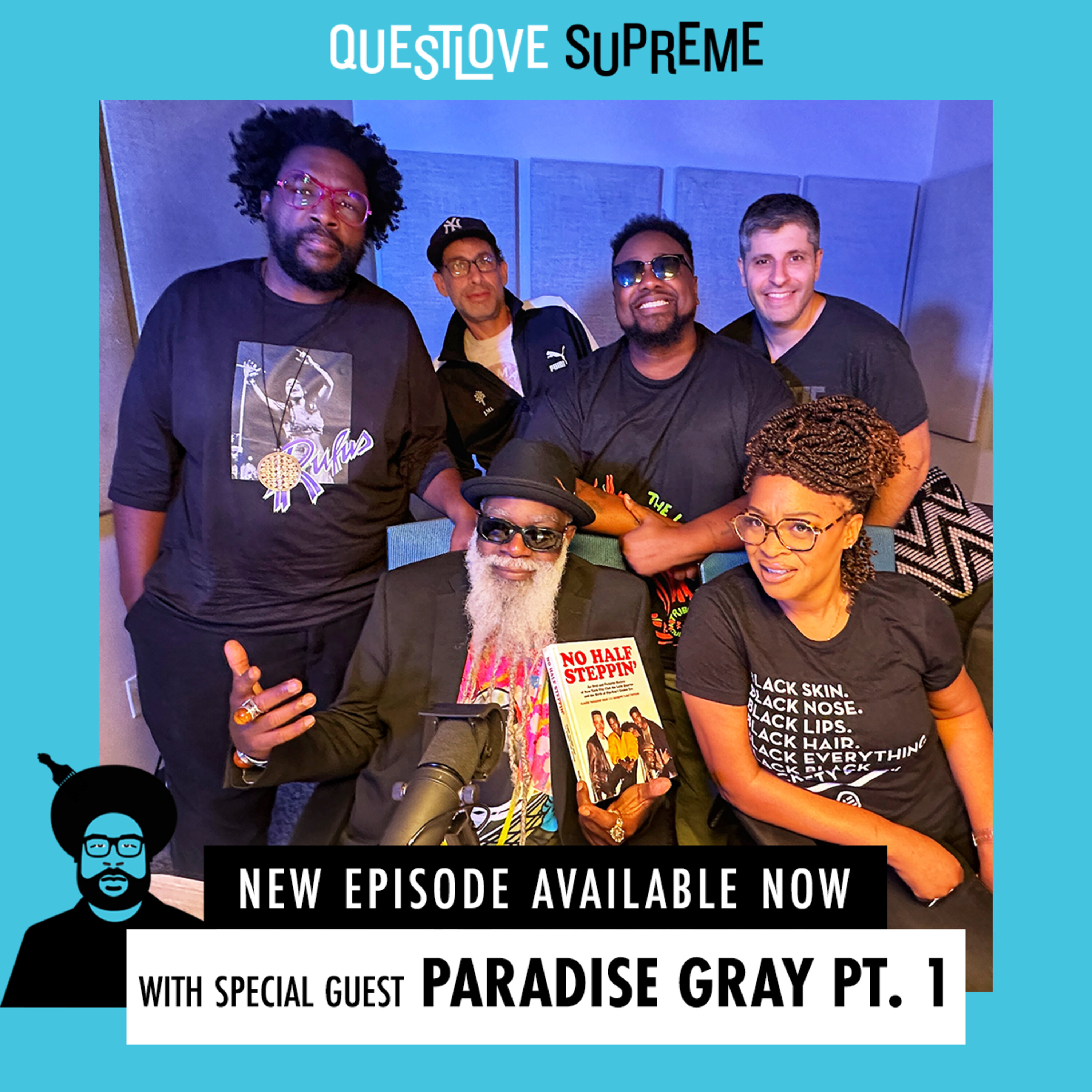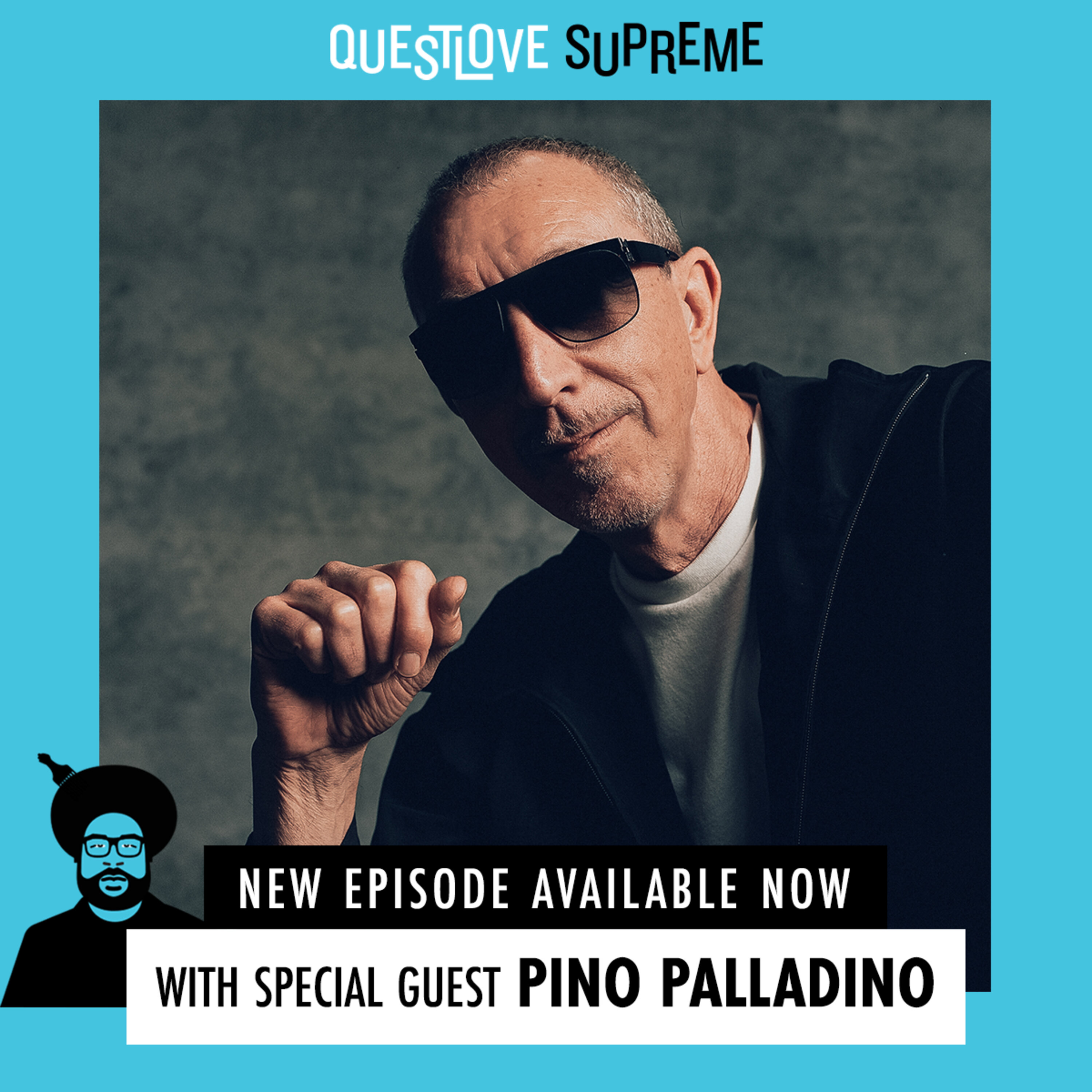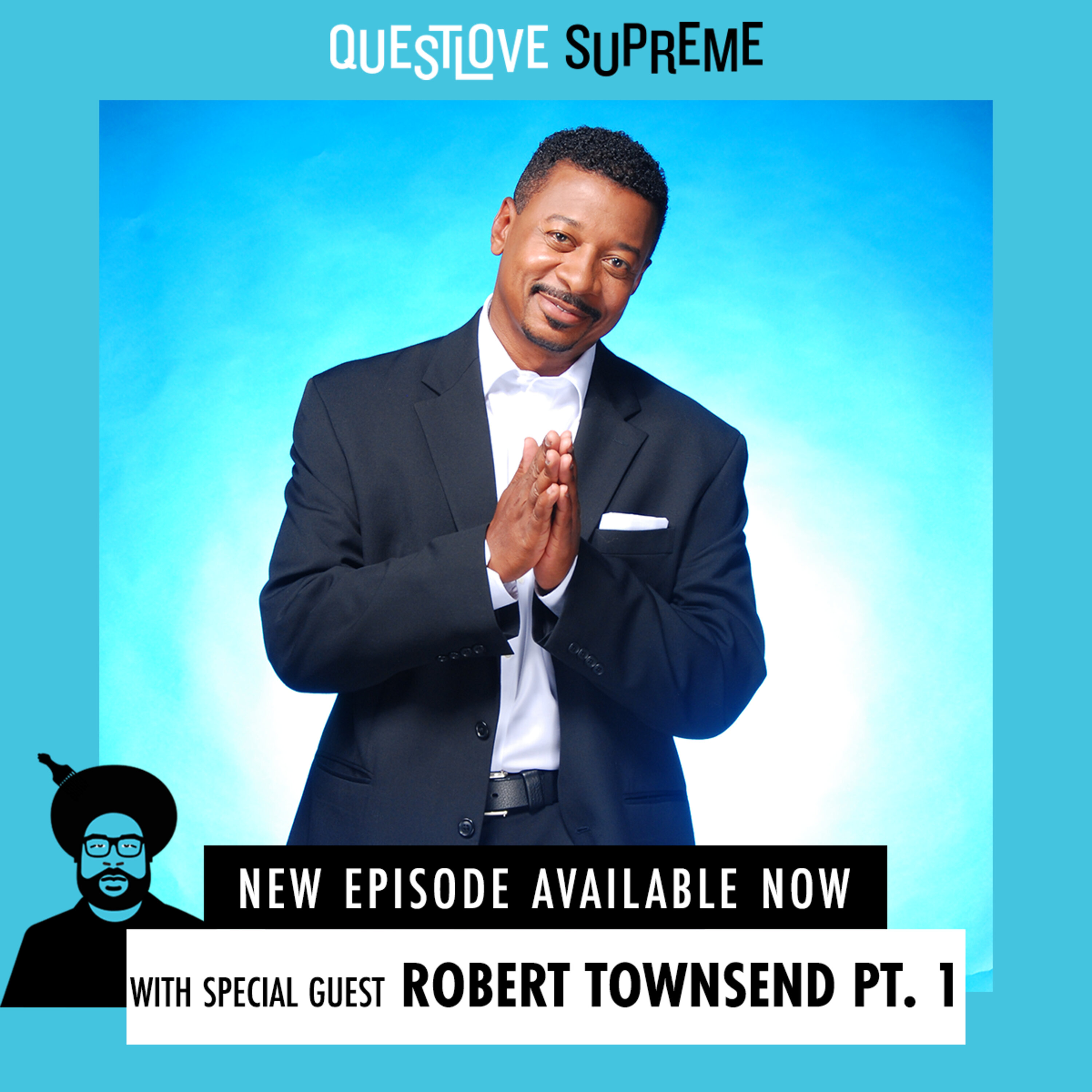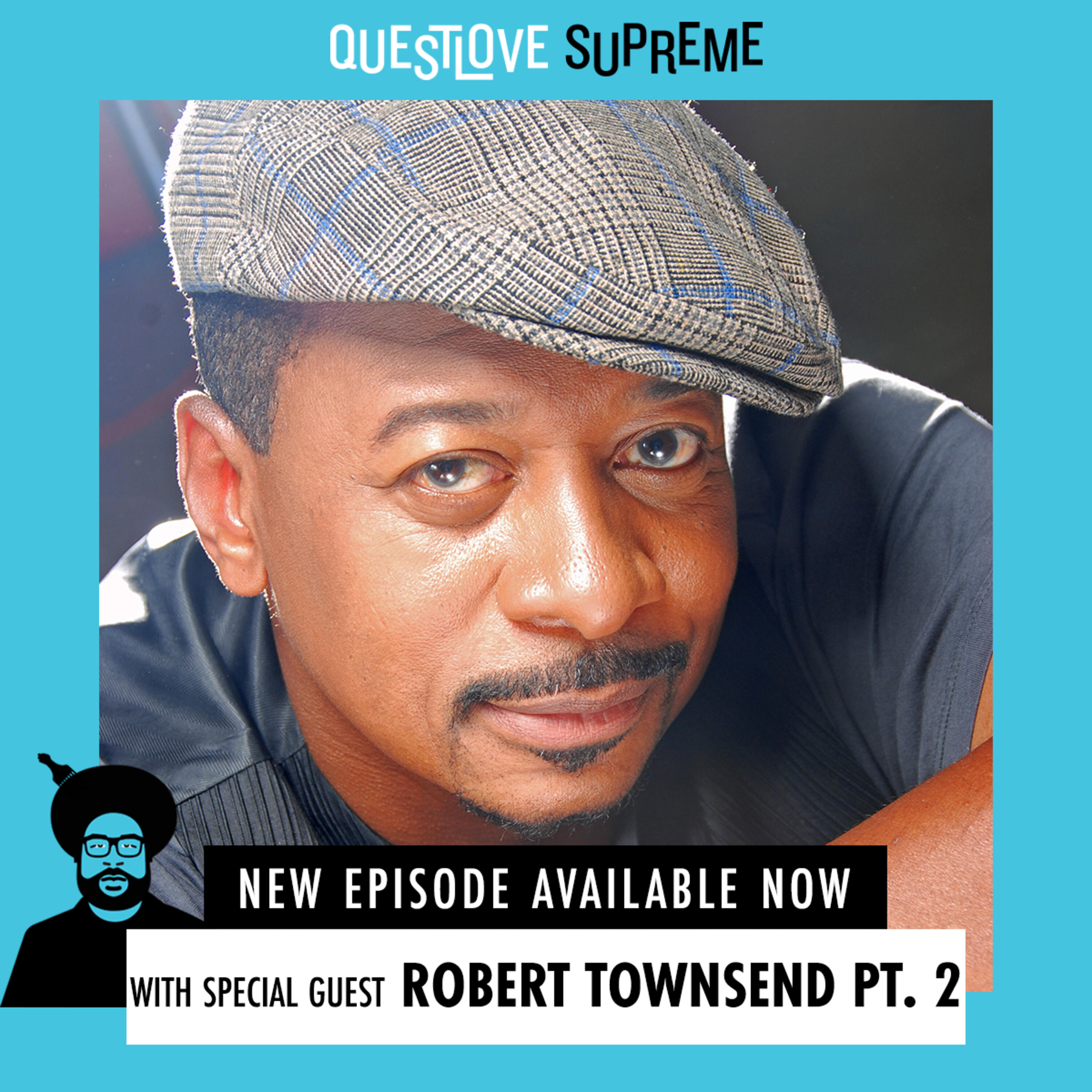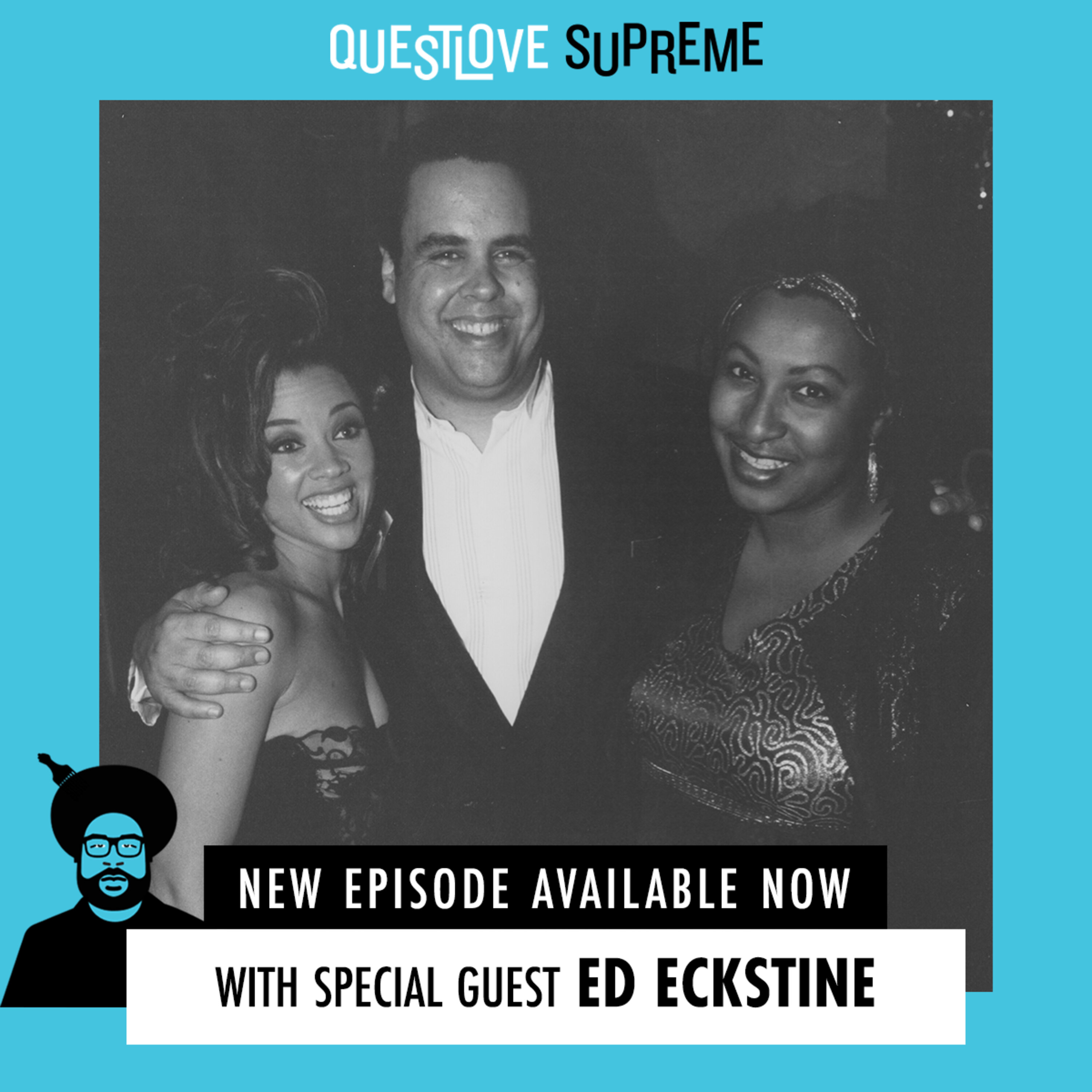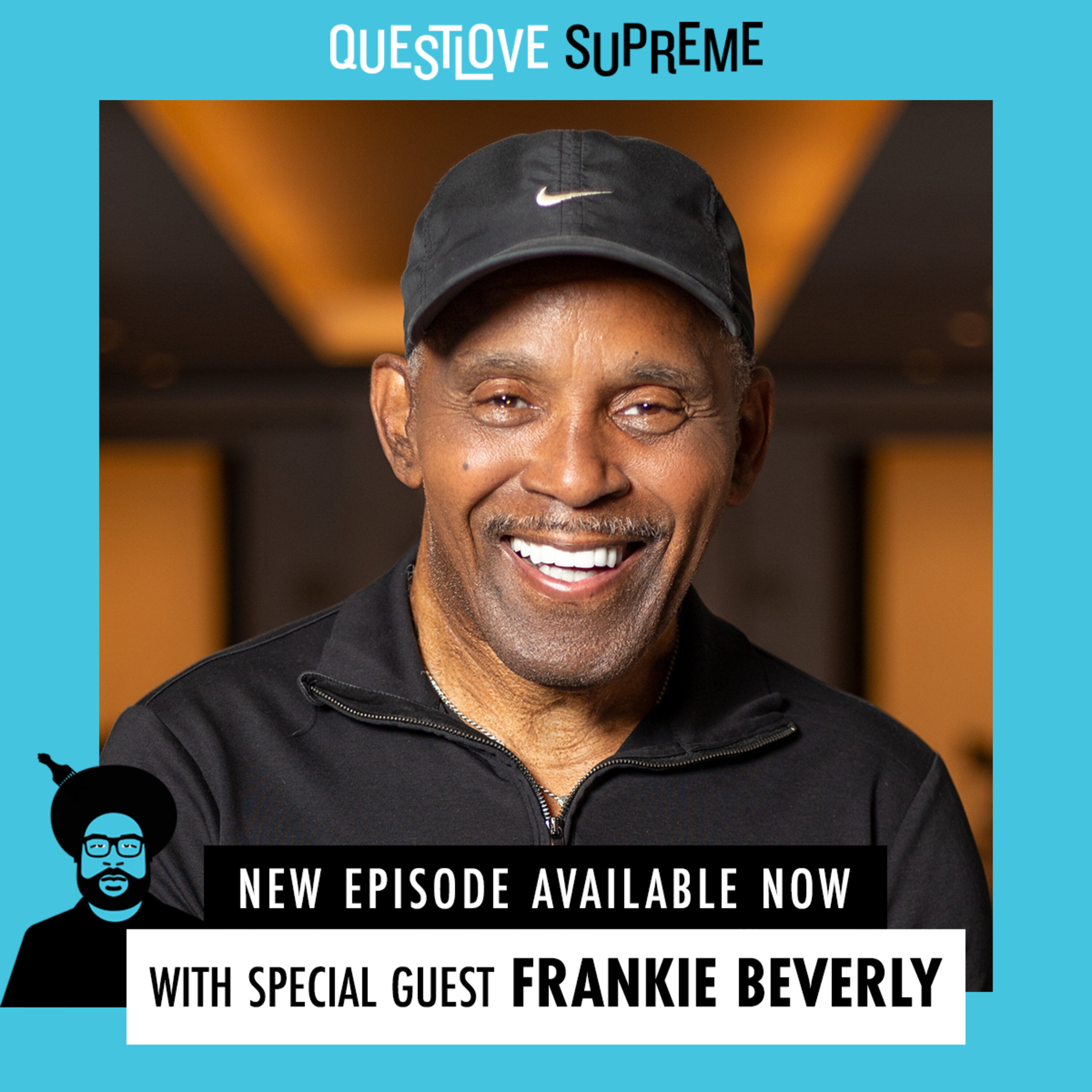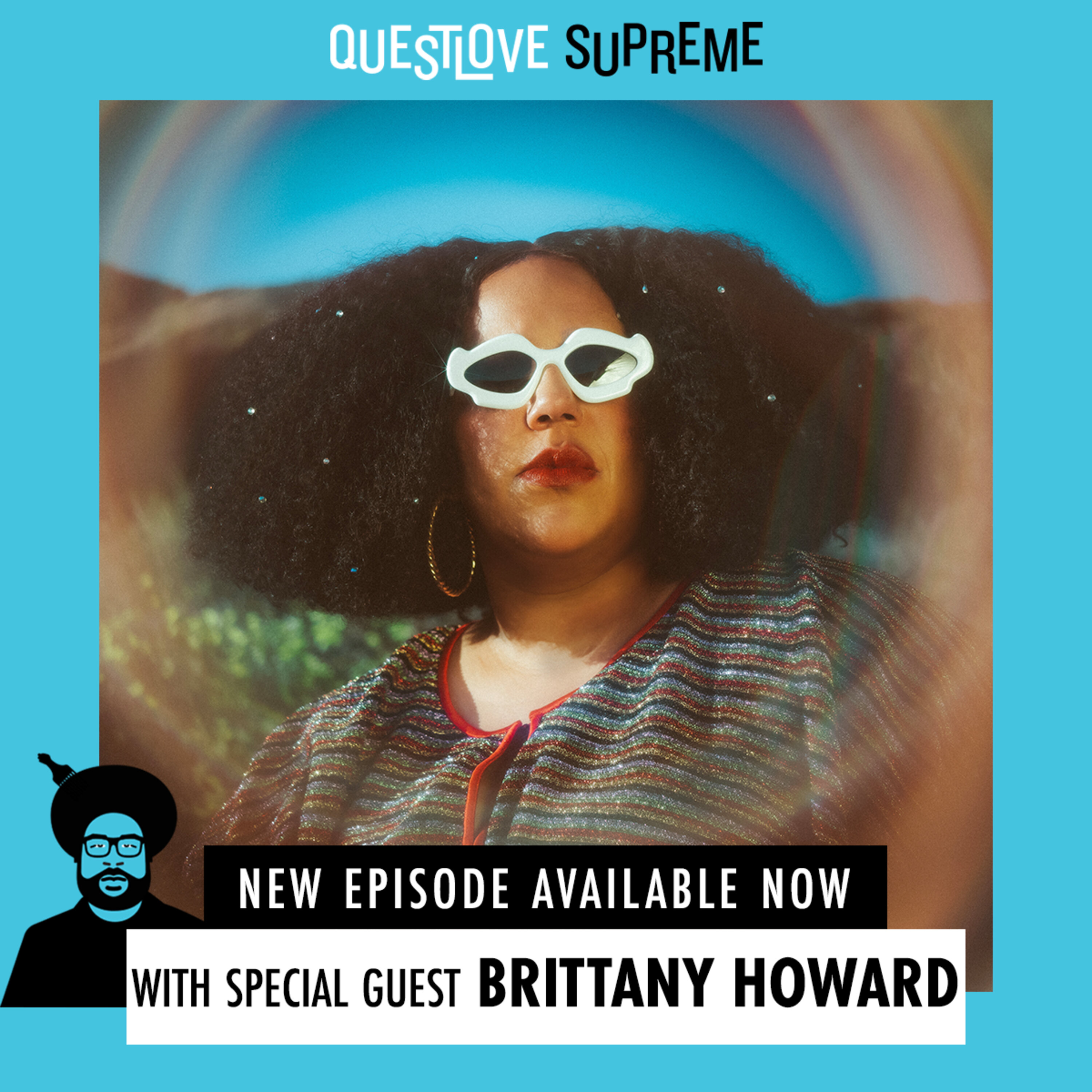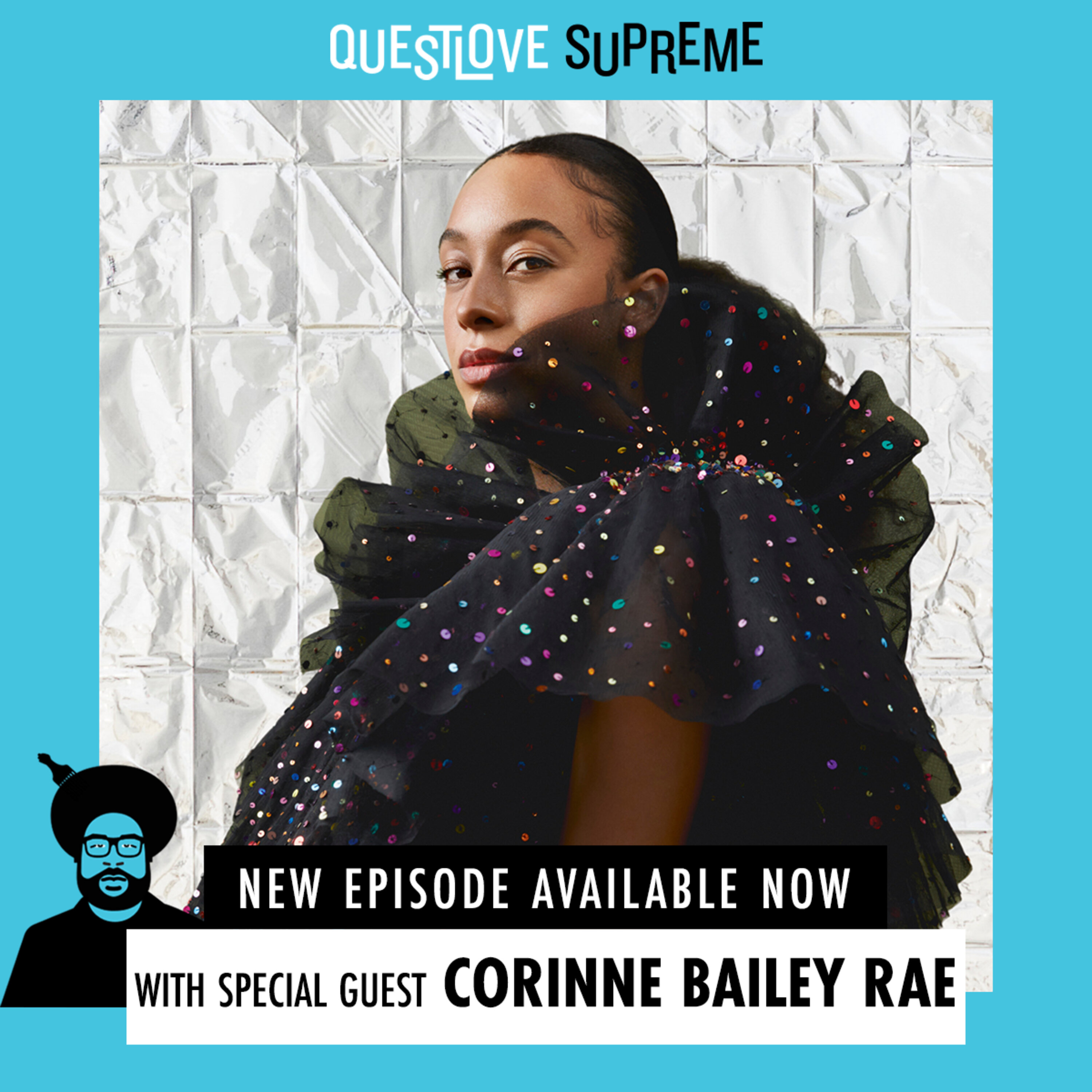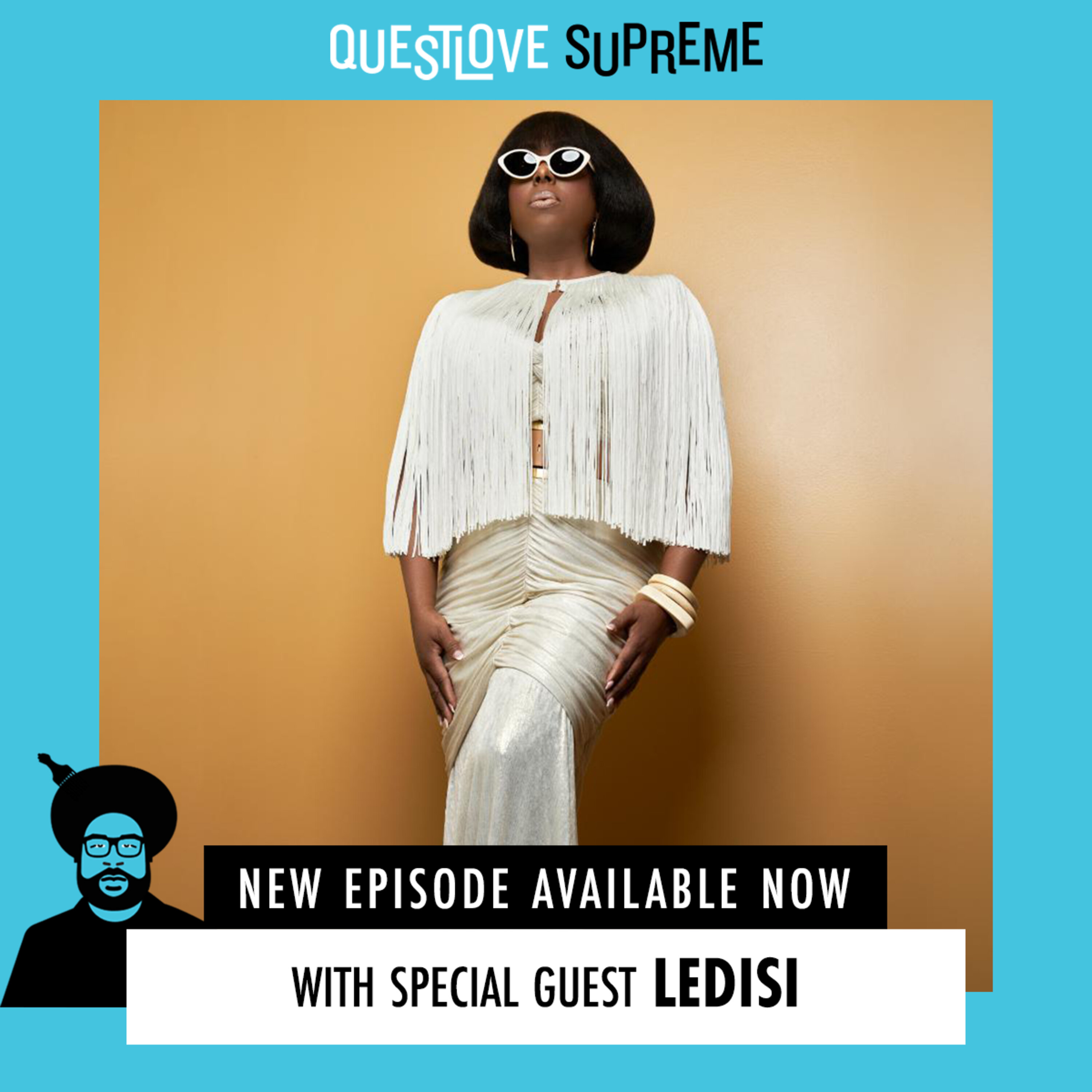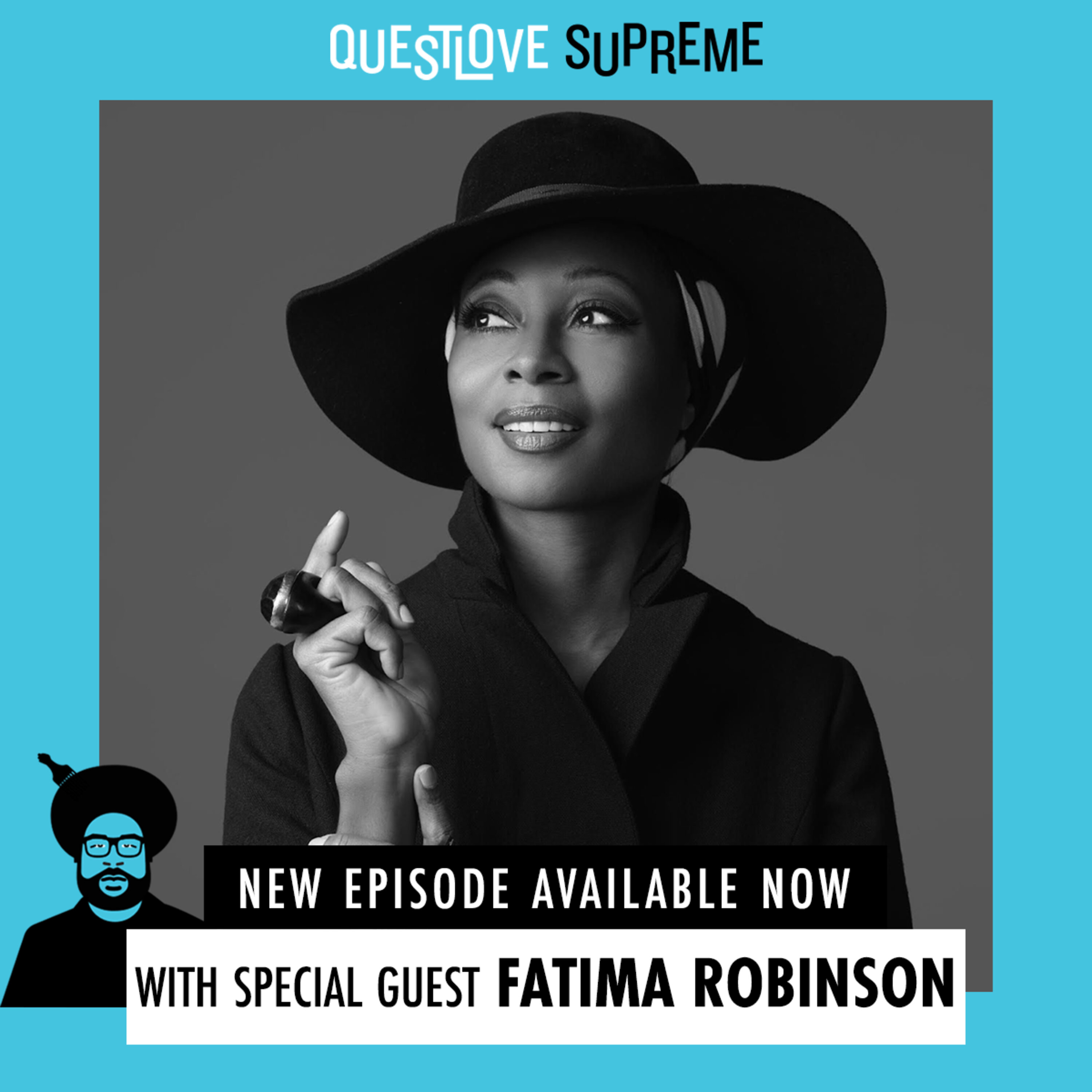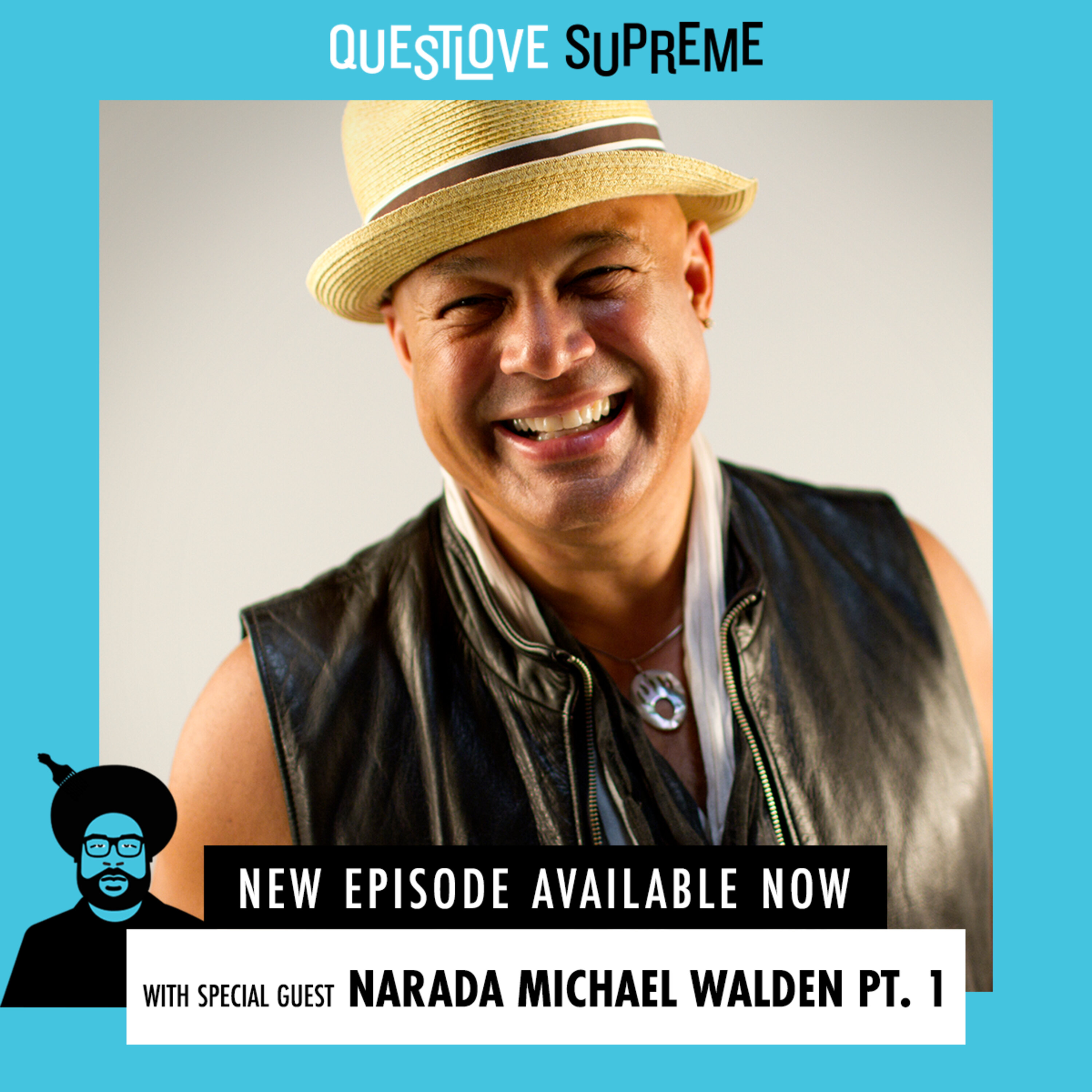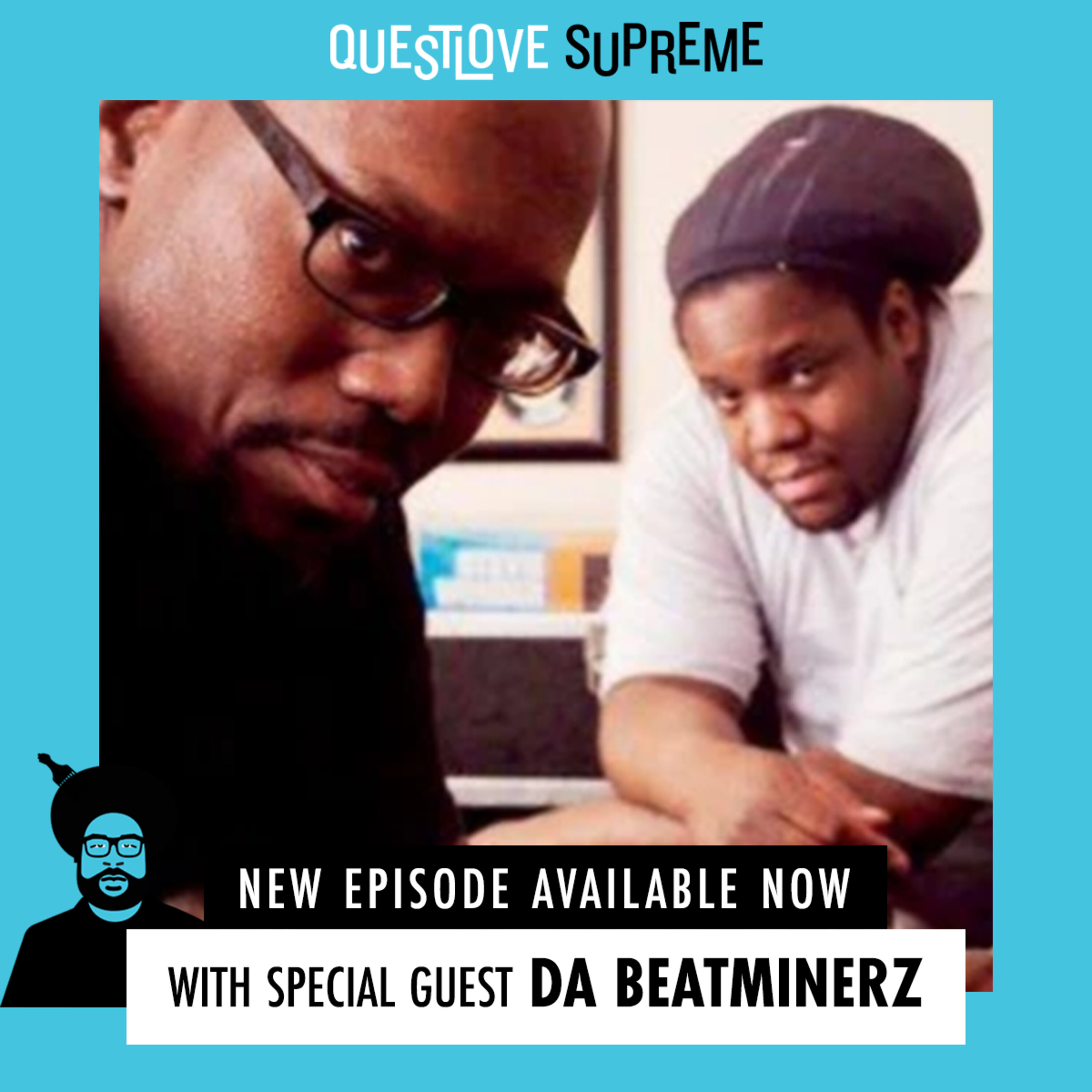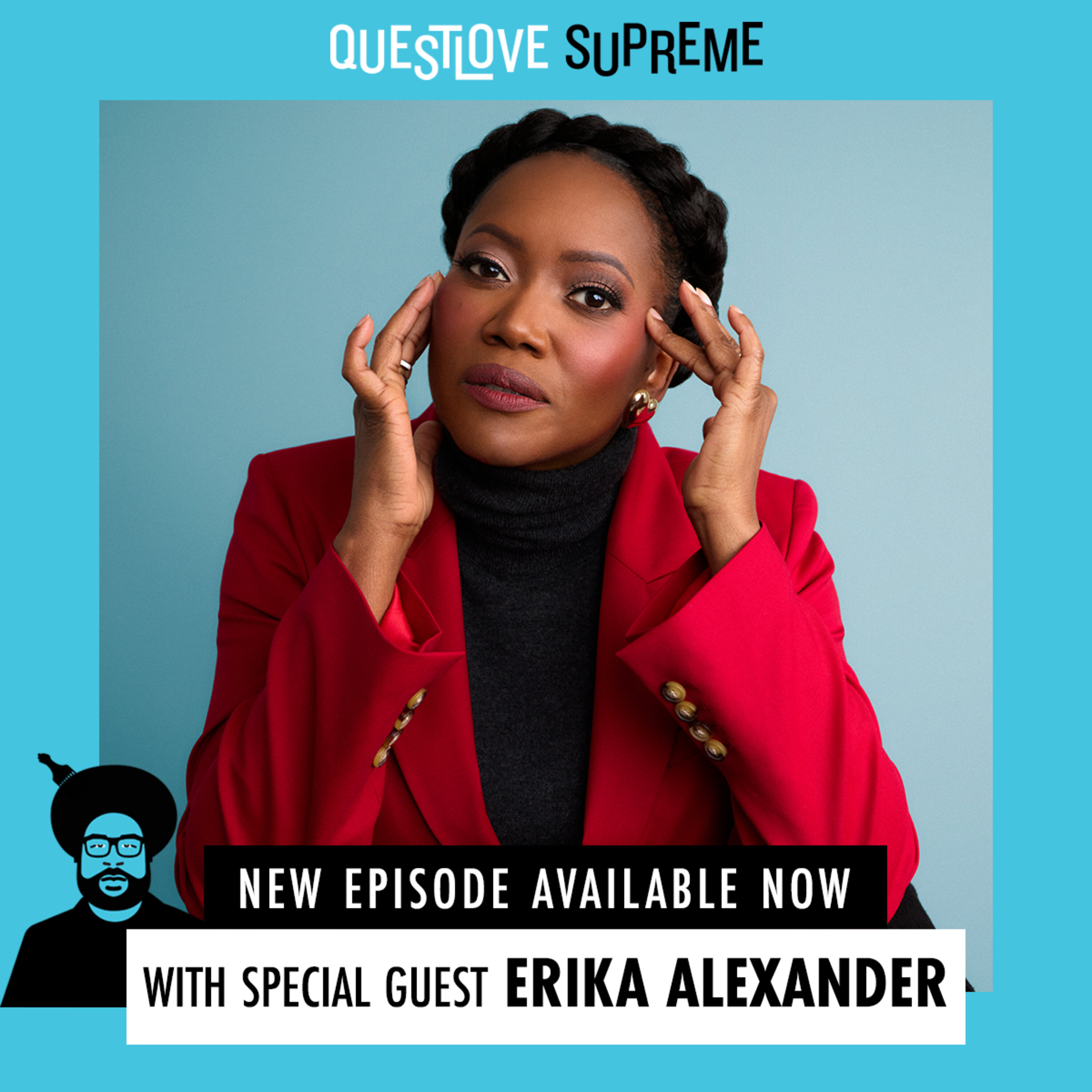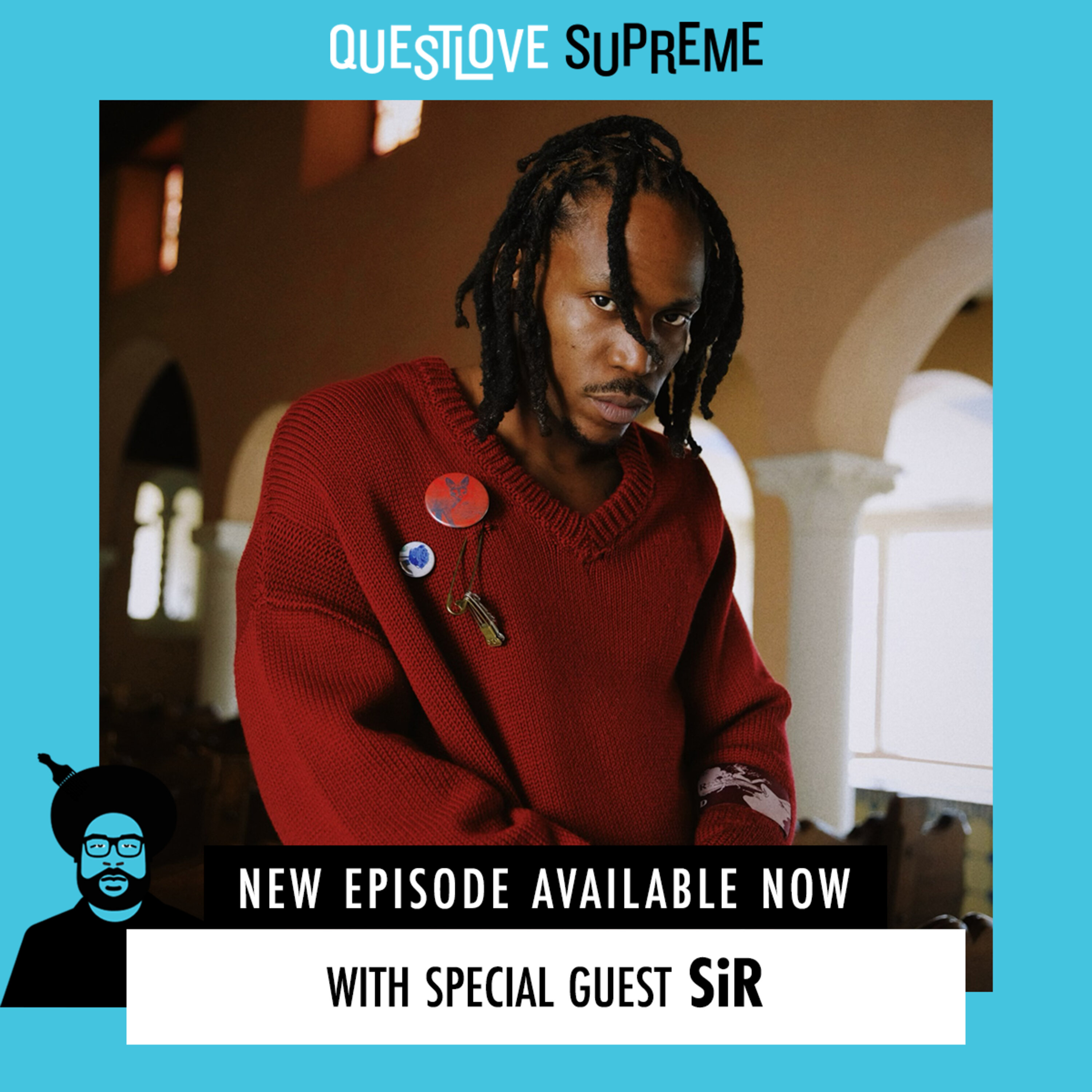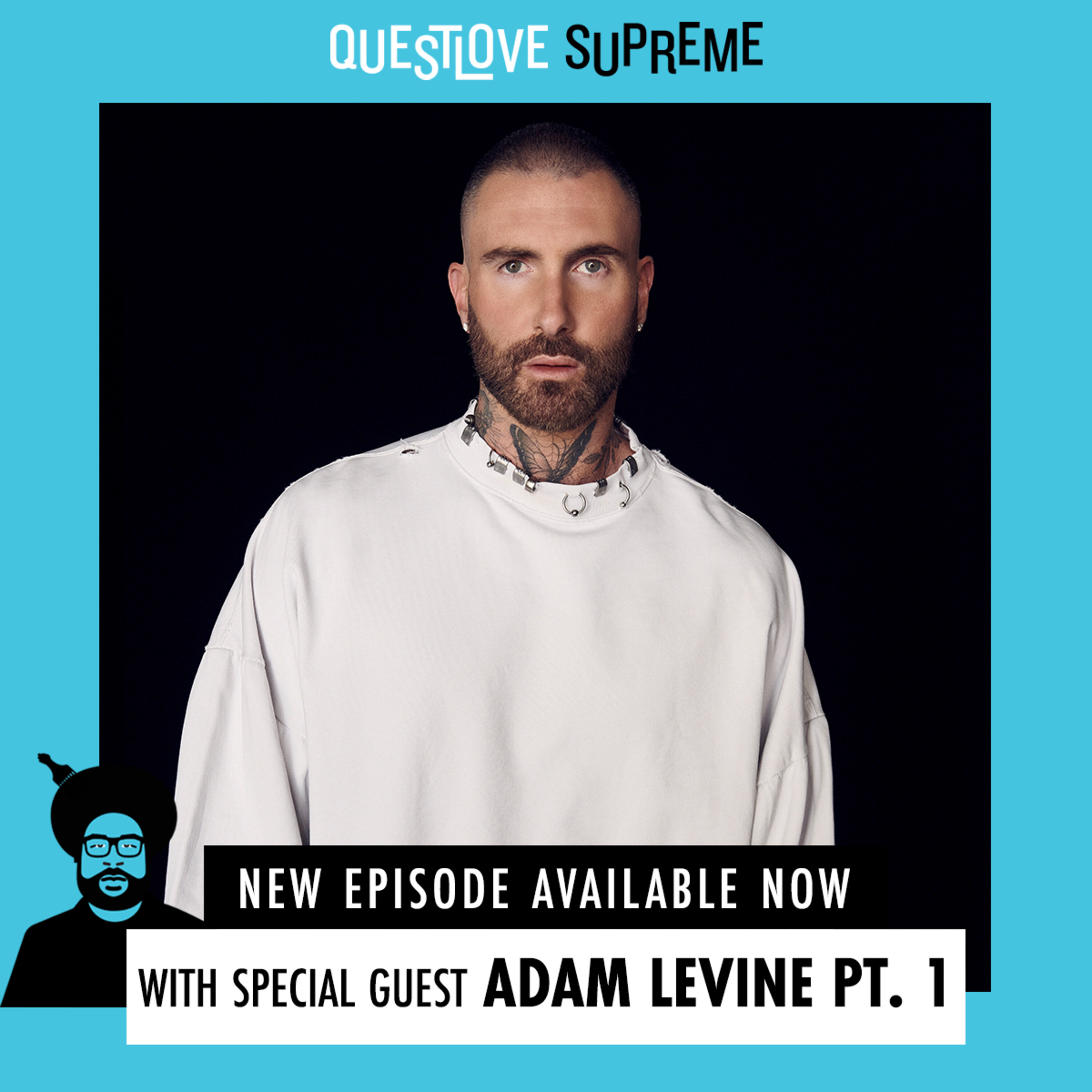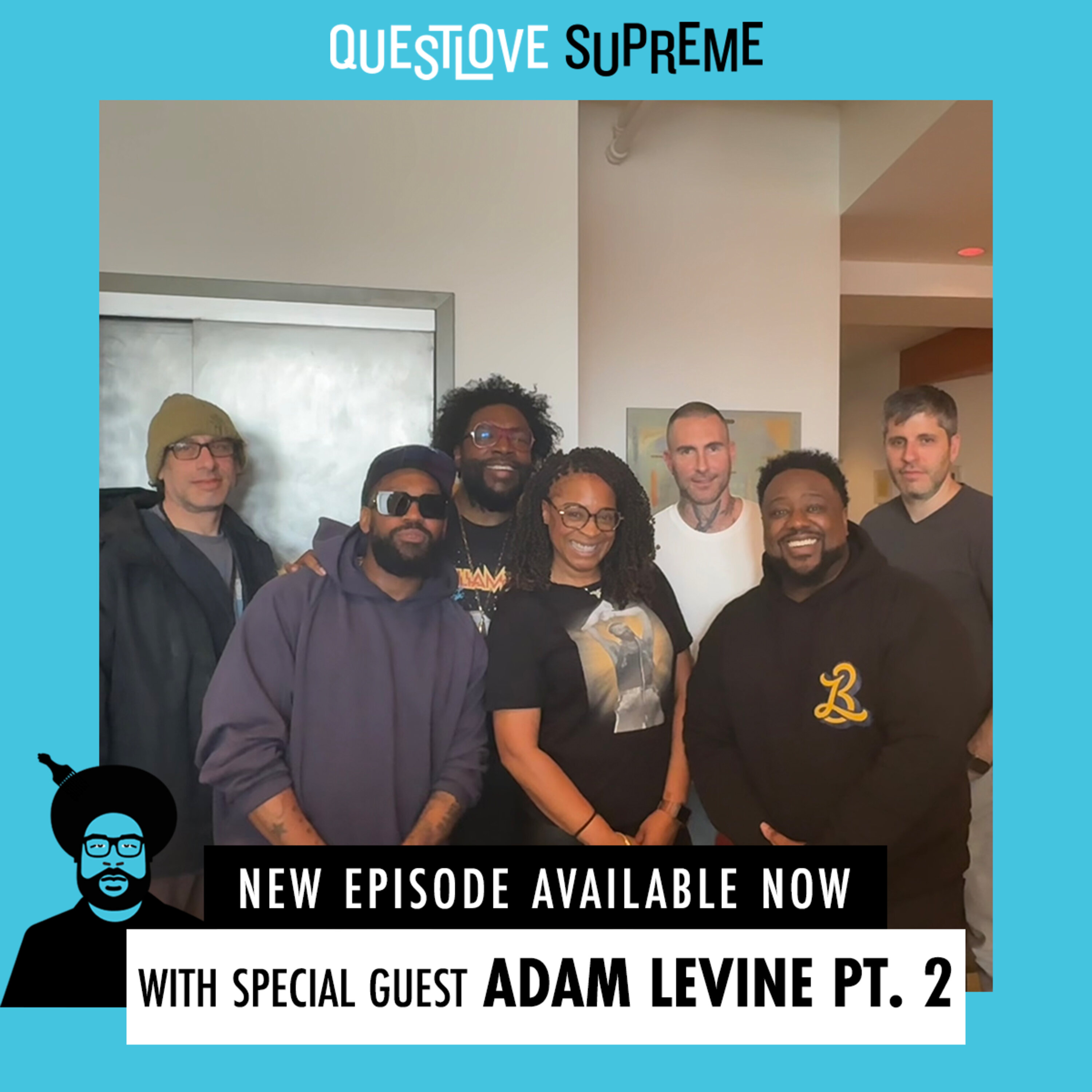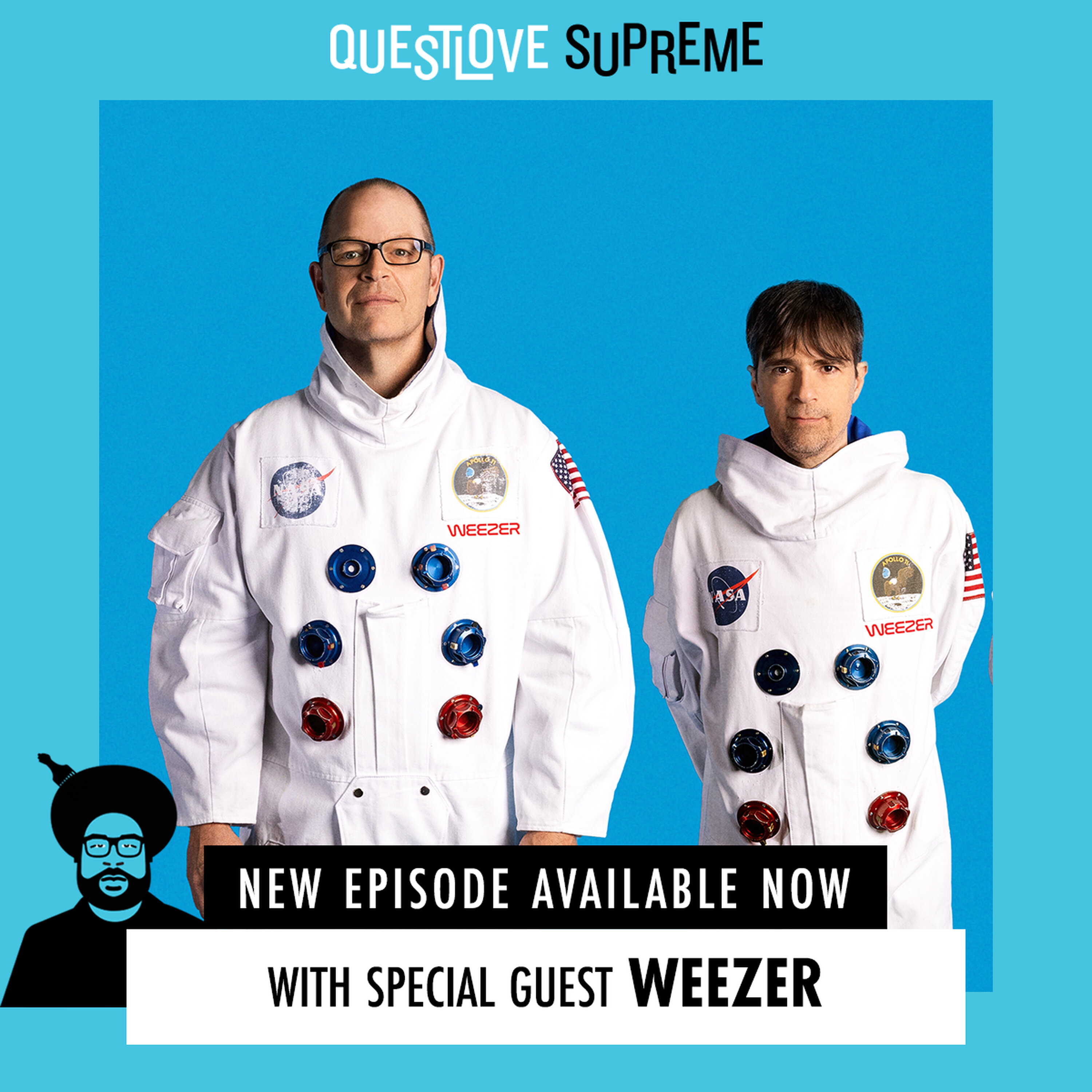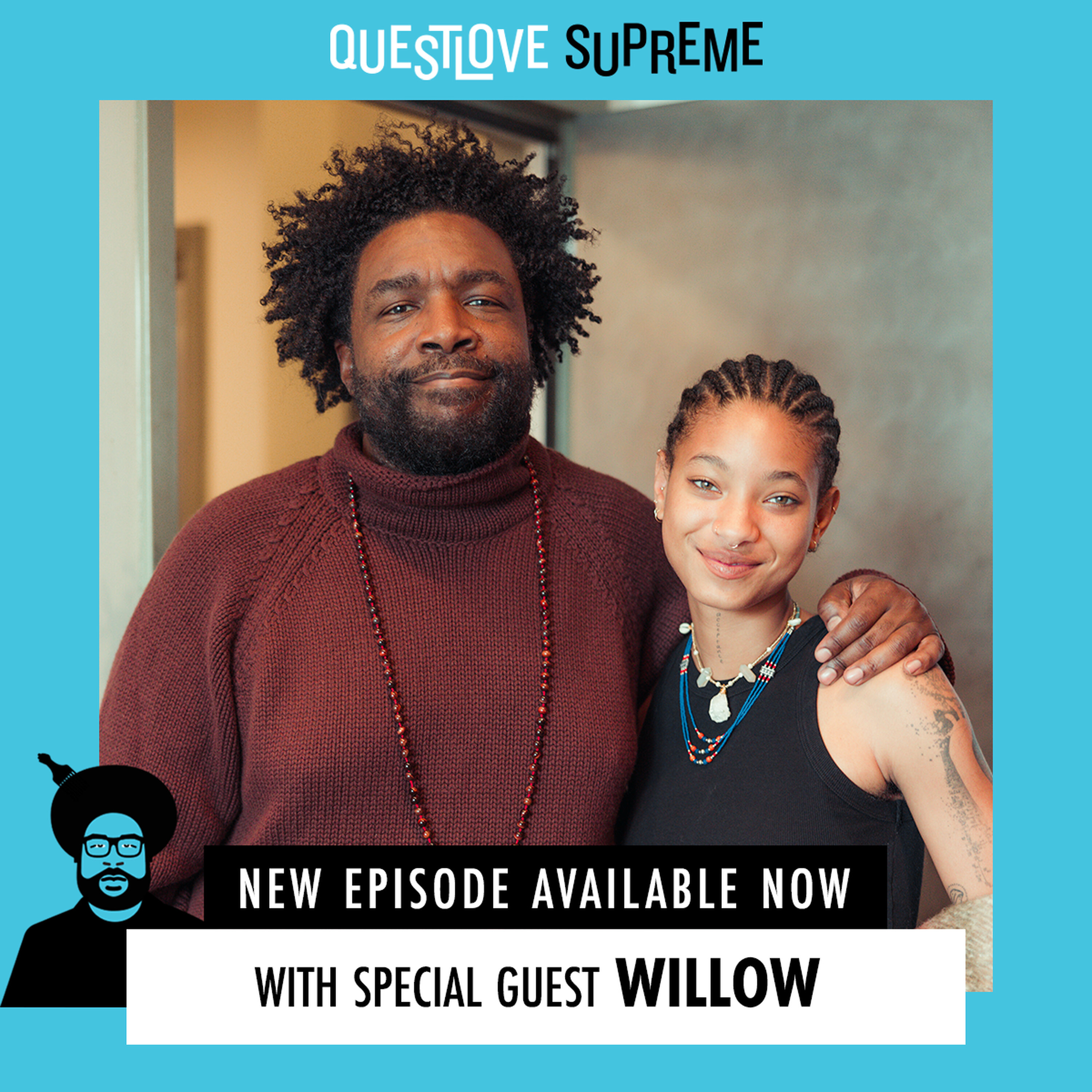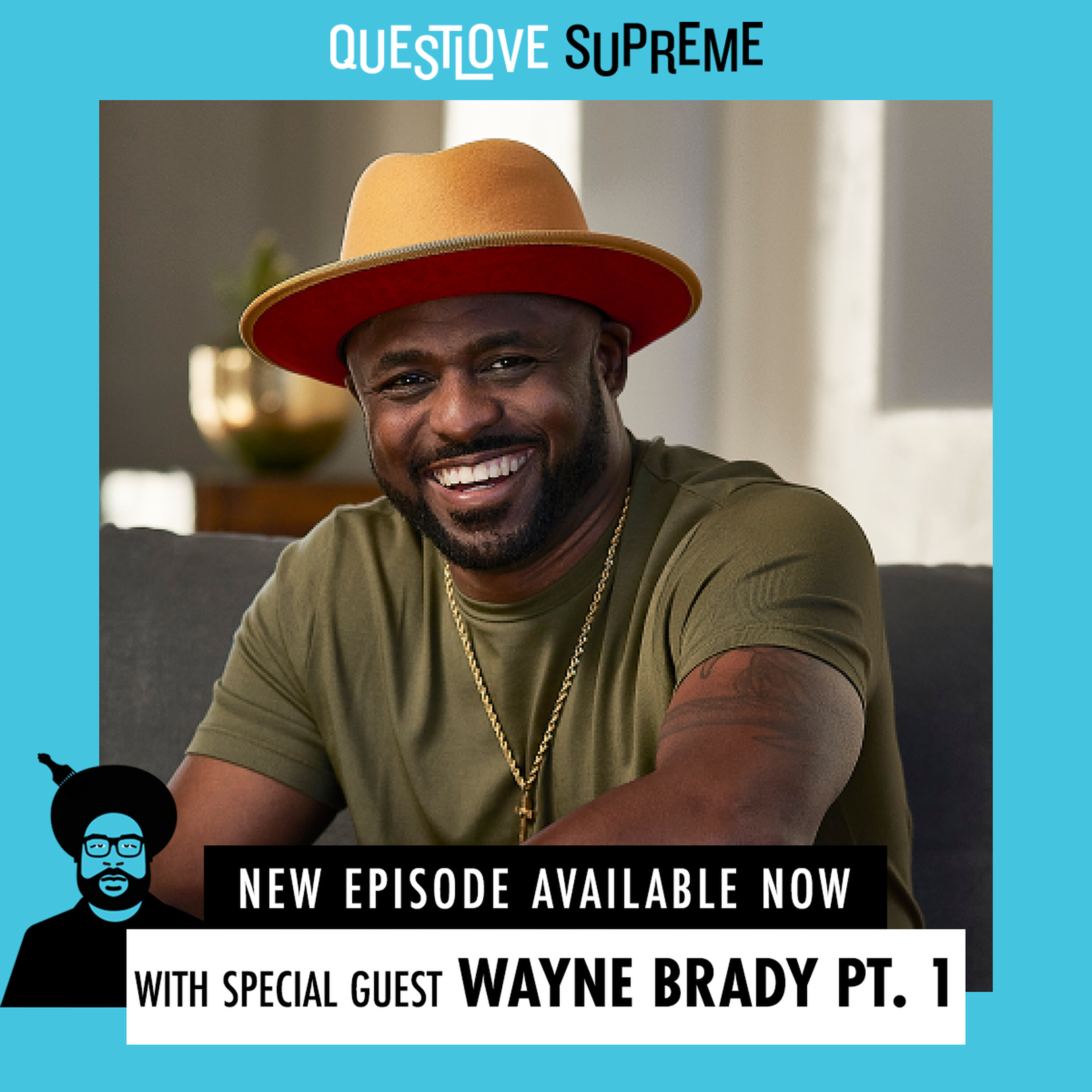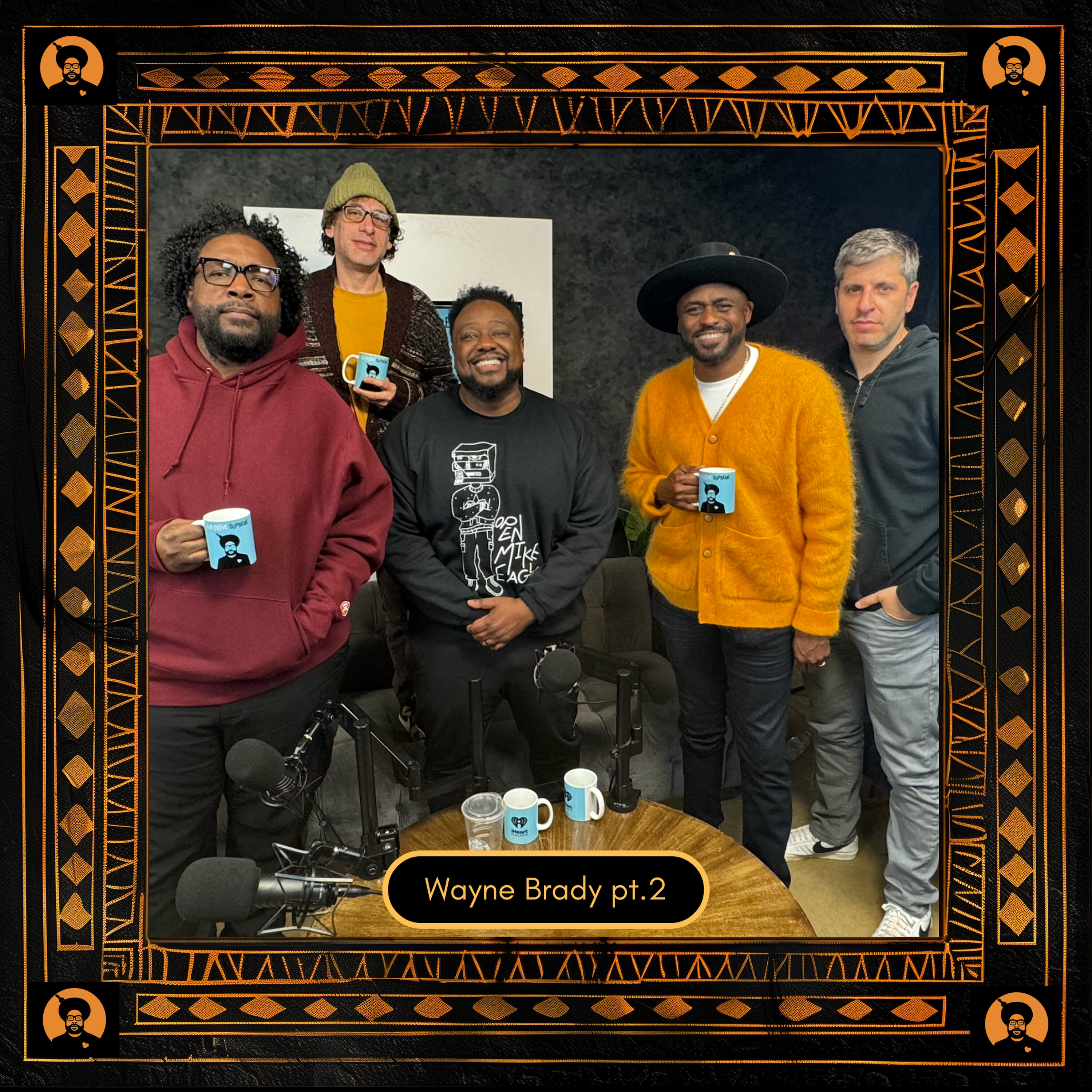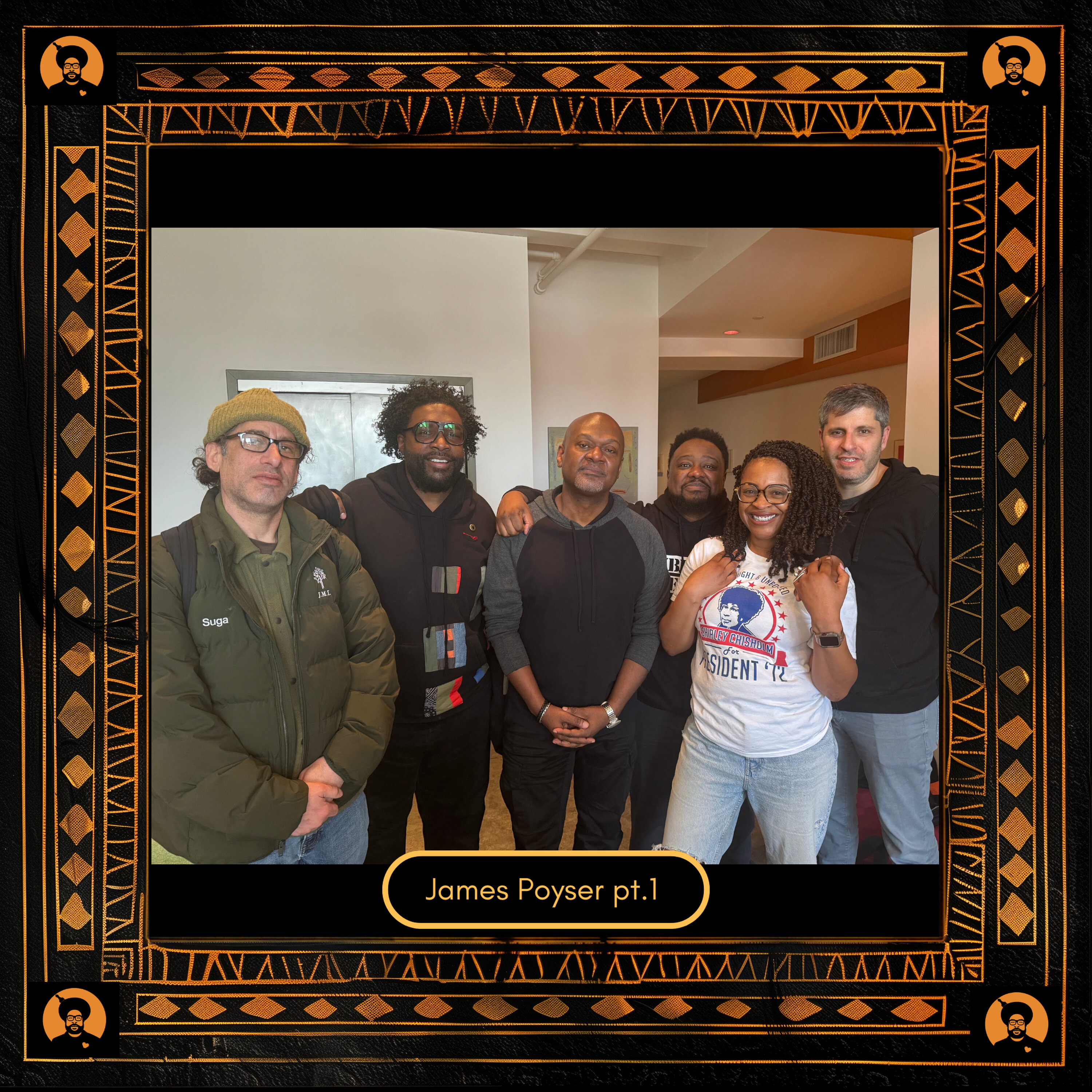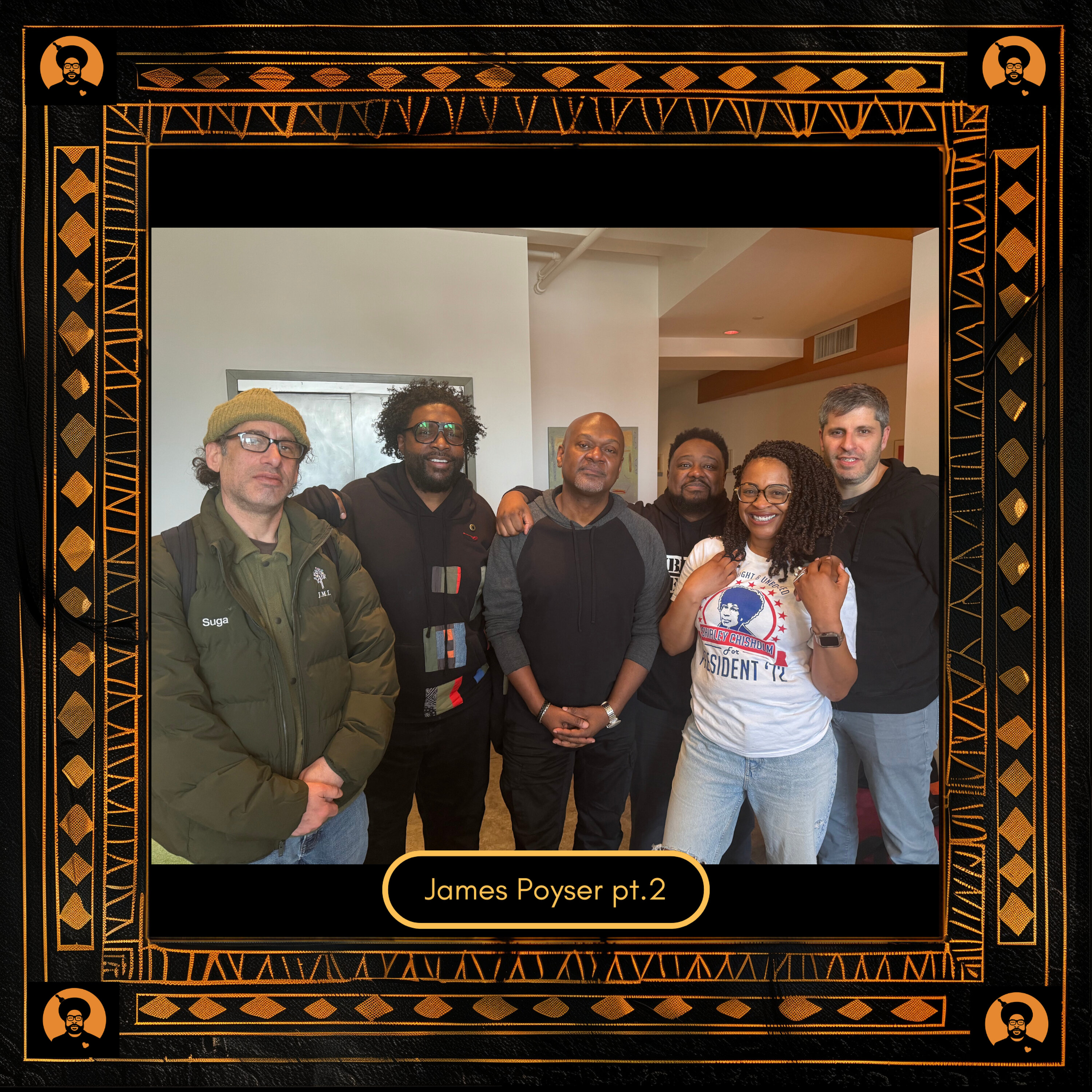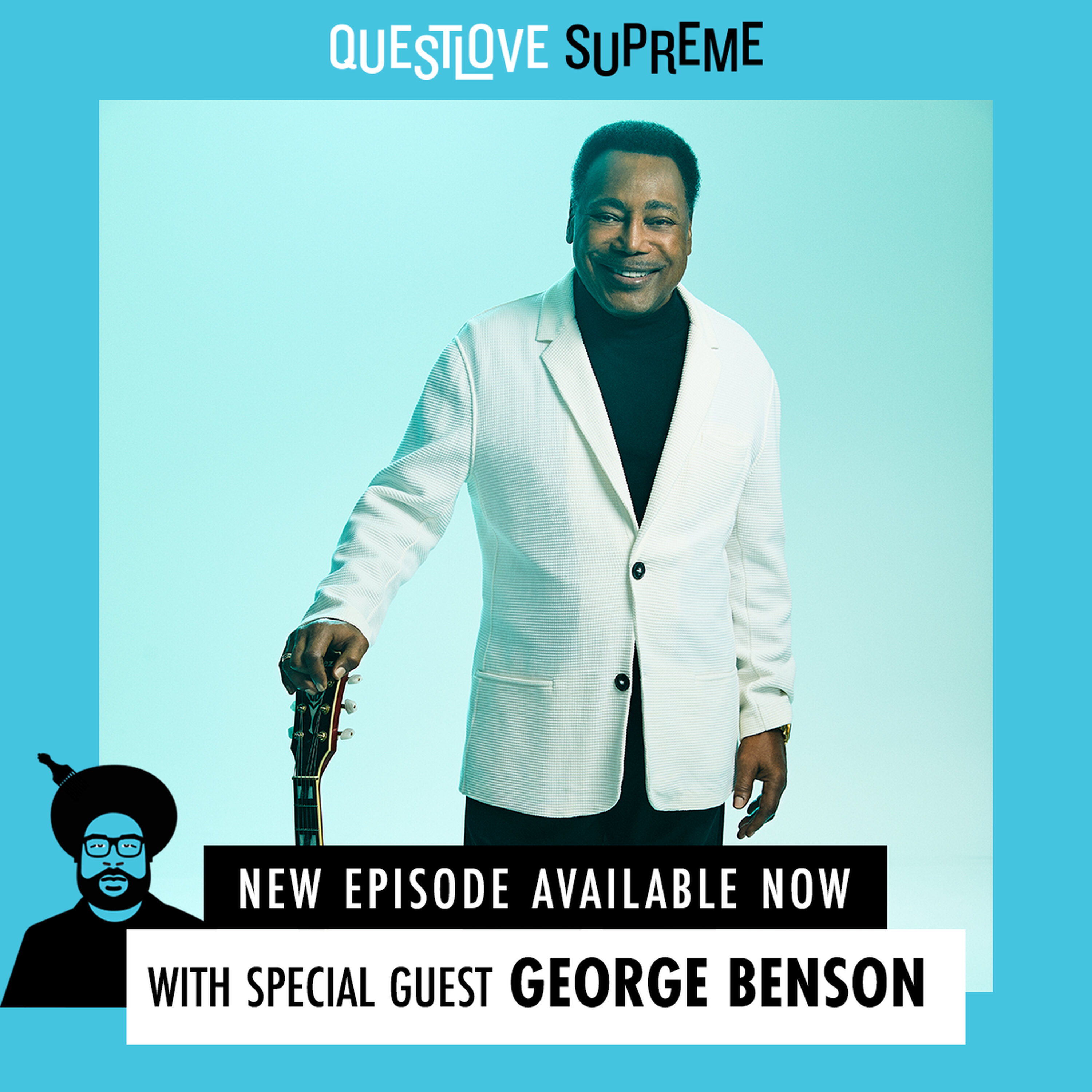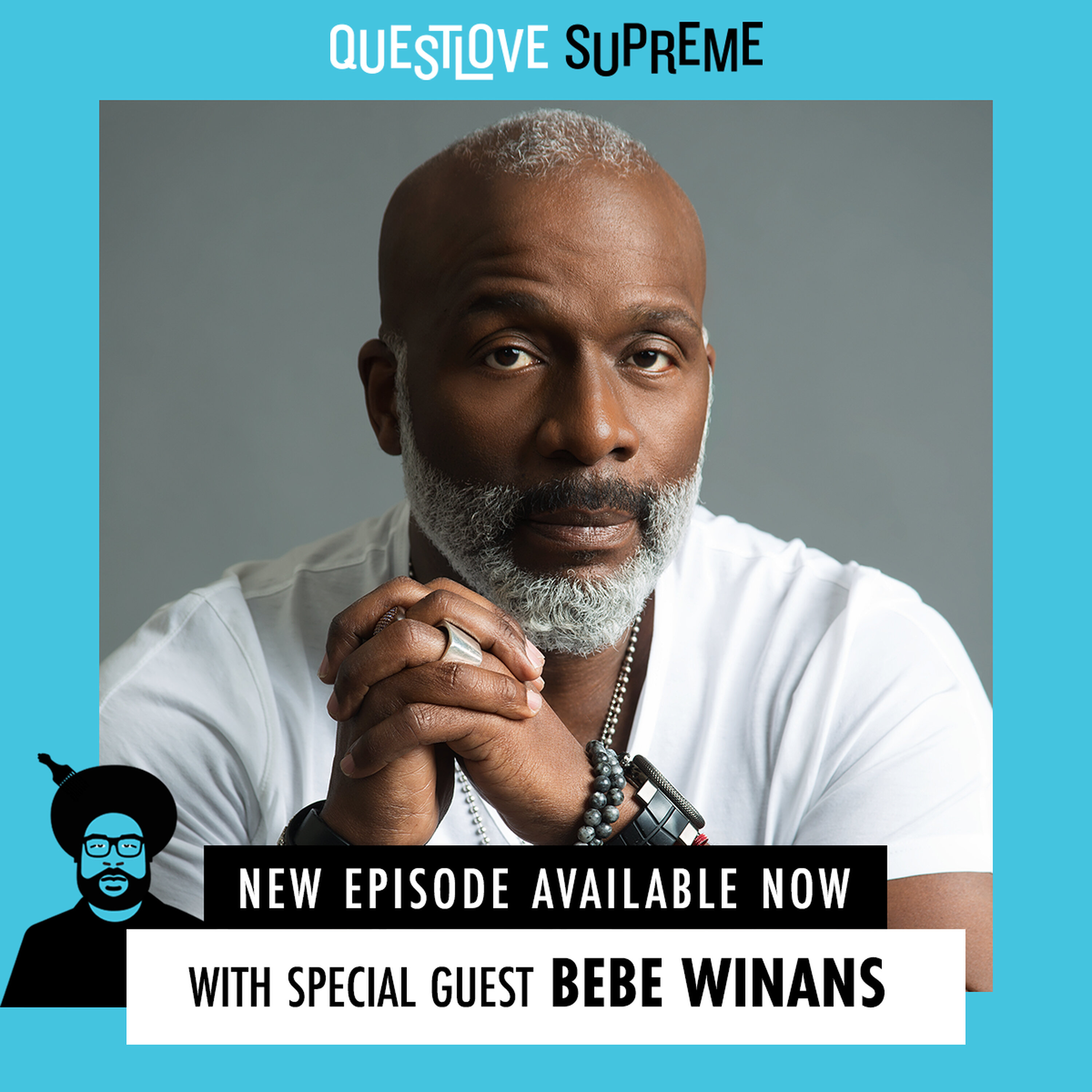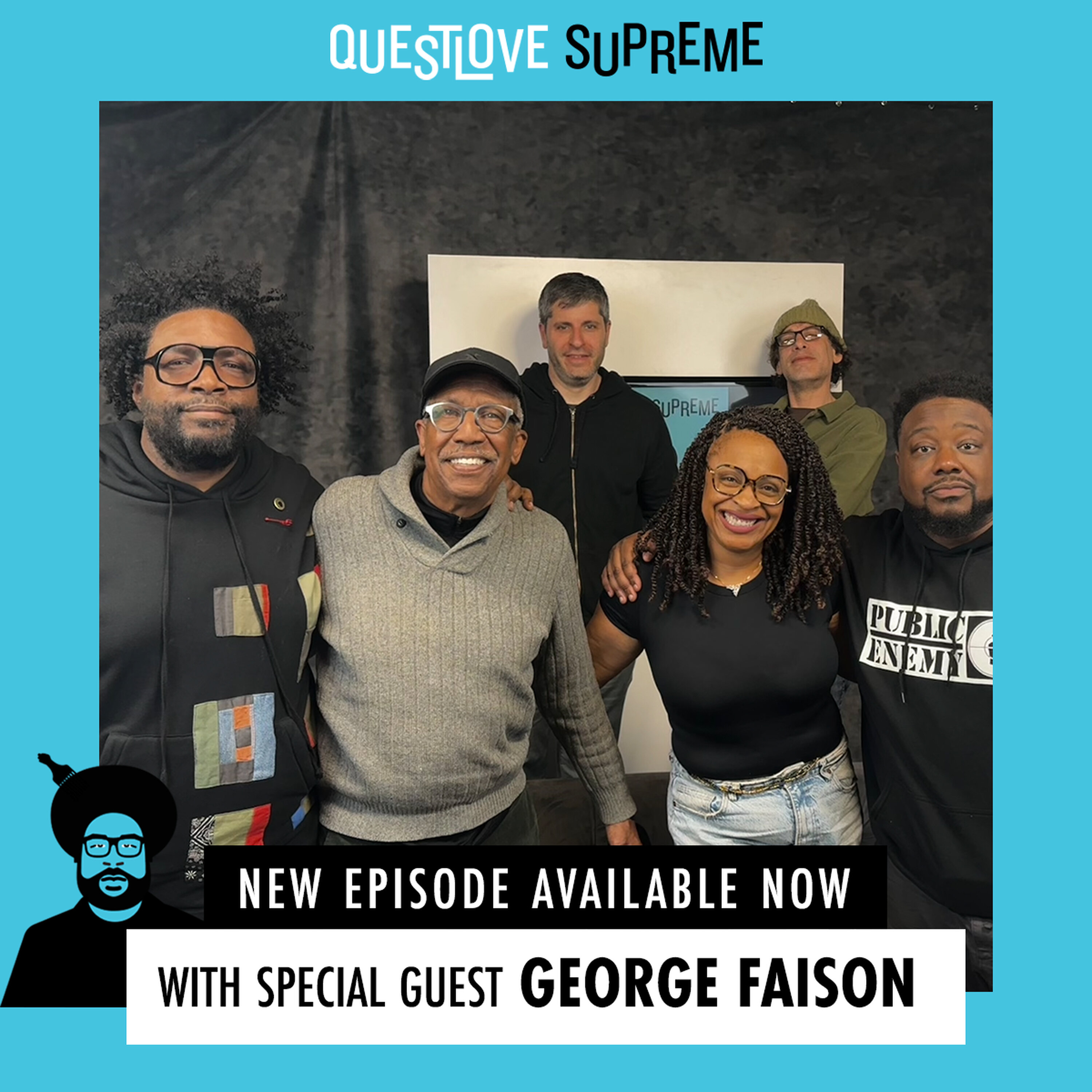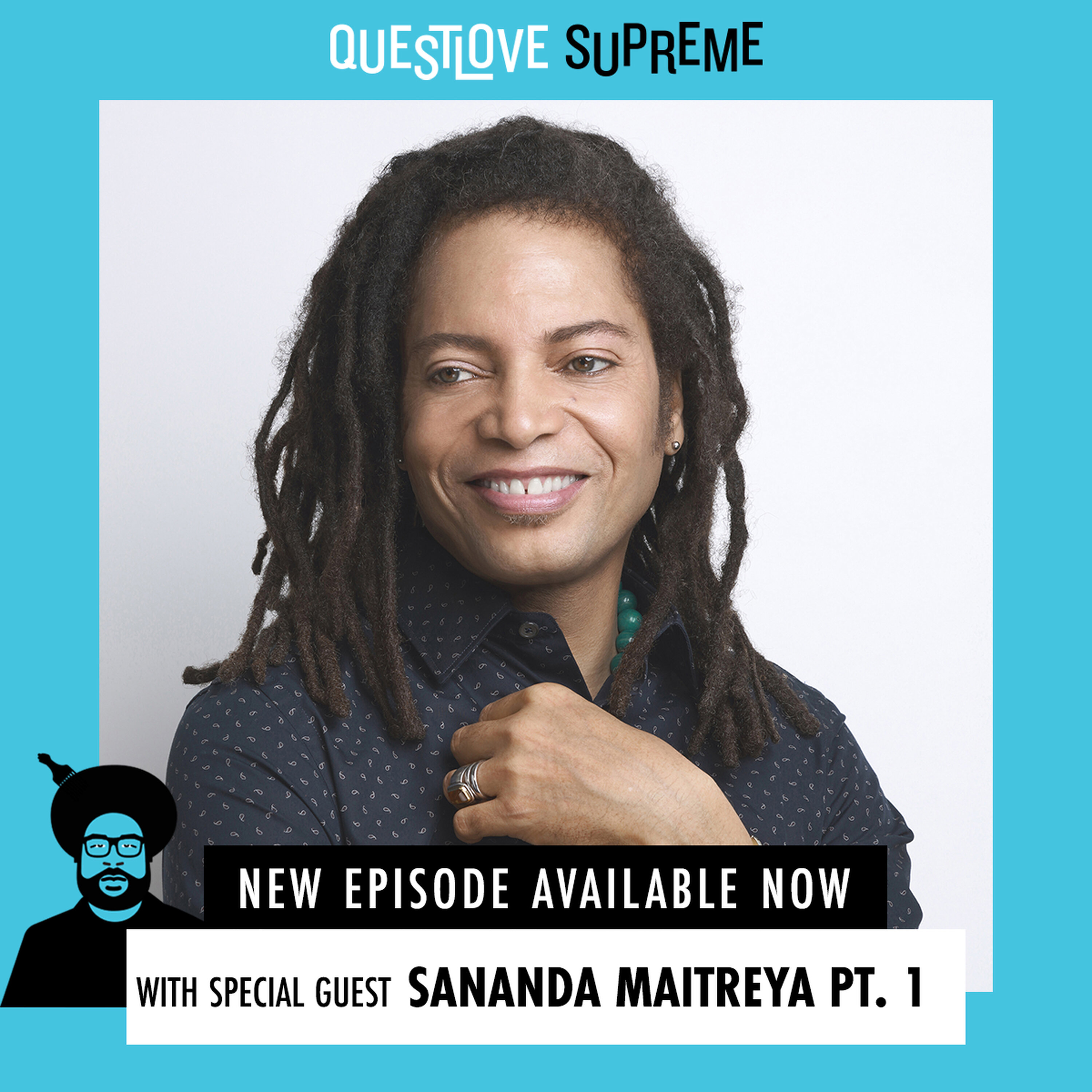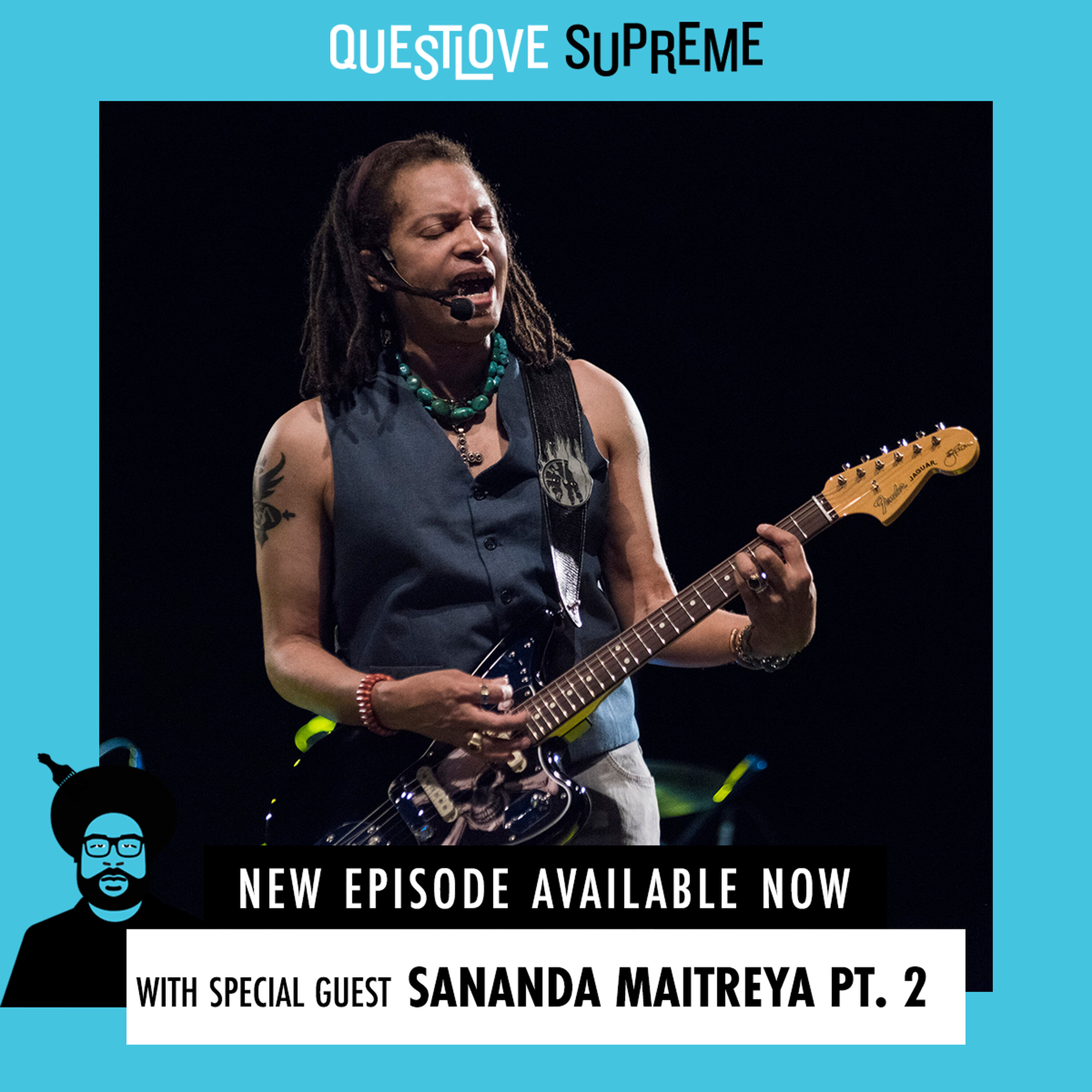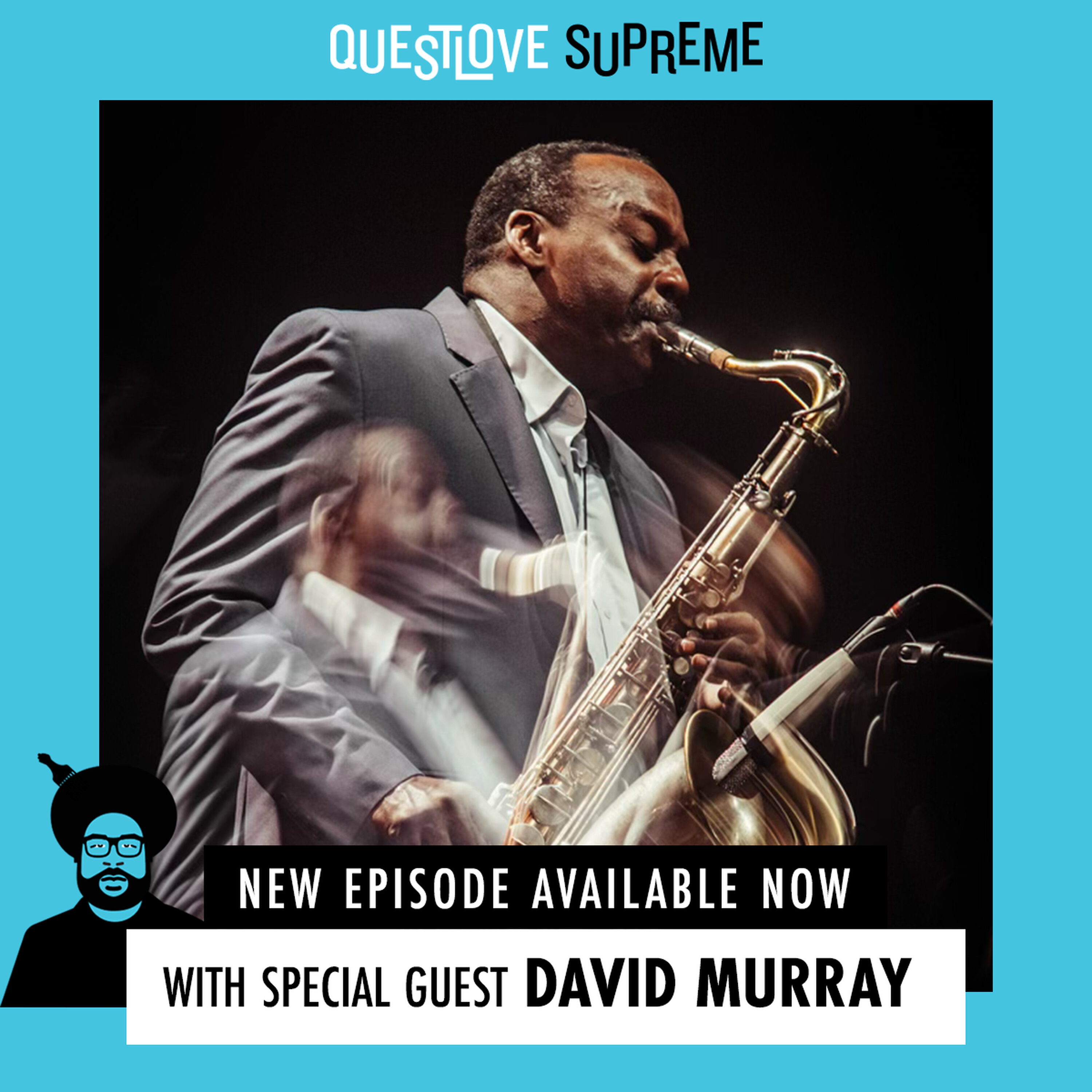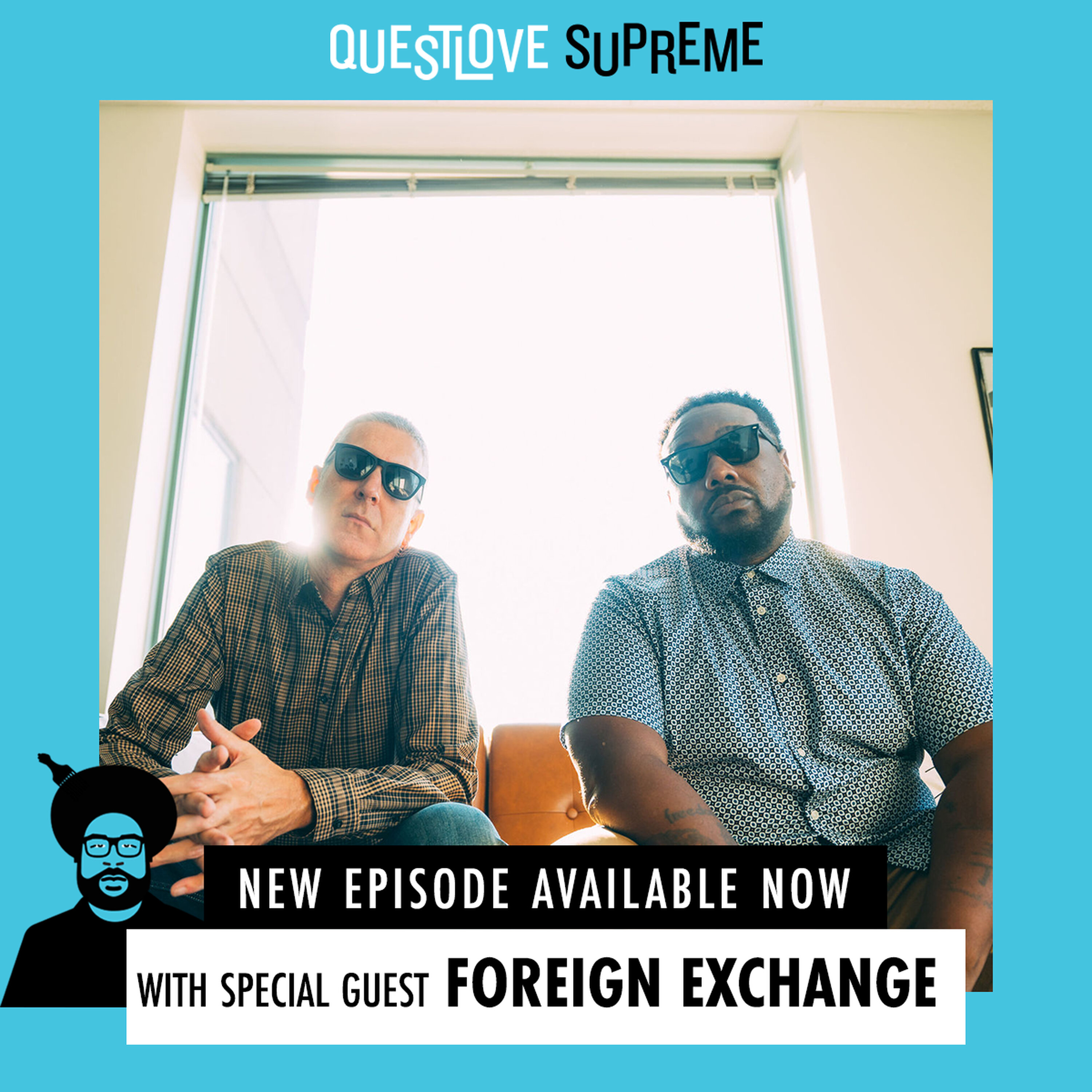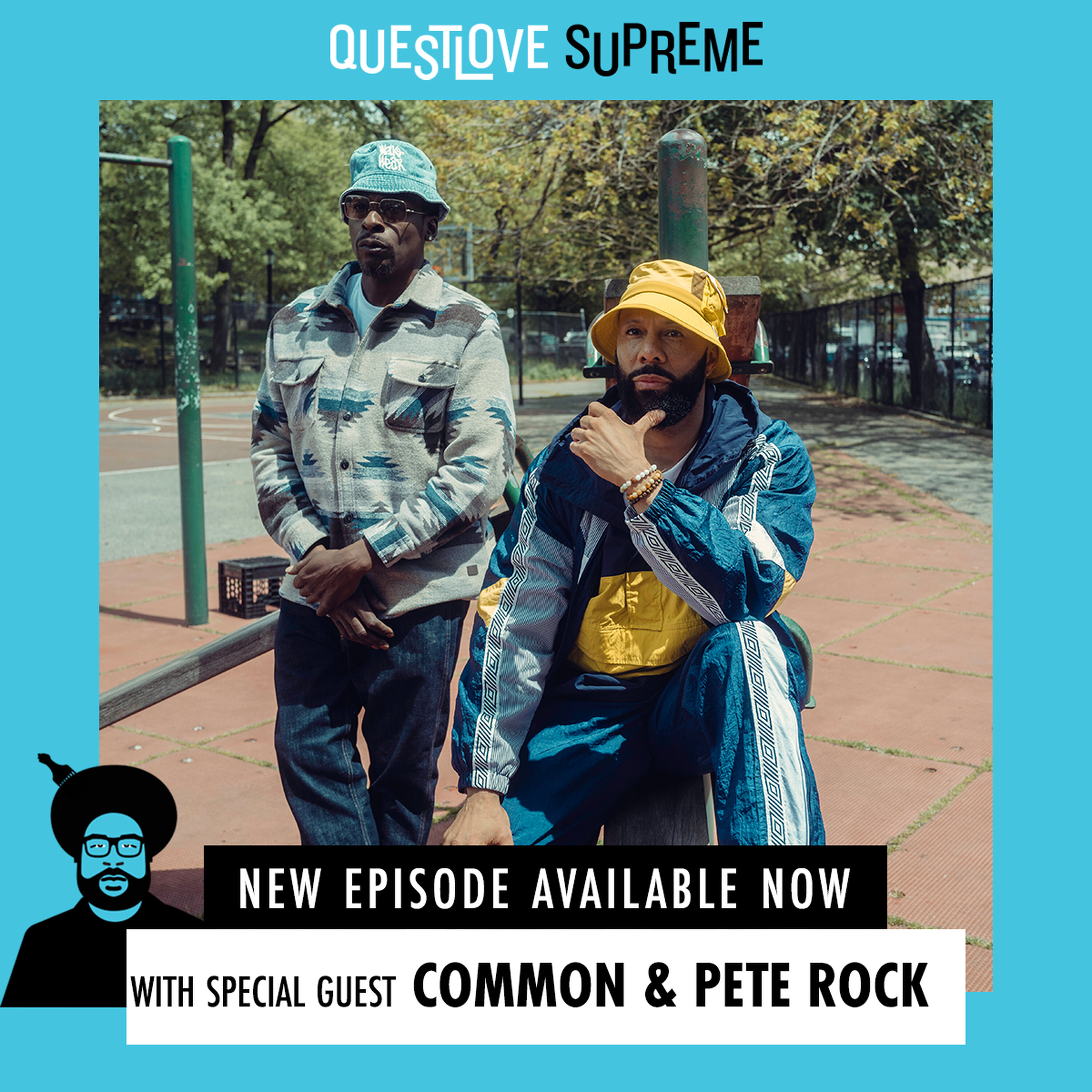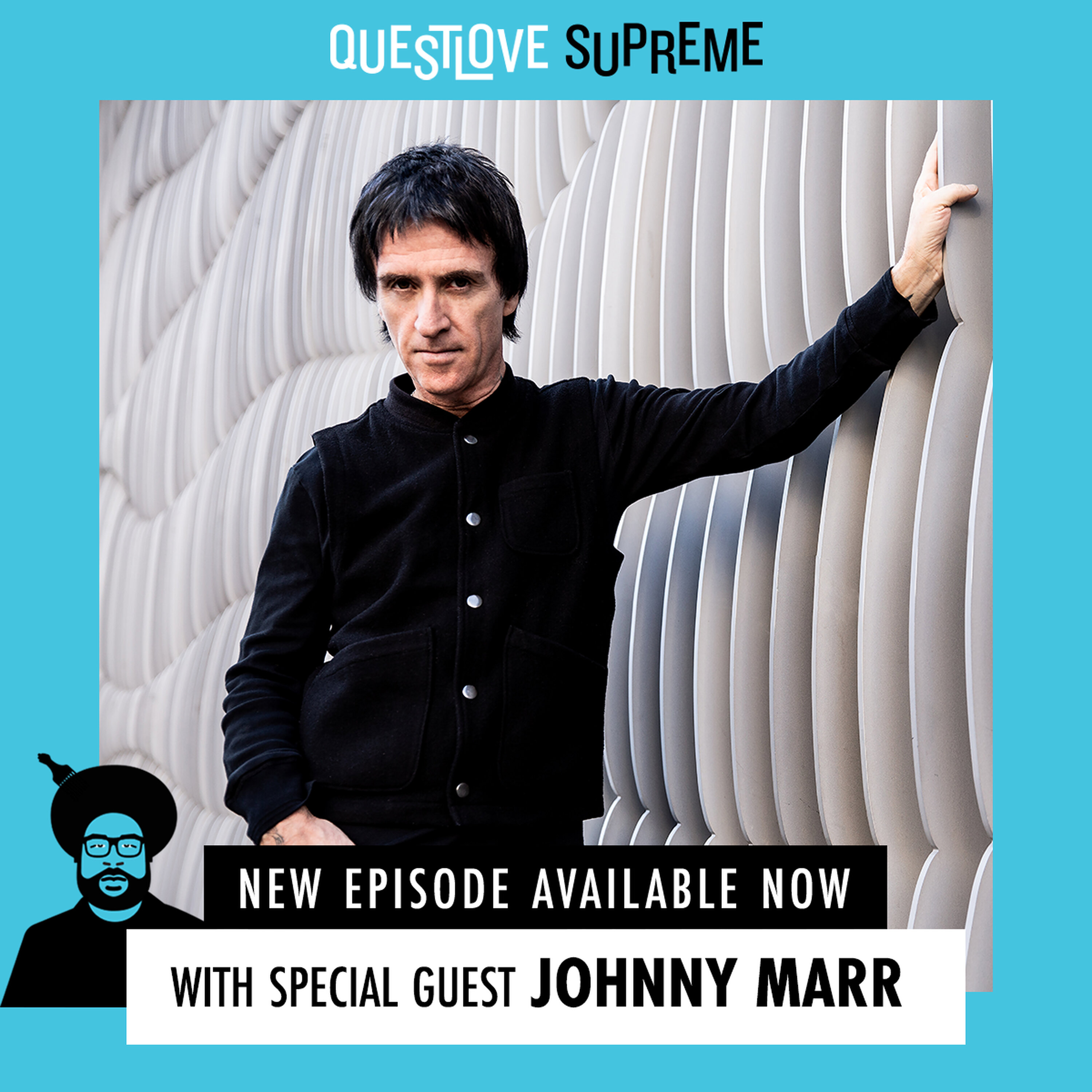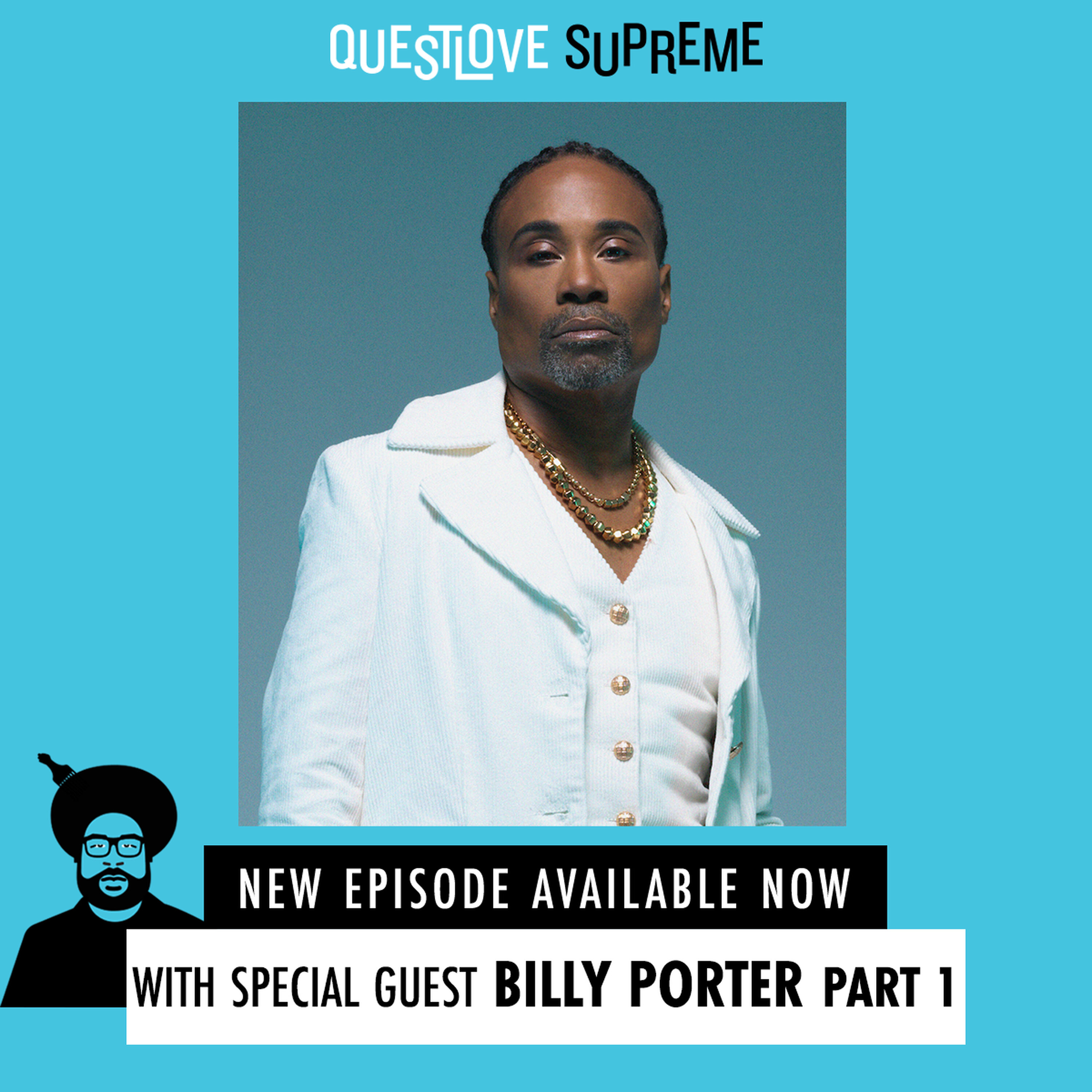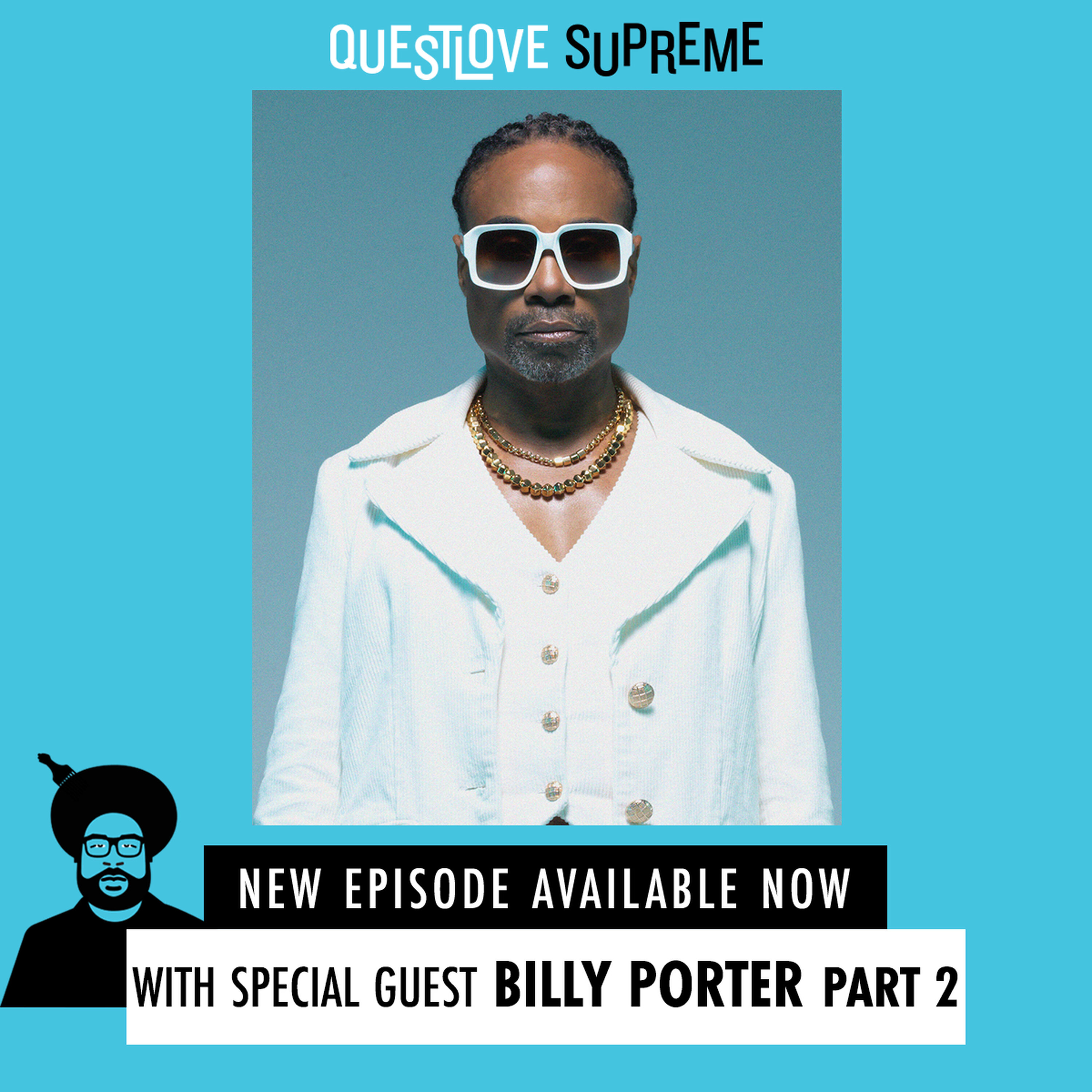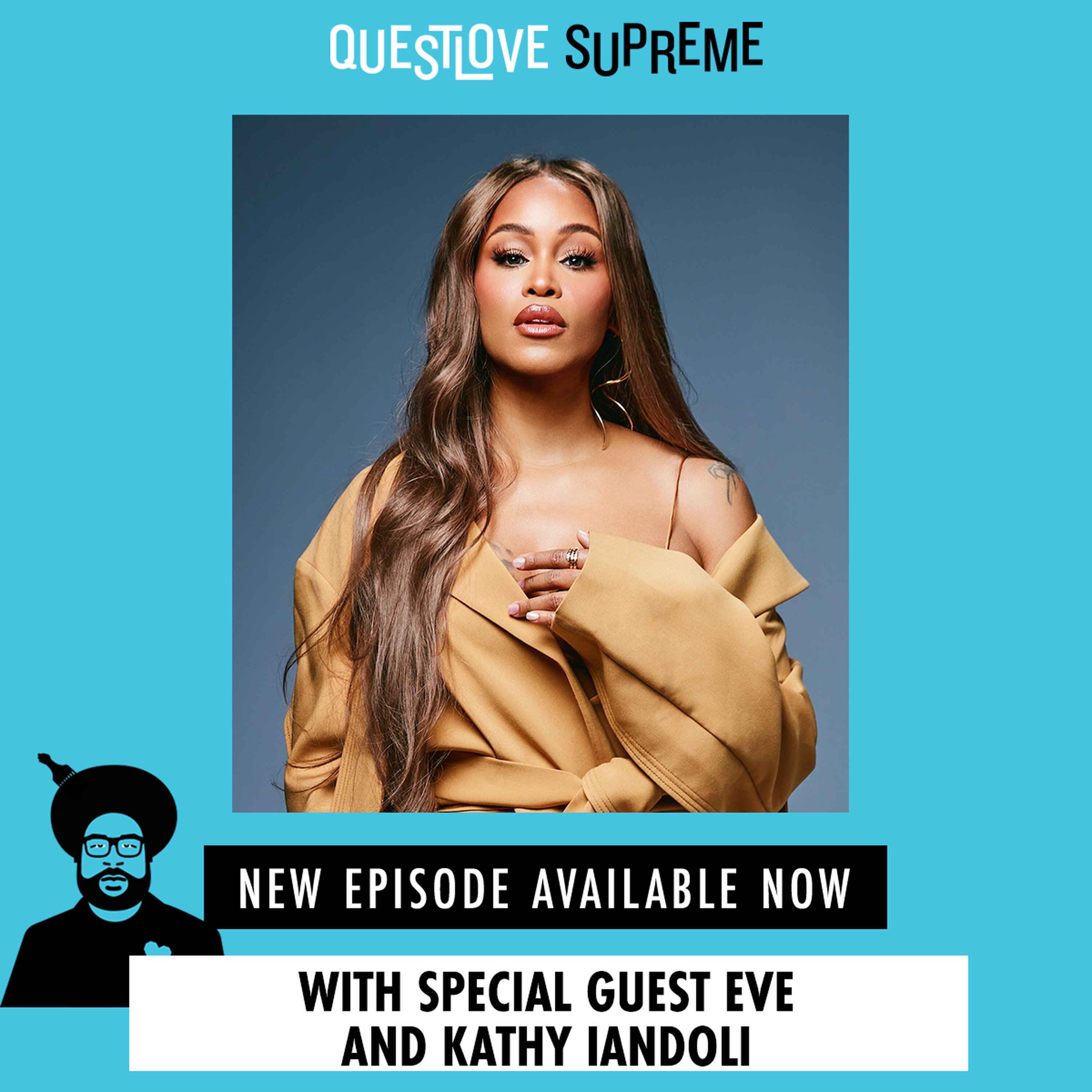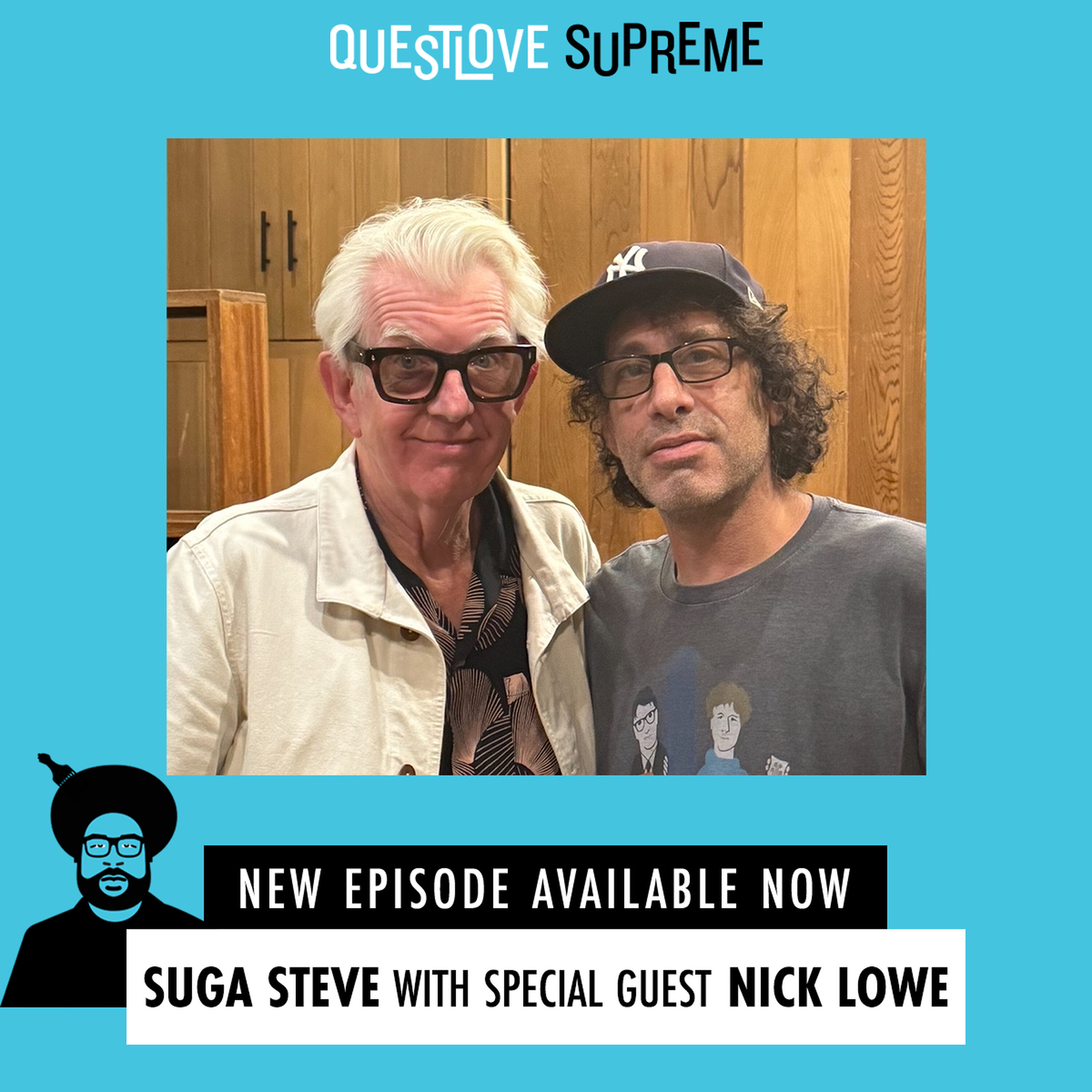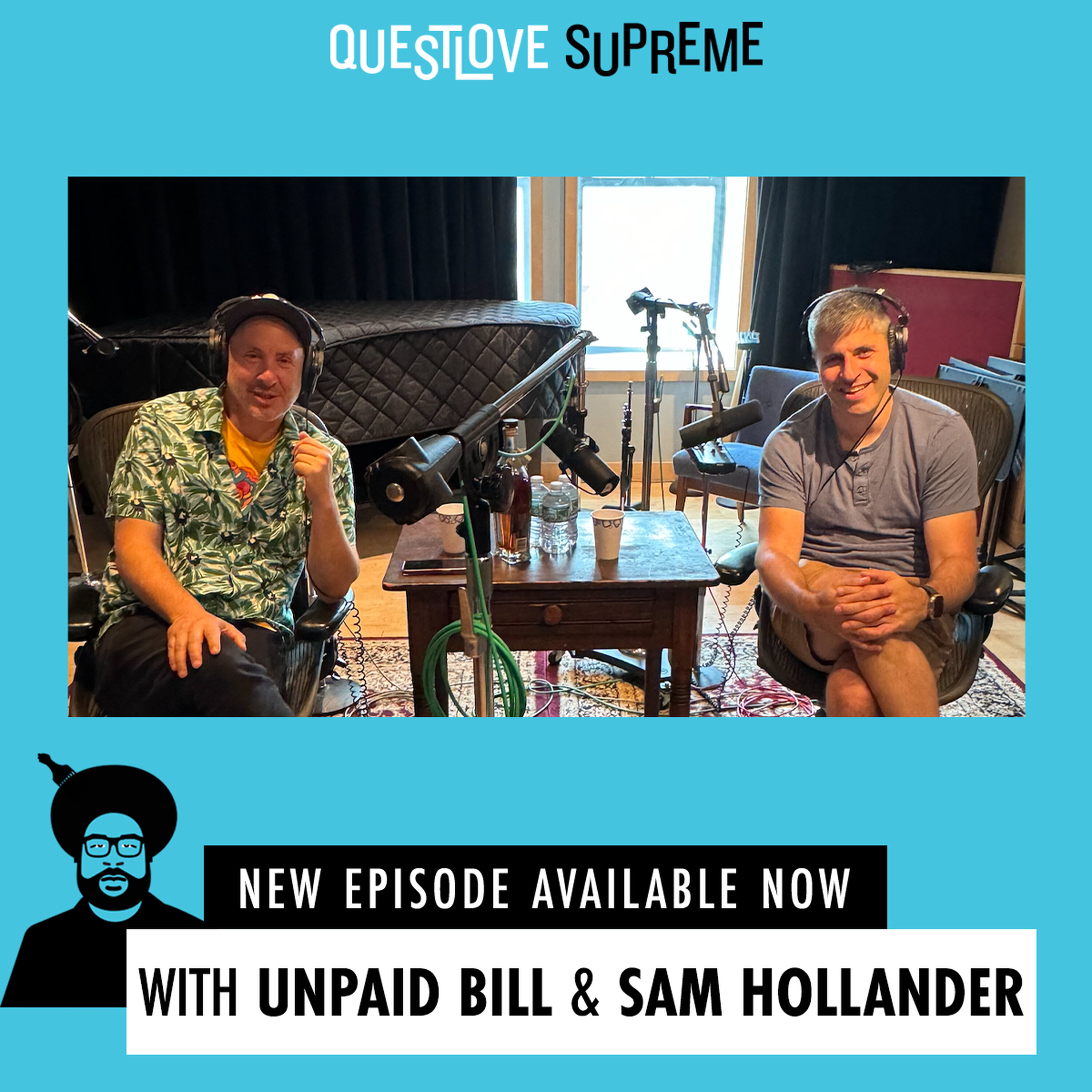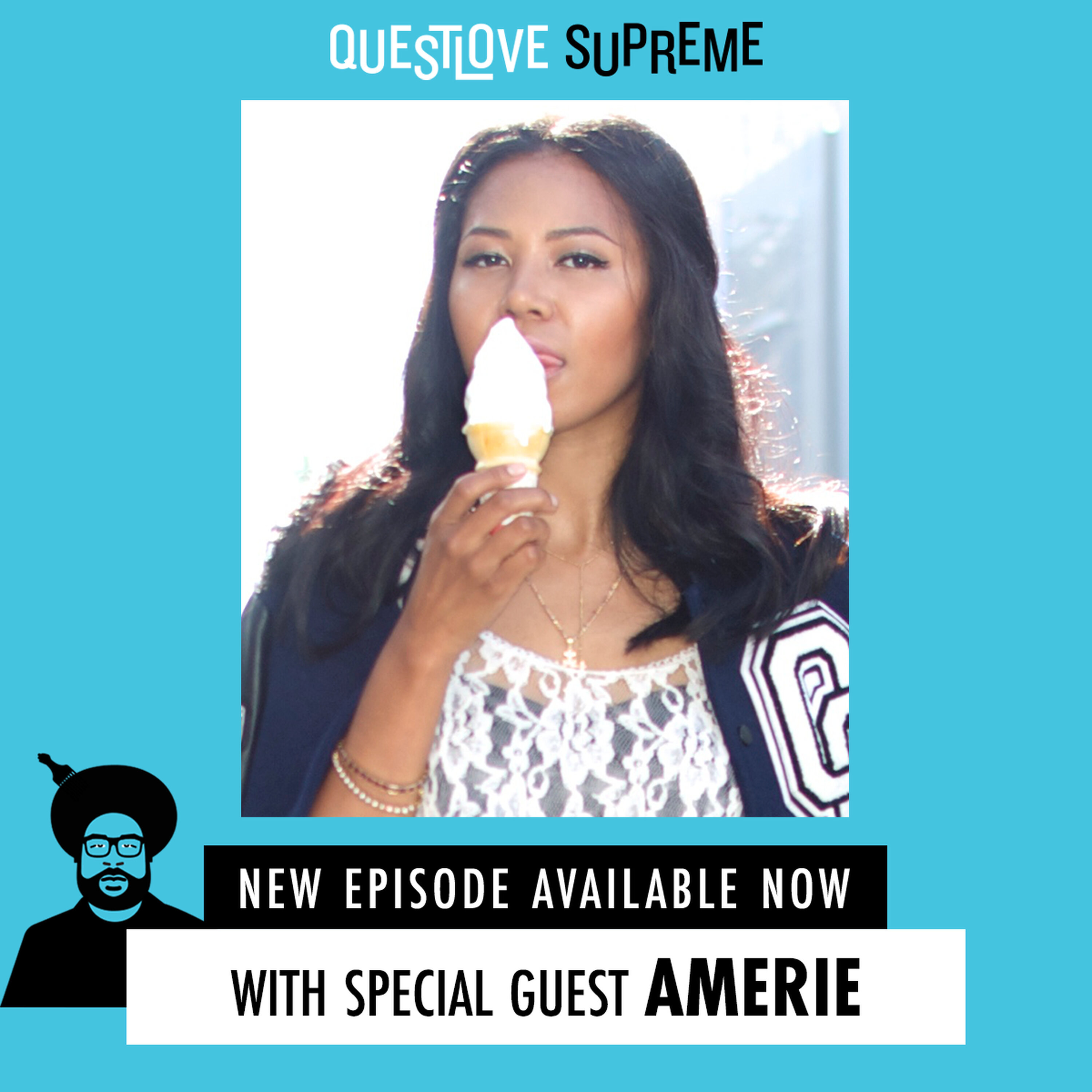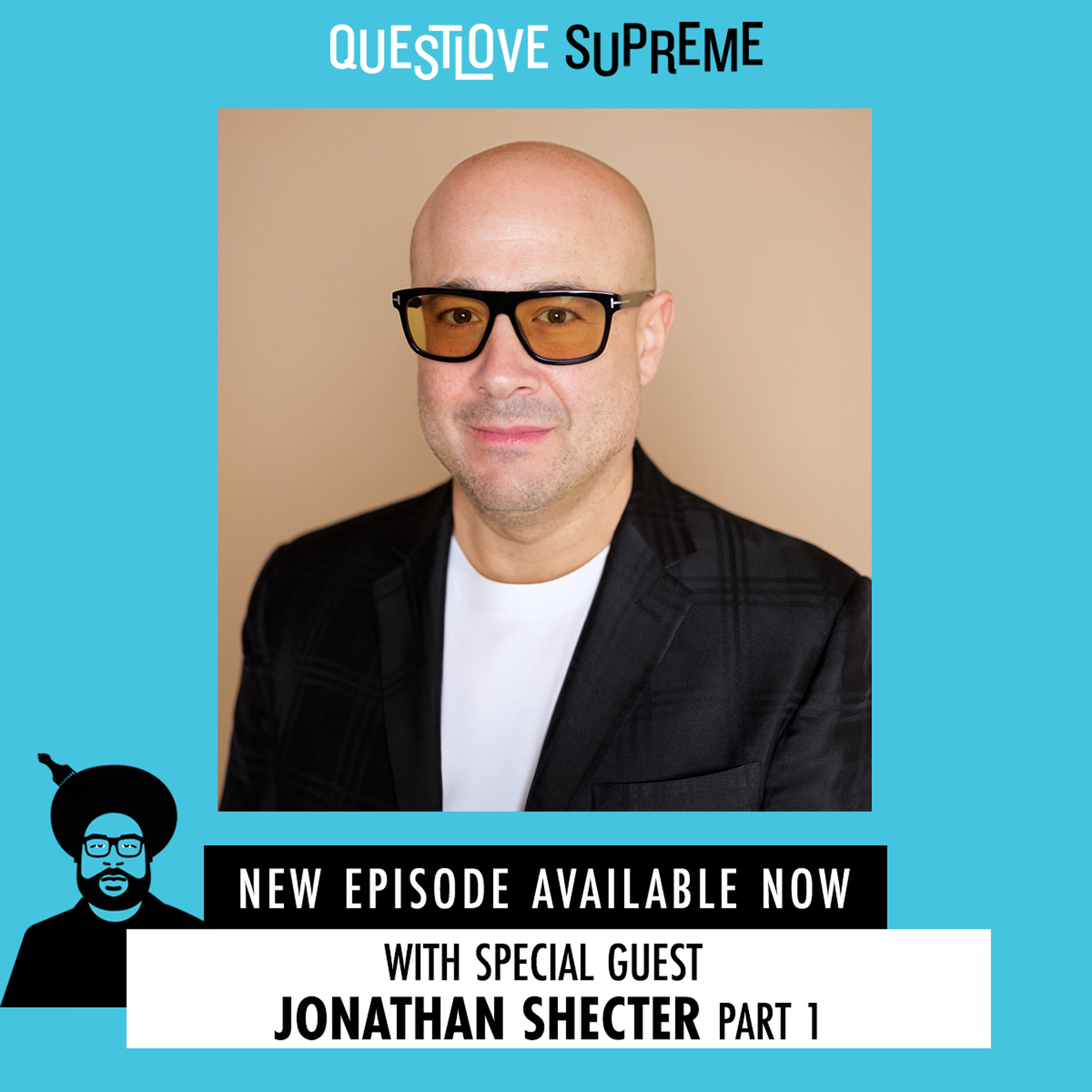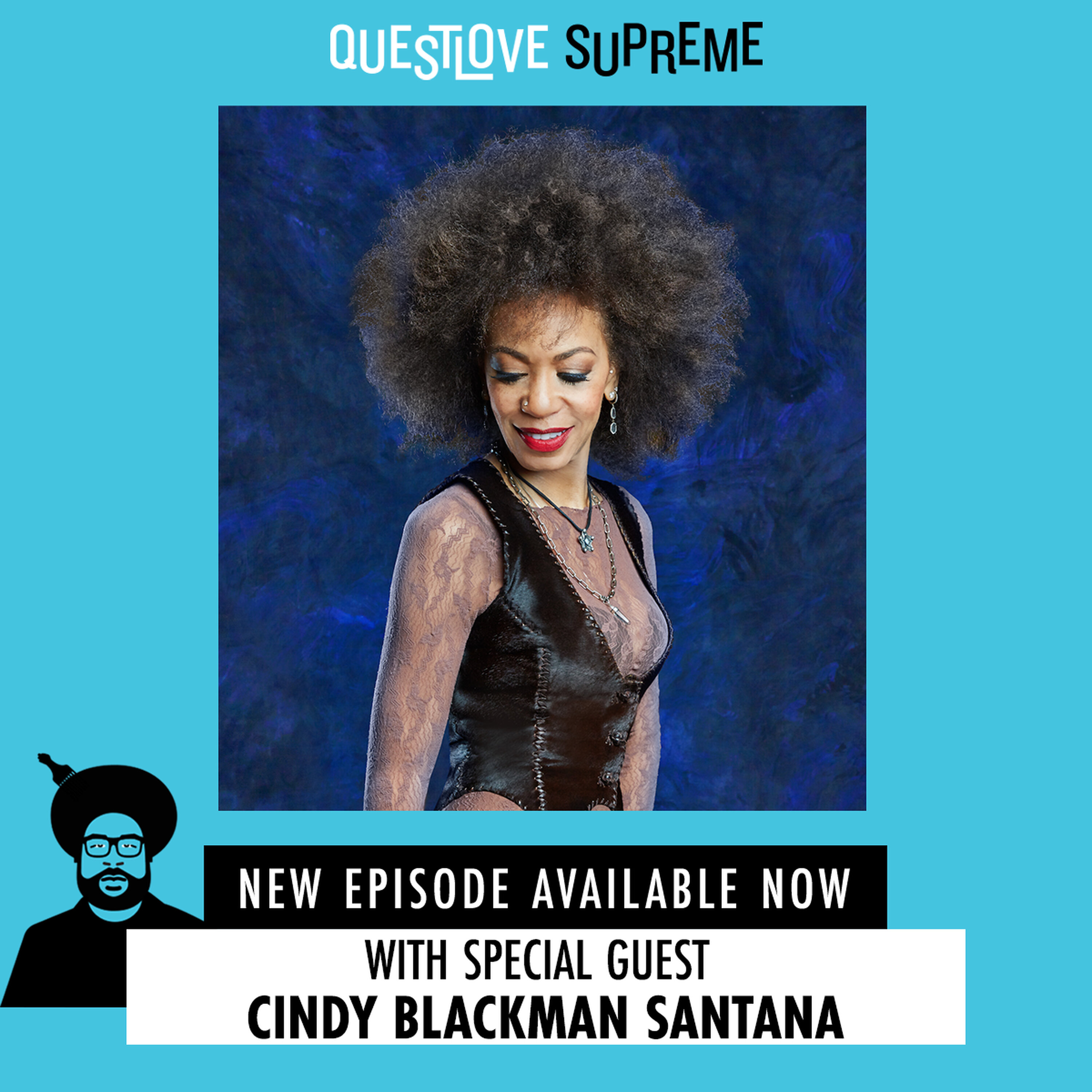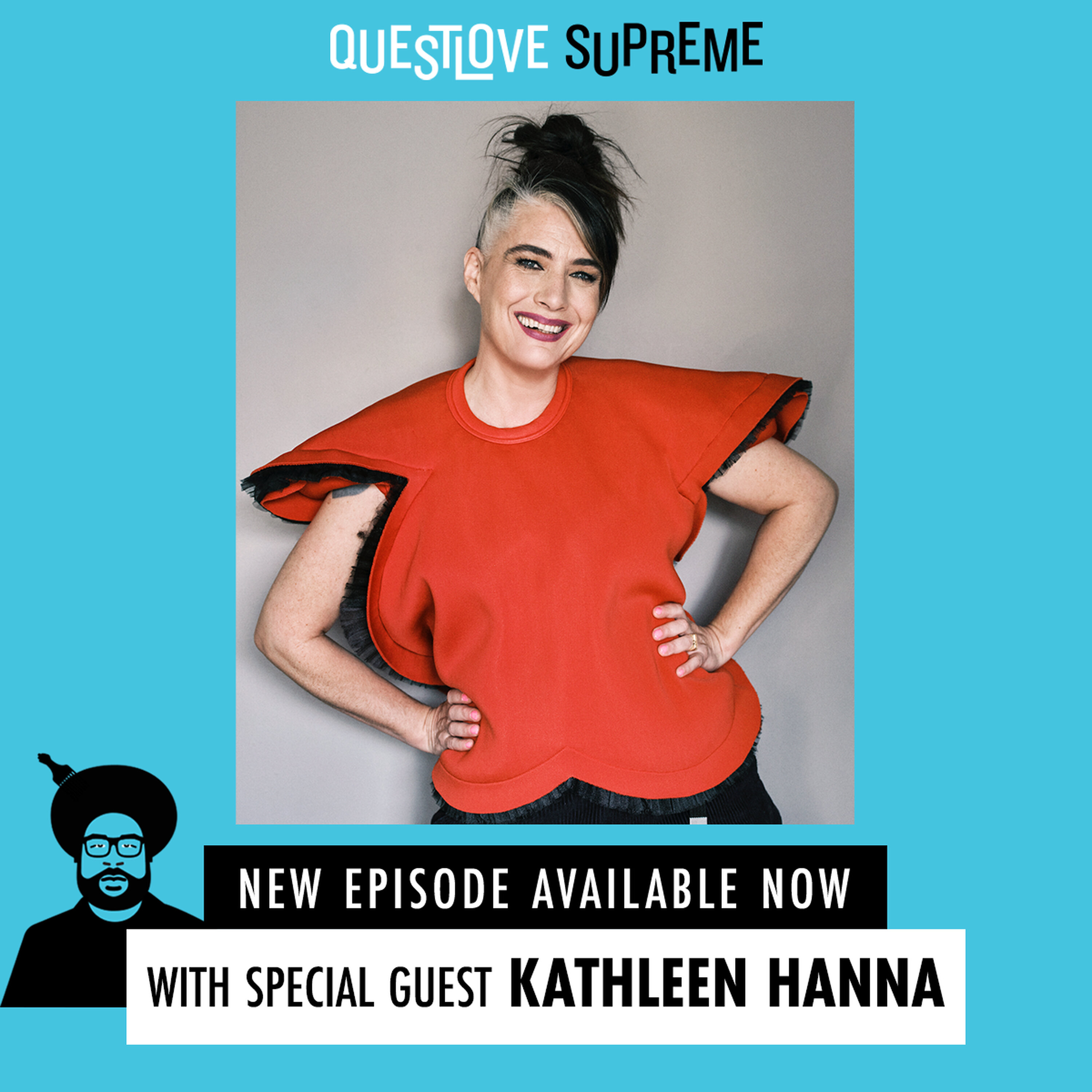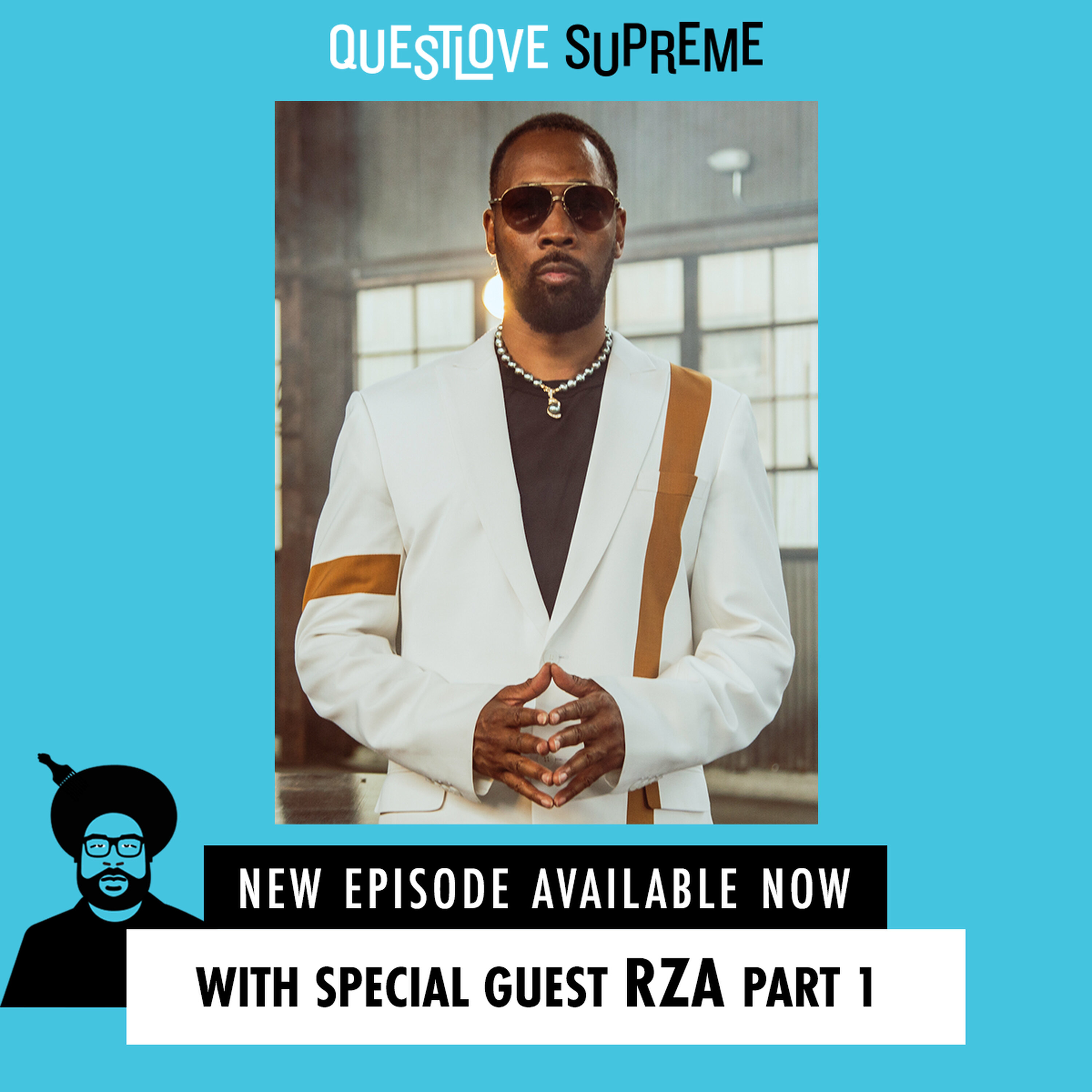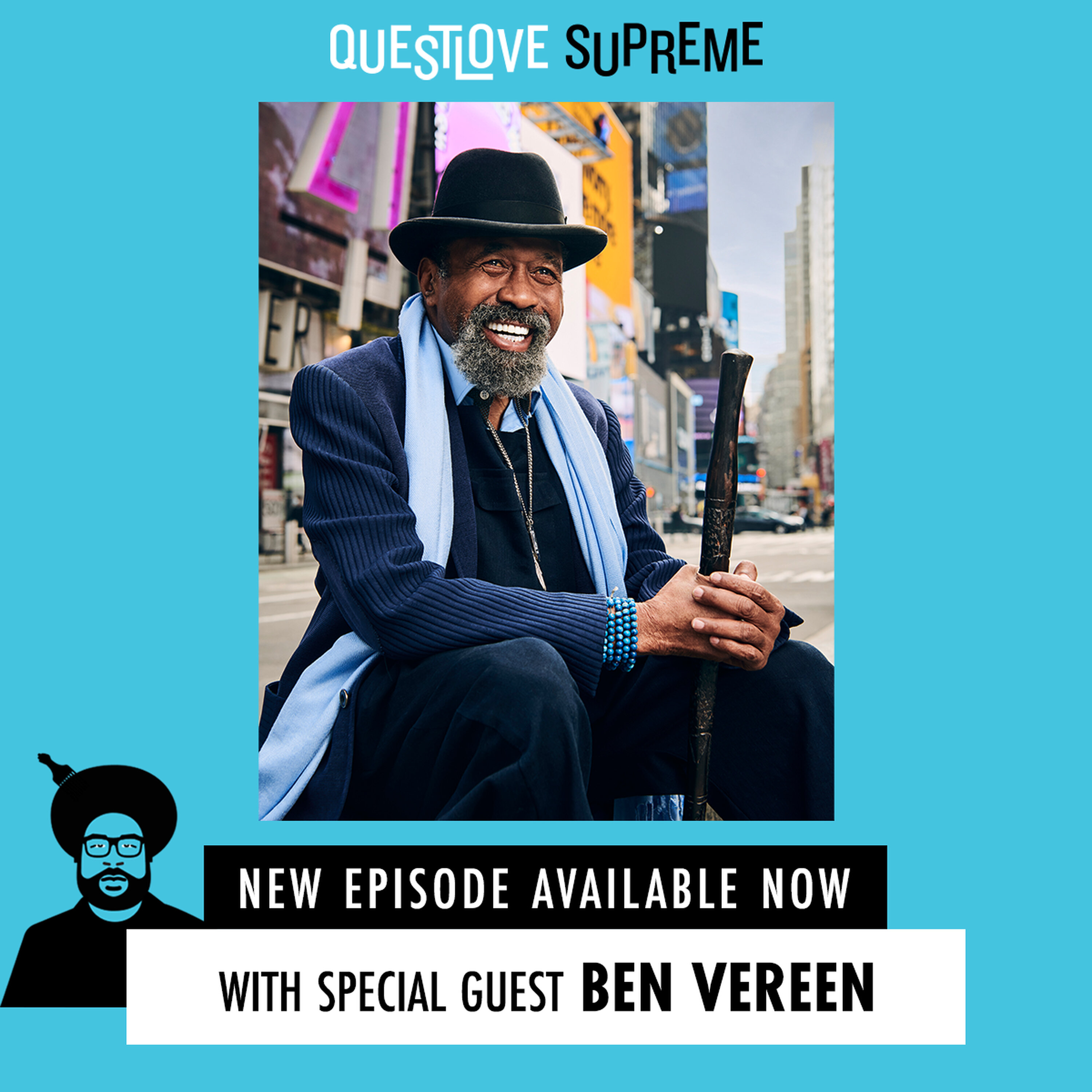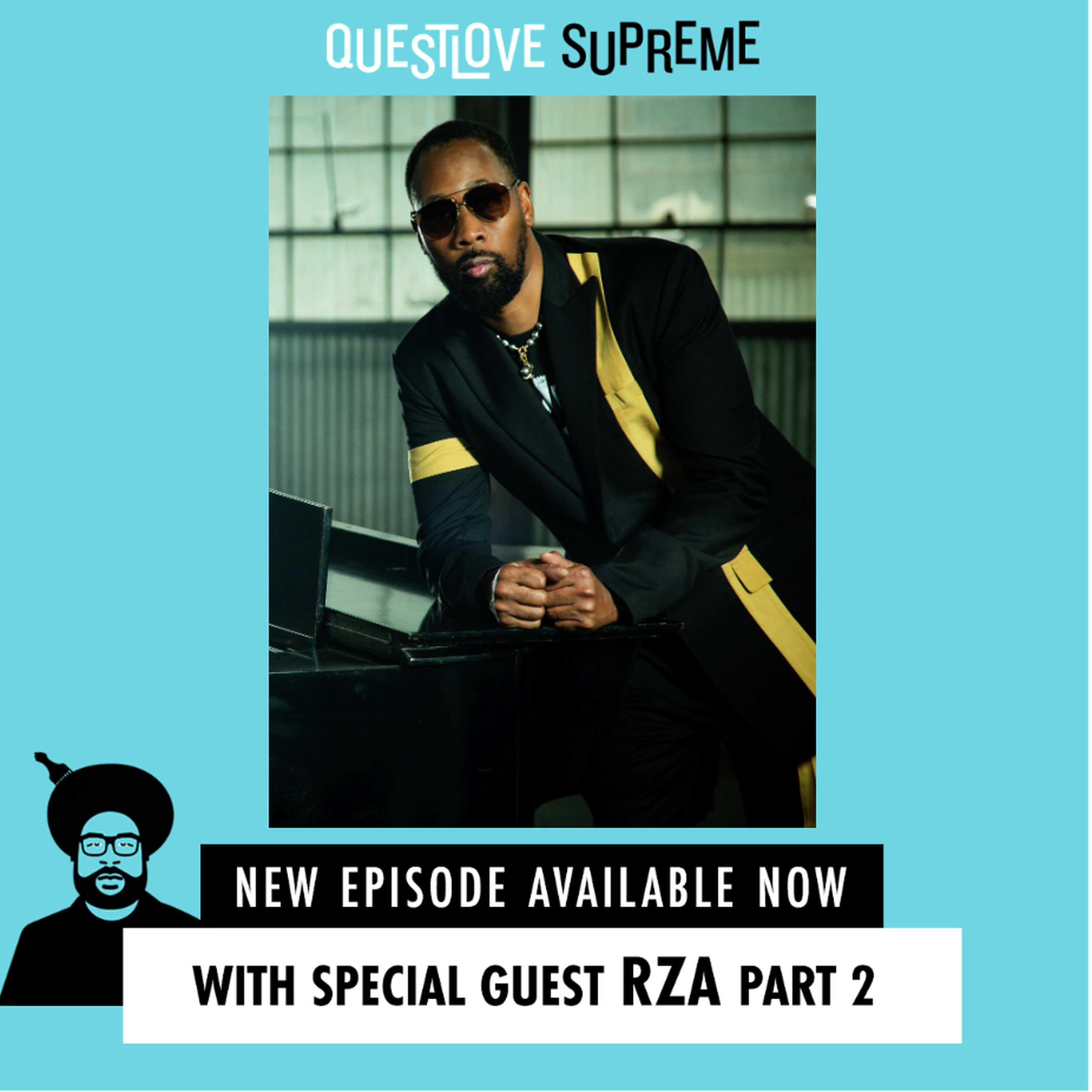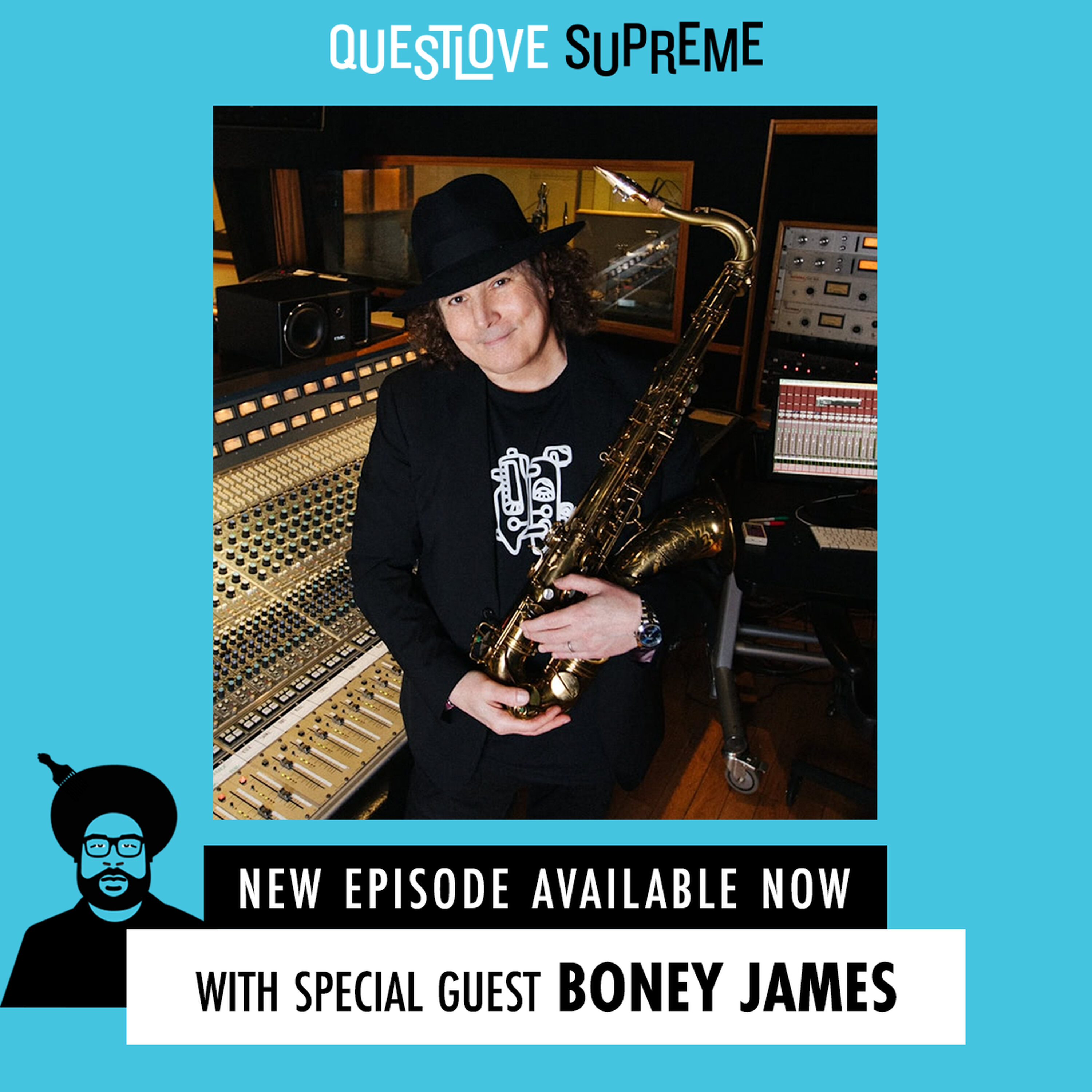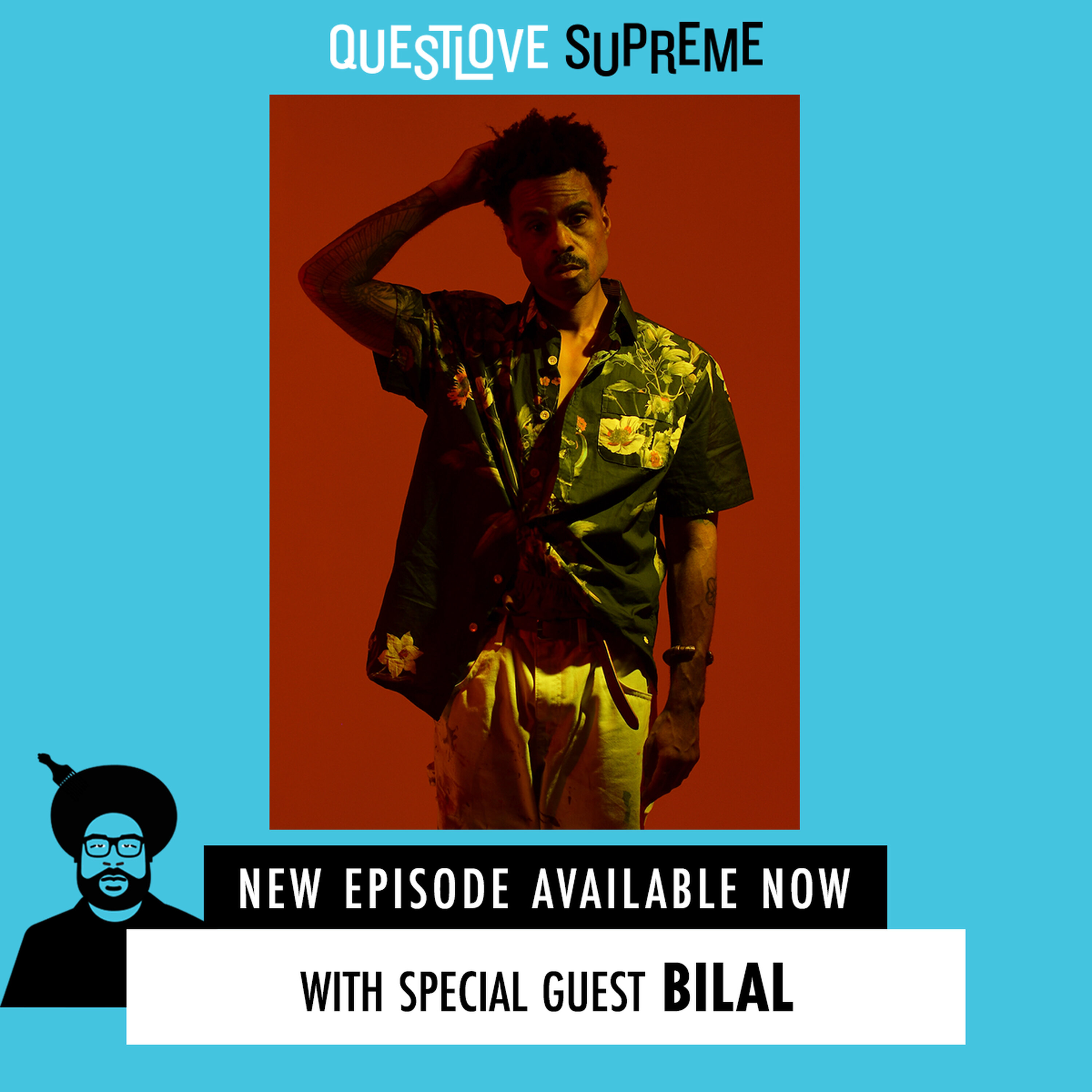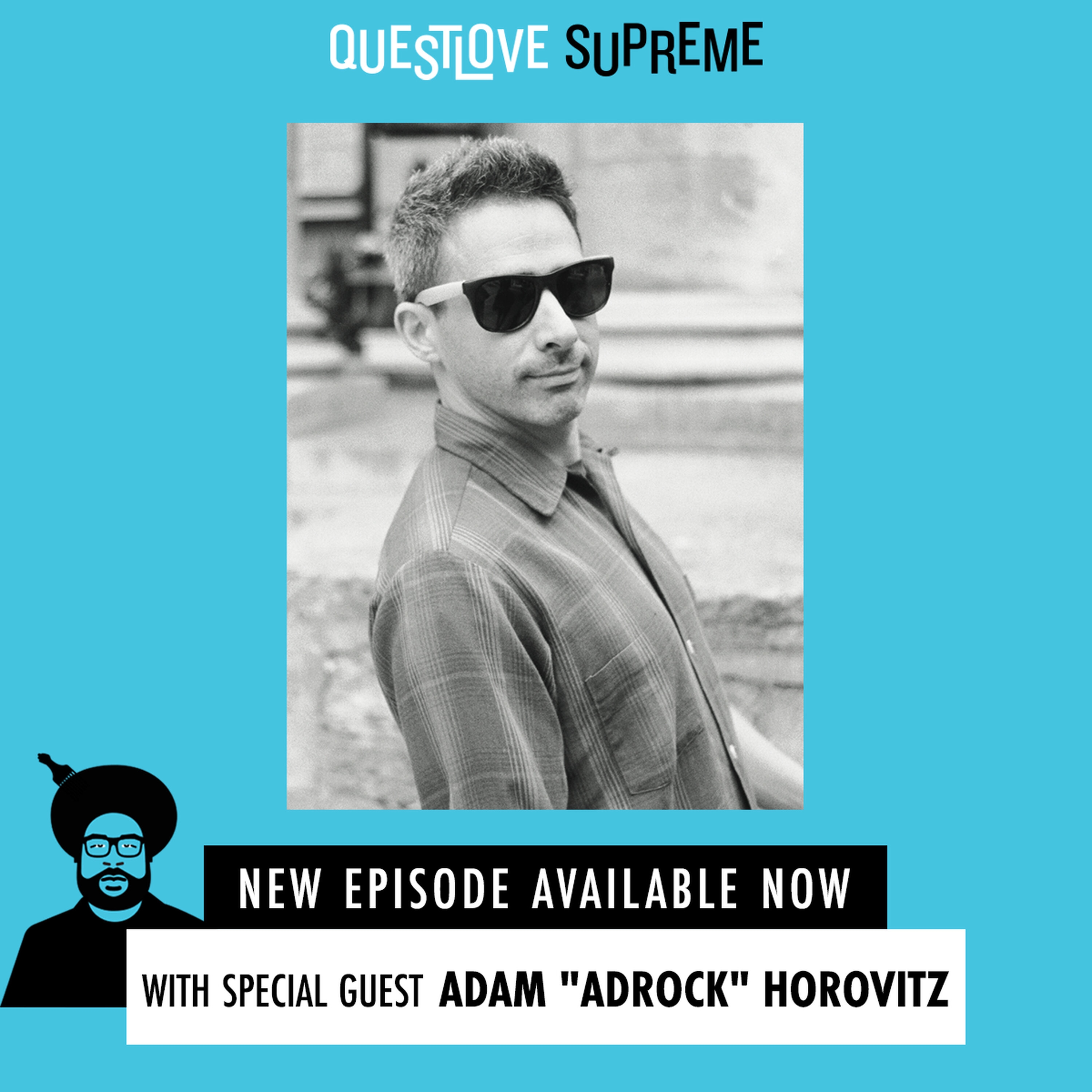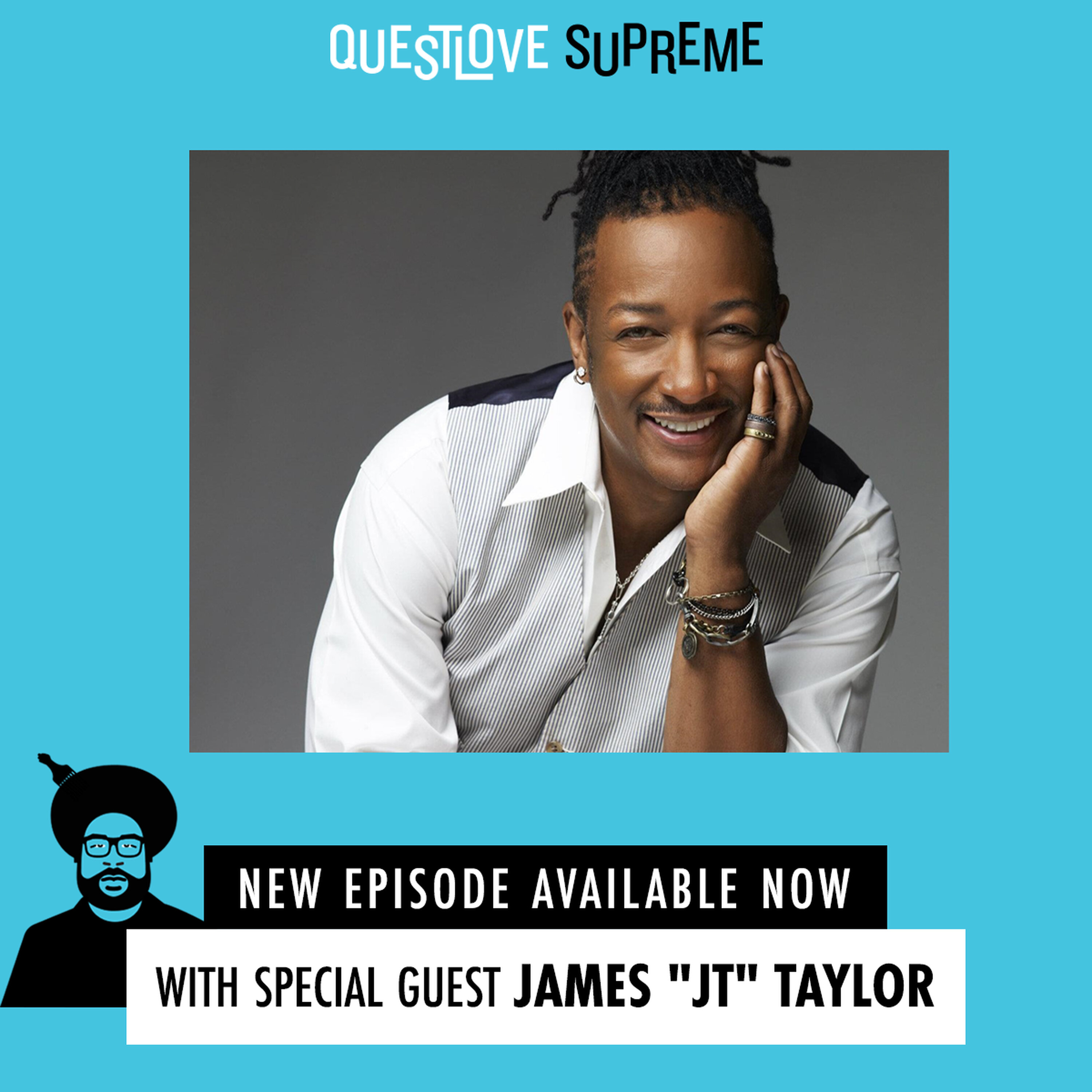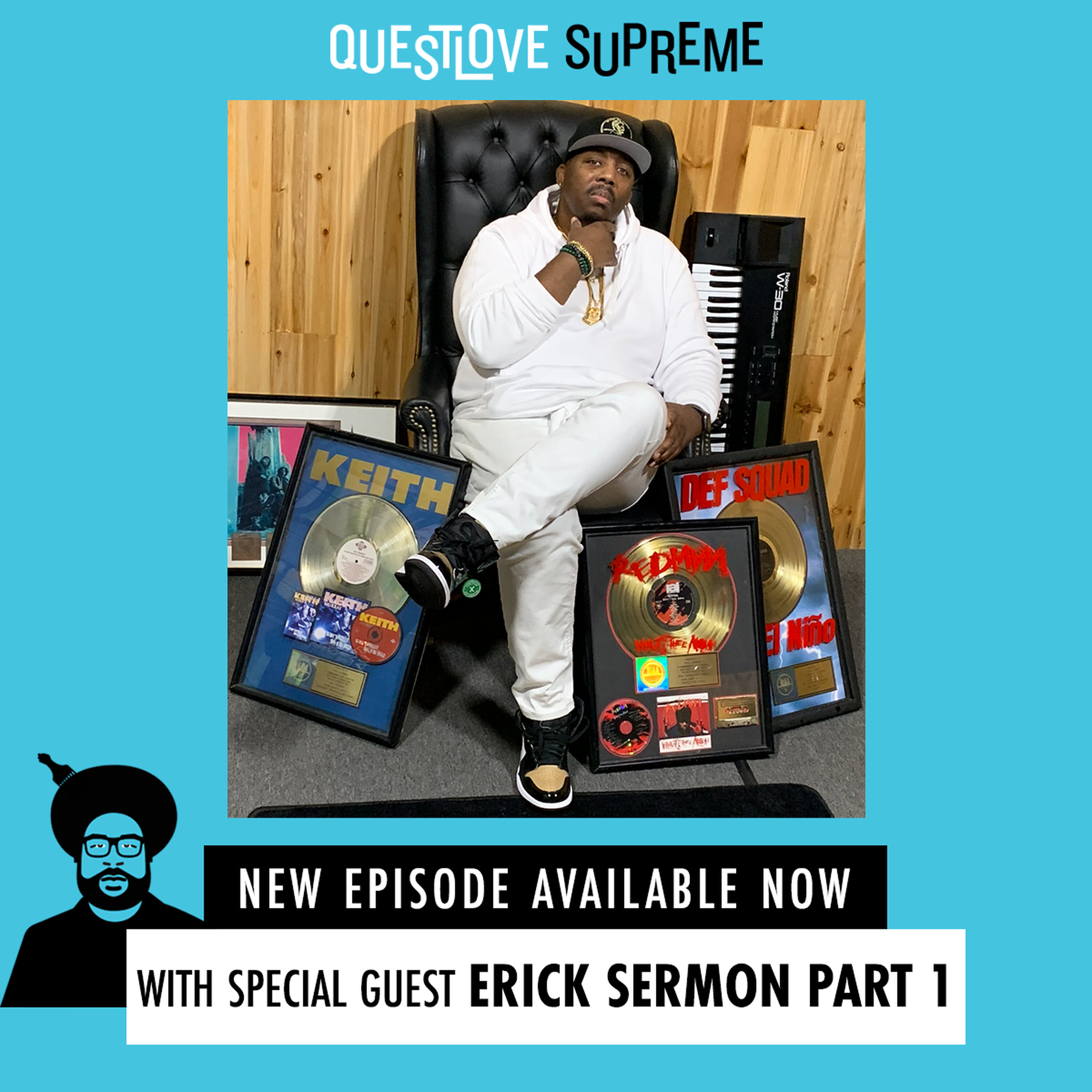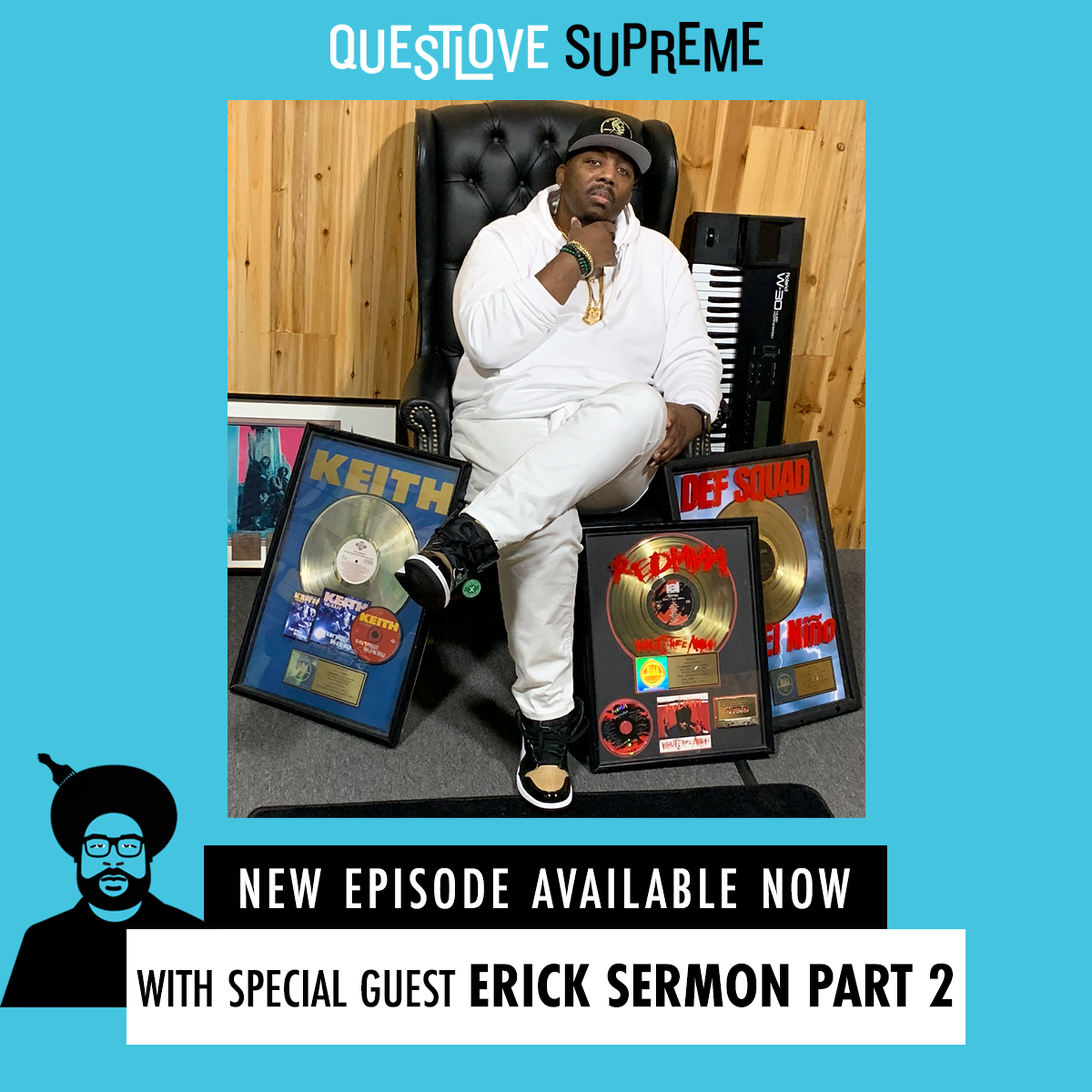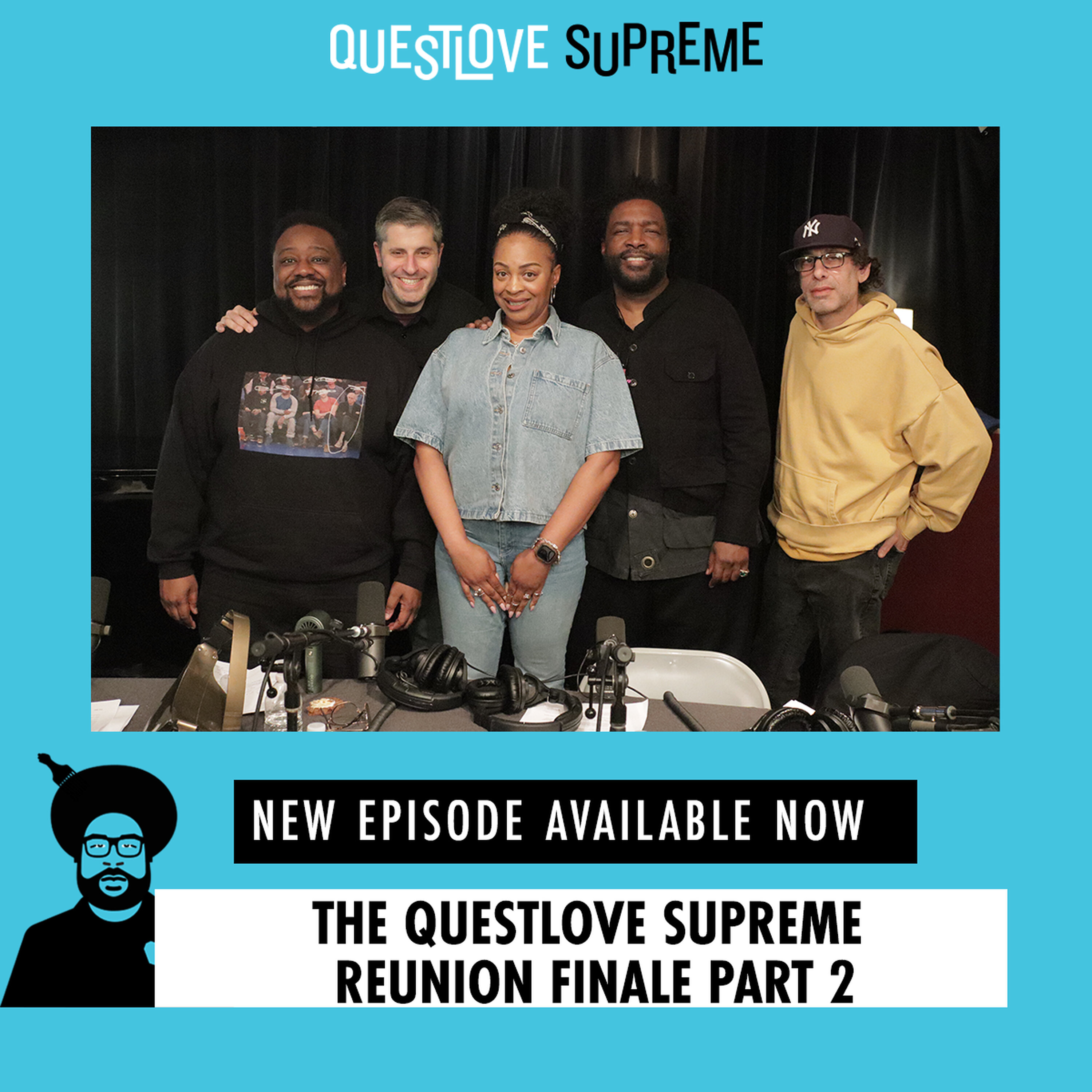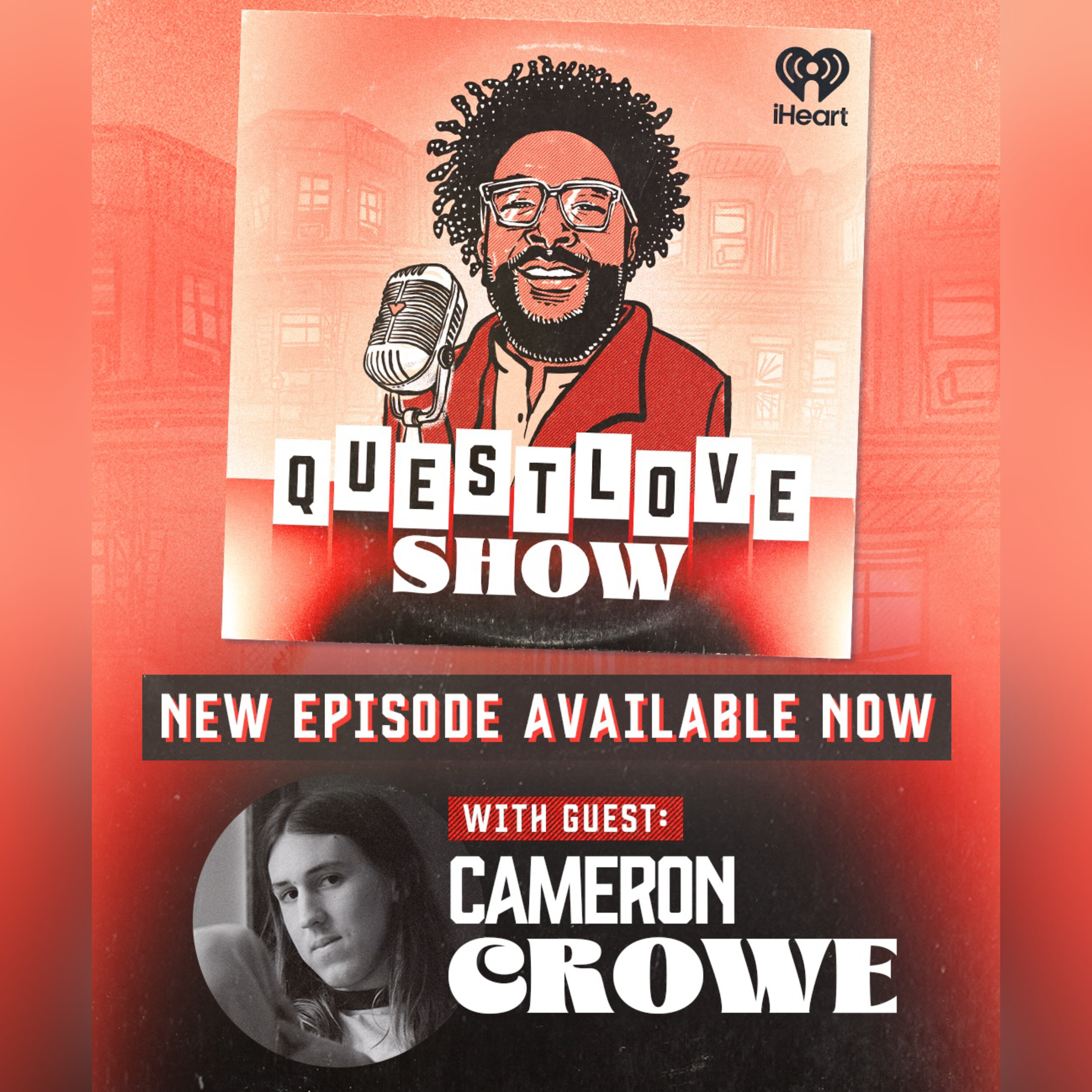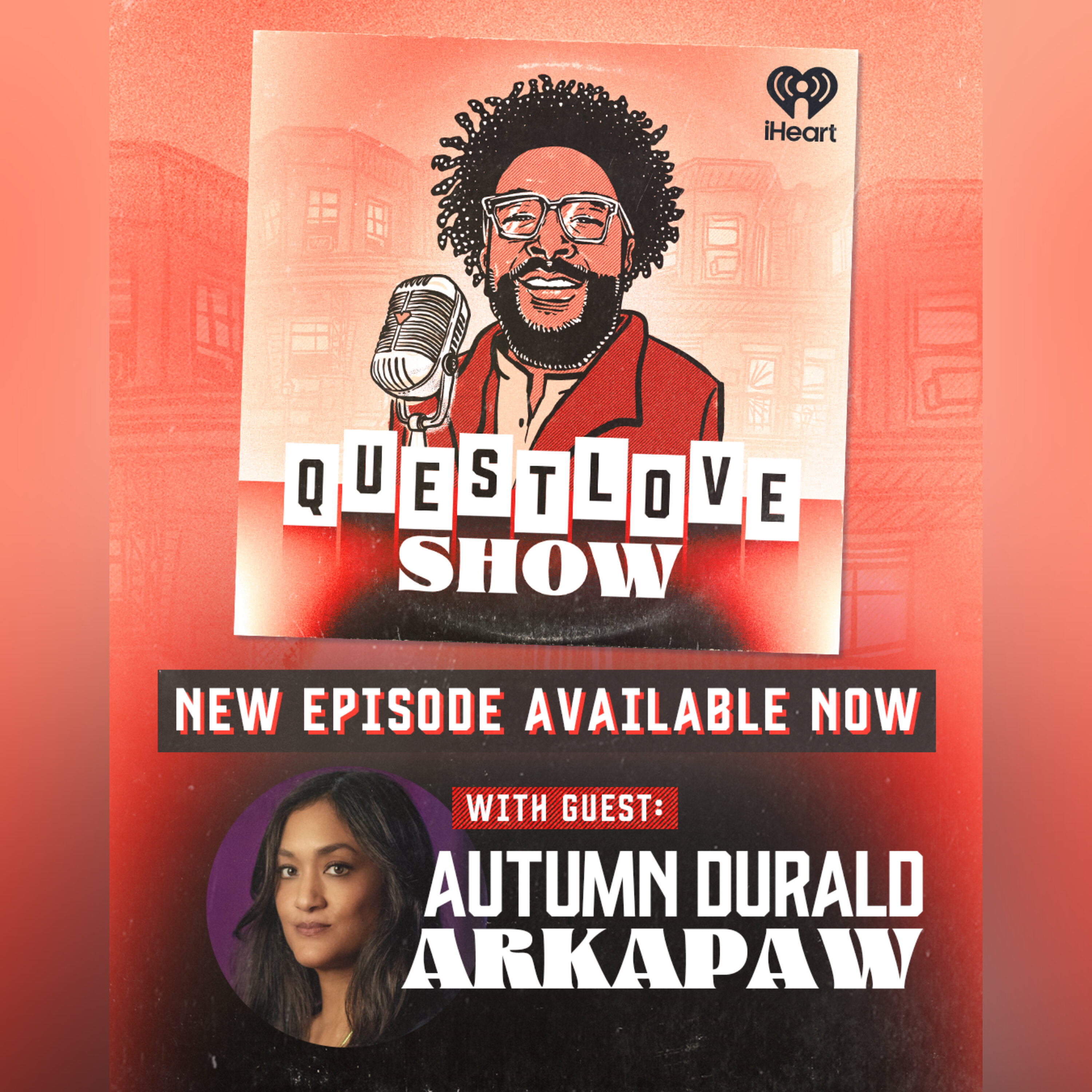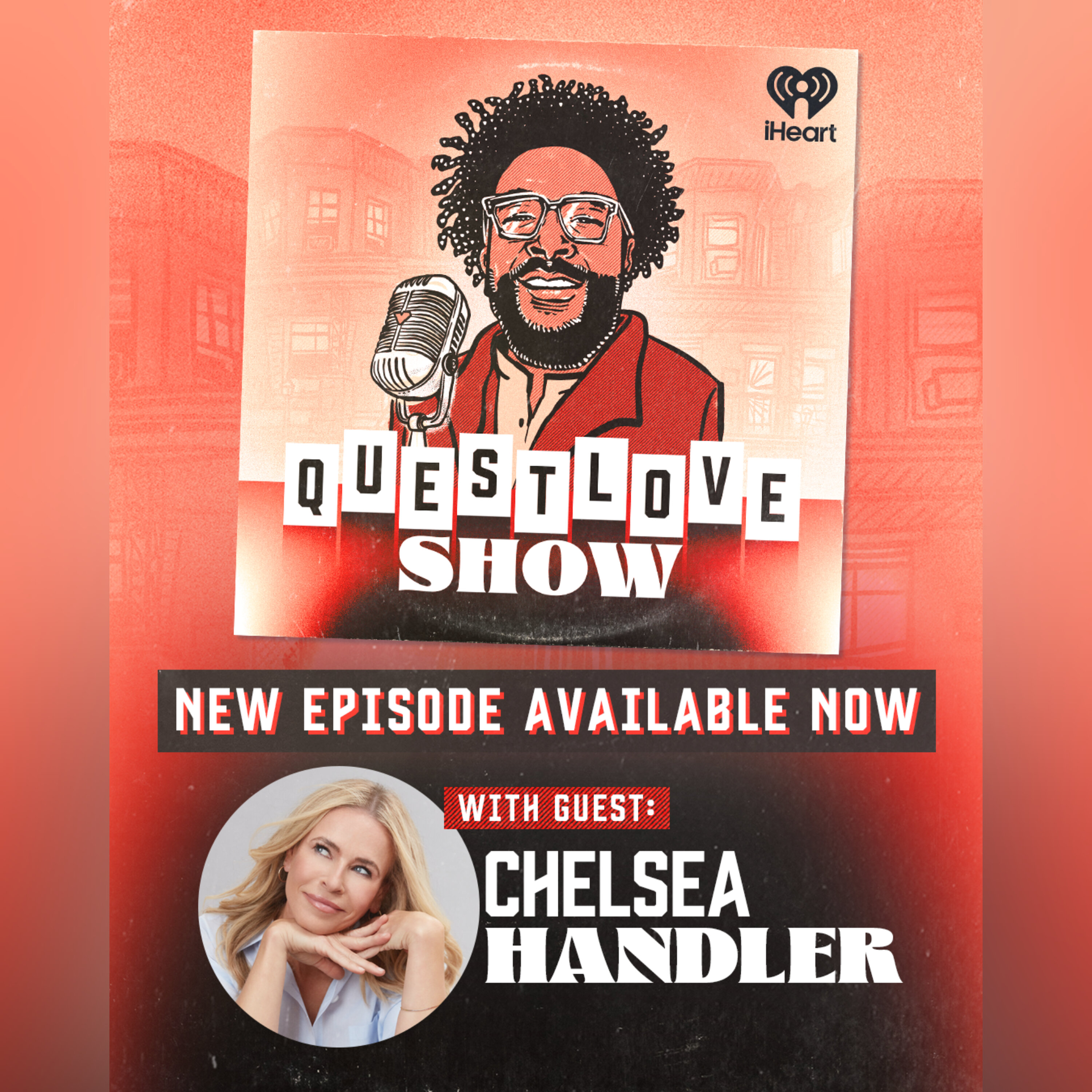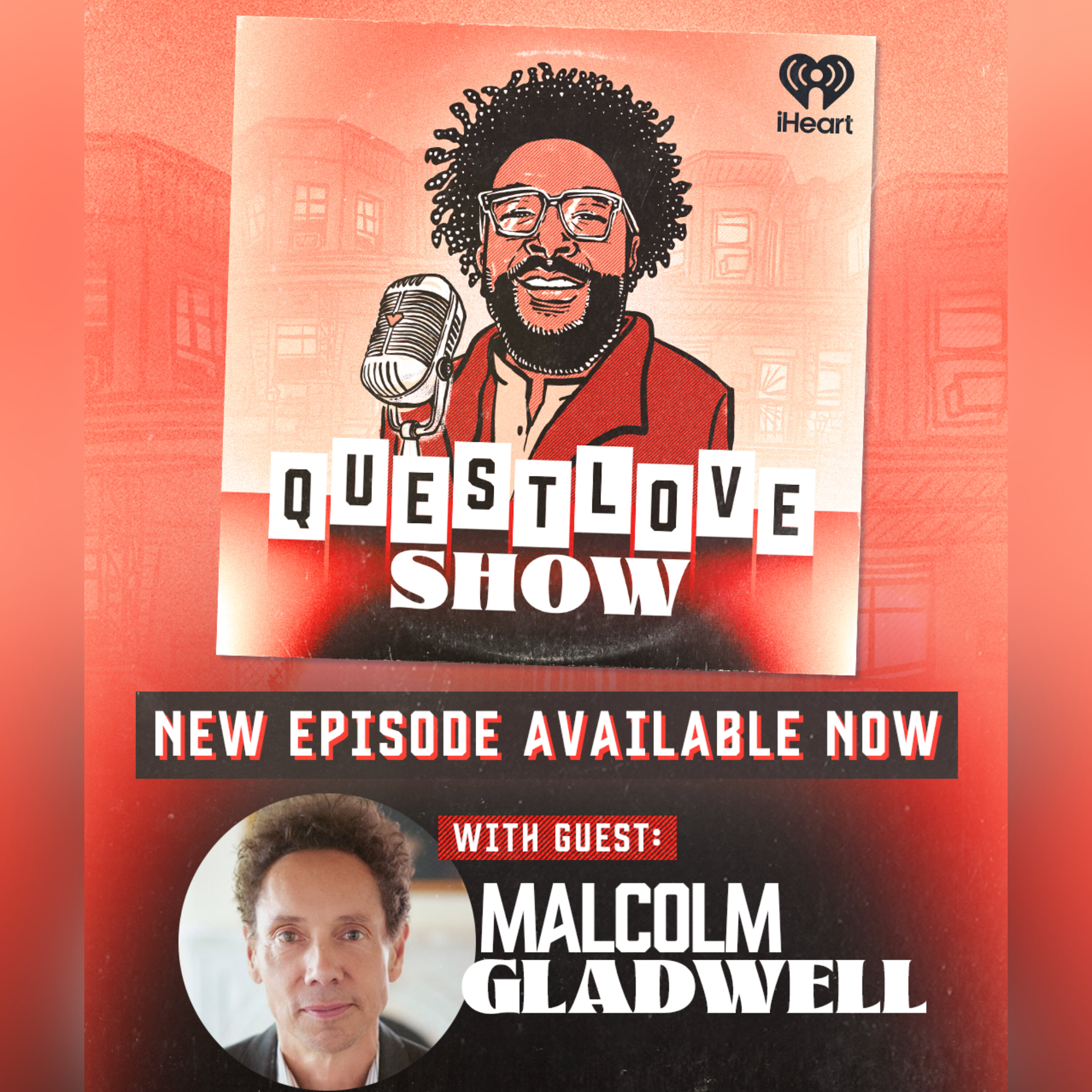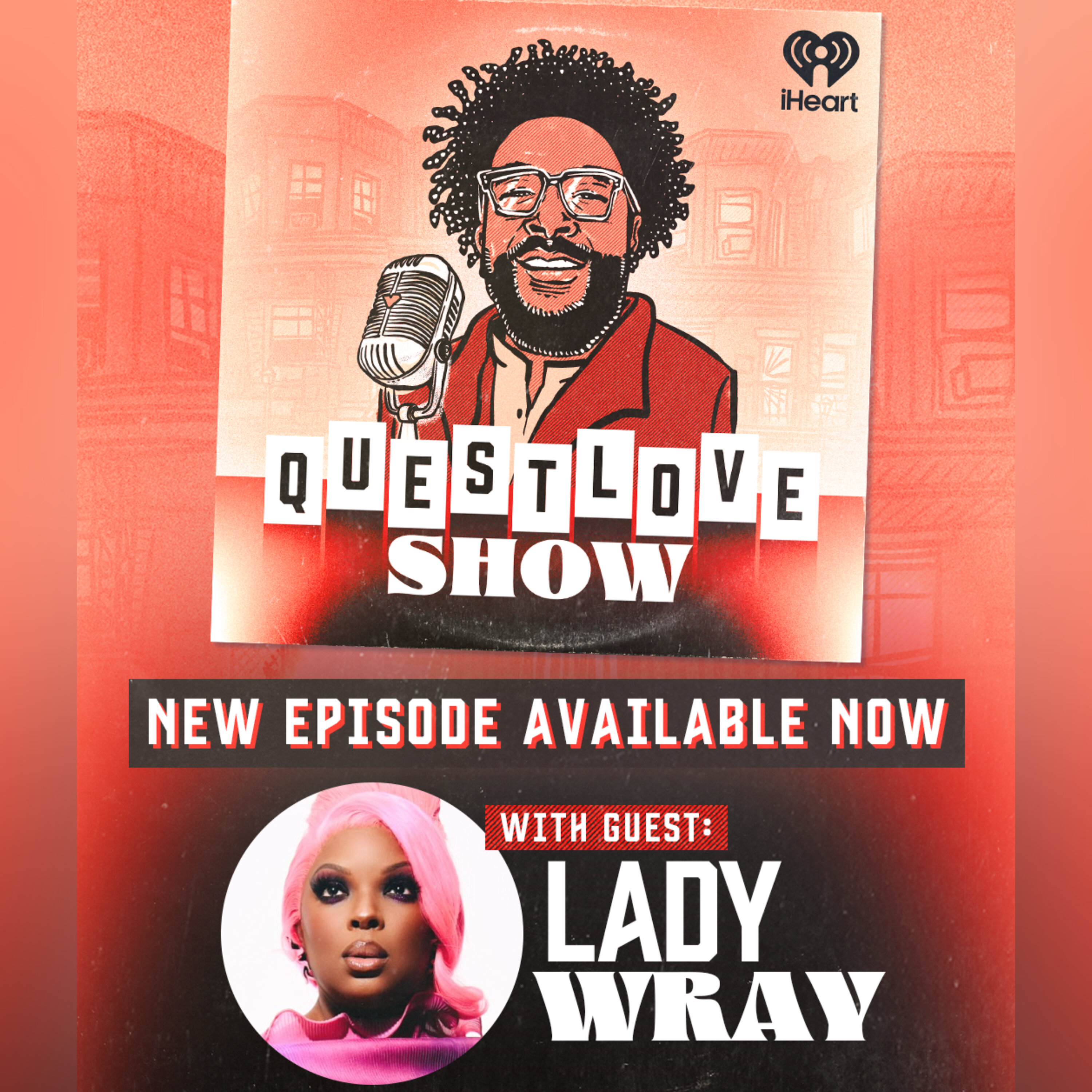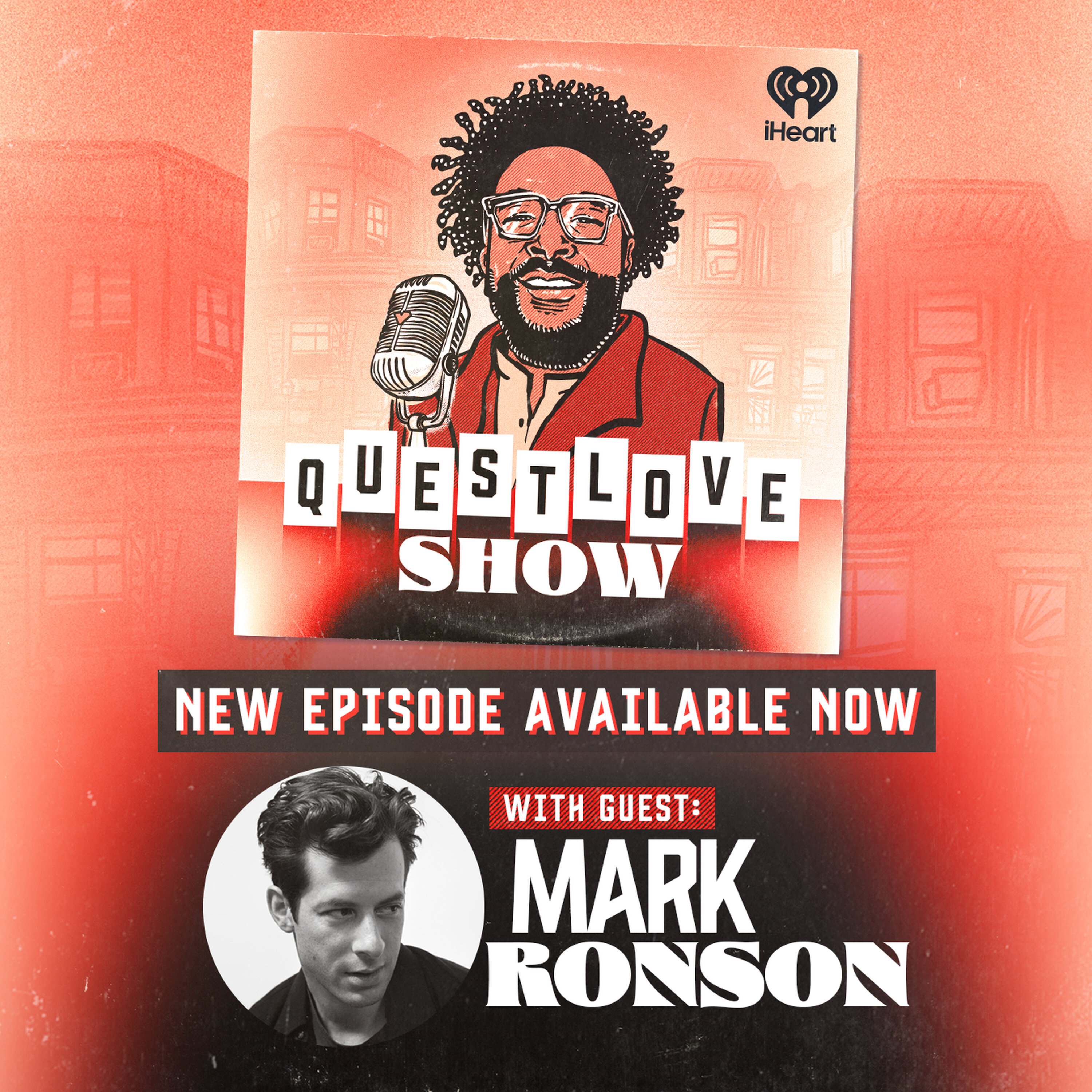QLS Celebrates Womens History Month Part 2

The celebration of Women's History Month continues at Questlove Supreme. This episode features memorable and thematic clips from Chaka Khan, Solange, Stacey Abrams, Kathleen Hanna, Nelly Furtado, Heather Hunter, and more. Questo offers some commentary as well in this curated QLS retrospective.
00:00:00
Speaker 1: Quest Love Supreme is a production of iHeartRadio. Welcome back to Quest Love Supreme, y'all, and this is a tradition for us. At March, we are celebrating Women's History Month with some special programming drawing from nearly a decade of shows and conversations.
00:00:21
Speaker 2: This is part two.
00:00:25
Speaker 1: You know, it goes without saying that despite where we are currently in present day times, it is important to be an ally to women to lift up their voices. Frankly, I believe that they are the leaders of now. We as men need to take a back seat, and I'm all for that. So despite what you hear in the news as far as like how businesses are run, I will continue to keep that promise to elevate. And you clearly see, like with my staff, my management, the artists that I choose to highlight, it's all about allyship and that's what we're about here. Being raised by my mother, my mother was always quick to pull me aside if she ever felt that the seeds of anything toxic was about to start coming down the pike. And you know, she would quickly remind me that, you know, you better learn from this situation that when you're grown up you know, a woman's not going to tolerate this type of behavior. You know, she kept me in a constant practice, not just when your mom's around you start, you know, acting up. But she taught me early about the importance of this and so women are not a threat. They deserve agency and are full support. Here's Shaka Khan from twenty seventeen. The clip is only a few minutes long, but it says a lot. Shaka touches on pivoting outside of rufus and some of the judgments and complications she felt as a pregnant.
00:01:59
Speaker 2: Artist at the time.
00:02:00
Speaker 1: She also speaks about her reluctance to sing I'm every woman, Shaka on behalf of everybody. We're very glad you did, though, do you explain to your guys like, Okay, well I'm gonna do the soul project real quick, but I'll be back, or like where was it?
00:02:17
Speaker 3: Well, you know, I got pregnant in the until of the beginning of that situation Otis Smith. You know, he was trying to trap me up and everything. God bless you, ODIs, But I'm telling the truth. He thought, you know, he was trying to have me and I got pregnant. By my husband. And he told me, he said, I'm how am I gonna make a star to you if you're gonna be having babies? I said, let me tell you something. I'm gonna be what I'm gonna be with you or without you, around you or under you. You have nothing to say about this.
00:02:57
Speaker 4: That's crazy because how many female singers have that same story, Like pregnancy is like.
00:03:01
Speaker 3: Cat make a start. I said, I'm not you know, a pin up. I'm an artist, you know when I'm pregnant or not.
00:03:13
Speaker 2: So so coming to the soccer project.
00:03:20
Speaker 1: You work with, I mean, ar If is one of my idols because for me, like the band that I worshiped the most when I was a kid was the average white man. Yeah, and so to see those names on the credits, I was like, oh, this is gonna be awesome.
00:03:39
Speaker 2: What was it? What was it like working with him? Yeah?
00:03:43
Speaker 3: Oh he was like my uncle father. Really, he took care of me. He put when I got my.
00:03:52
Speaker 2: Did you see him first or did they come to you?
00:03:54
Speaker 3: Like okay they put us together.
00:03:56
Speaker 2: Okay, who did you initially?
00:03:58
Speaker 1: Because by that point I forgot you did sounds and stuff like that too with Quincy.
00:04:03
Speaker 2: Yeah, well Quincy seventy six.
00:04:05
Speaker 1: Was he ever in the running for a second? I mean before Master Jam, but I mean like.
00:04:09
Speaker 3: Well, you know, I don't know what happened behind the scenes and stuff with that with him not working with I think he might have been working with Michael around that time.
00:04:20
Speaker 2: Yeah, he was.
00:04:21
Speaker 3: Yeah, he was so iraf and I I liked if a lot because he had produced Aretha Franklin.
00:04:29
Speaker 2: That's right.
00:04:29
Speaker 3: Yes, I love what you did with Donnie Hathaway, right, and you know, so I was like, yeah, this is good, this is good. And I mean he bought the blinds from my apartment, he put the carpet, you know, he took care of me like like his daughter. Well, and you know, I was his spiritual daughter. And he told everybody that you and told me all the time you were my instrument. Really, you have my instrument. You can play anything that I hear that I want.
00:05:08
Speaker 1: So, how did you I mean, by that point, by that point, you're just in full fledge of control of your instrument, your arrangements and background.
00:05:19
Speaker 3: The songs I wanted. Then, Yeah, so.
00:05:23
Speaker 1: Did they write I'm every nick value right, A lot of scientifically, Yeah, what made you choose that song?
00:05:31
Speaker 3: I'll actually talked me into it because I felt like it. I felt awkward saying the words I'm every woman. I didn't. I thought, how dare somebody say that they're every woman? I would just just not, you know, mentally there yet, not saying the anthem that it will be a song.
00:05:50
Speaker 2: That you because I'm a woman. I'm a backphone.
00:05:55
Speaker 1: See I'm thinking in terms of like you're singing like feminist anthems and those things.
00:05:59
Speaker 2: That was just in line with you, you know.
00:06:04
Speaker 1: No your womanhood and making us respect that.
00:06:09
Speaker 3: Well, you know, I wouldn't think about womanhood at all. I was singing songs that meant something to mean lyrics like I'm a woman on a back on a backbone. Your Smile was written by a woman named Lalonei Washburn. She wrote those songs. And but when I'm every woman, I had to grow into it. I just well, maybe in the last ten years something got comfortable singing that because I understood then what she was saying, you know what they were they were writing.
00:06:39
Speaker 5: I just shood, what did Whitney singing it mean to you?
00:06:44
Speaker 3: She's of all the people that have covered by songs. I had to ask her after she did it? I said, uh, did you use my background? Or that you that's like it? She's she's great, she was a great, great artist.
00:07:05
Speaker 2: Did you do was I'm every Woman first? Or was Clouds first? Which one.
00:07:12
Speaker 1: Clouds is on the second album on because that's the first song.
00:07:17
Speaker 2: Yeah, I love that song.
00:07:18
Speaker 3: Yeah, and you know what's doing. Whenever it's time to make us the record, we would get our put the word out. We would get boxes and boxes of cassettes and we would sit and listen to songs, listening sessions, and we would mark which songs we did were good, and when we came down to it, he would go on the track and write it out.
00:07:43
Speaker 2: Oh you don't want to ask what were your feelings on Snaps the Power? Uh? I got the Power specifically?
00:07:55
Speaker 3: Well that was a Penny. Yeah, actually that was my gig. I was living in England.
00:08:01
Speaker 2: They for you.
00:08:03
Speaker 3: They called me and asked me to come and do this stuff with him with them, but you know, I was having too much fun and I said a Penny. I told him I was sick of some But I said, pity you go to that because she Penny is one of my students as well.
00:08:18
Speaker 2: Oh you sent her to do it.
00:08:19
Speaker 3: Yeah. I said you could have that, you go do it really? Yeah, and then I slapping myself on the back of my head.
00:08:29
Speaker 2: Was a monster. Yeah, it's so basically why Snaps.
00:08:33
Speaker 3: Really the group snap?
00:08:35
Speaker 2: You got it?
00:08:36
Speaker 4: In the context, Penny was the one who was saying I got the power.
00:08:39
Speaker 2: But that's not the part that we're referring to. Put you on the game.
00:08:50
Speaker 1: I'm just saying the whole he could break my heart part from I Got the Power.
00:08:56
Speaker 3: Love left my brother on bass, yes.
00:09:03
Speaker 5: Like your brother.
00:09:04
Speaker 2: Yes.
00:09:05
Speaker 3: And it sped up. It got faster fast. You could tell that that was a heart song. And Steven he was kicking on the damn drunk, I'm mean. And somebody said, well it gets fast. I said, the little hearts when they're excited.
00:09:27
Speaker 2: I'm just saying I thought we.
00:09:28
Speaker 1: Had a moment because I don't looking at me like humble practice.
00:09:36
Speaker 2: Three two. Yes, I own the snare drum that so on some love, thank you very much.
00:09:42
Speaker 3: Was it a pickolop?
00:09:44
Speaker 1: Yeah, Steve, Steve, I've stalk note drummer in life more than Steve Ronie.
00:09:49
Speaker 2: Like I'm literally his Yeah, I'm saying I'm in air parent more than Clyde Stubble or any other drummer.
00:09:55
Speaker 1: I'm Steve Fron's double and he as a gesture, he gave me, uh his black and white snare that he's used, Wow, all records.
00:10:09
Speaker 3: Oh fantastic, But you don't. Miles gave me one of his his trumpets, the blue one. But you don't what his nephew that I could kill him.
00:10:21
Speaker 2: He took it back.
00:10:22
Speaker 3: I could kill him. Excuse me, almostcuse me, who can't take it? Okay, But I'm telling you after after he died in his in his will, he gave it to me, and the boy kept. Every time I see him, he shrinks and tries to hide and say, I'm gonna get it to you. I swear I'm gonna get to you. Well, I'm done with it now. You know what I'm saying, because what Miles David said is your your voice sounds just like my own. That was enough for me.
00:10:54
Speaker 2: You have trumpet, that's enough for me.
00:10:57
Speaker 3: The new the trumpet. See, I don't like usually like trumpet, only this muted. What's that sexy? I'll make trumpet? Make sexty, yeah baby.
00:11:10
Speaker 1: In twenty twenty two, Quest Stuff Supreme recorded of Black episodes in Atlanta, where our iHeart Partners.
00:11:16
Speaker 2: Are located and based.
00:11:18
Speaker 1: One of the highlights of that trip were speaking to Stacy Abram, the politician, author and activist. Wasn't a race to become the first black woman governor of the state, and my role call then I called for Stacy to run for president in twenty twenty eight, and I stand by those words still. We asked her about the origin of her leadership, and she explained, back when you were in college where what were your lofty.
00:11:47
Speaker 2: Goals in life?
00:11:49
Speaker 1: Like are you imagining that some fifteen sixteen years later that you'll be in the position that.
00:11:55
Speaker 2: You are now? Or were you just like, Okay, I'm gonna be a lawyer or da da da da, Or.
00:12:00
Speaker 6: I had like twenty seven majors in college. I was physics and philosophy, with a minor in theater. It turns out I liked star trek but not differential calculus. And when you can't stay awaken in pistemology, it's probably not the thing to do when there are only four people in the classroom. I like acting, but not enough to make it my life's work, and so I flitted through a bunch of other things. But What was the through line for me was activism. The pivotal moment for me when I realized that it wasn't just an inherited property from my parents, It was part of my DNA. When the Rodney King decision came down in nineteen ninety two, I was a freshman at Spelman. I organized students to protest. They locked down our campus. I was at the AUC and if you if you know Atlanta, they locked down I twenty so you could not get off of the interstate and come to the University center. So it Spellman, Moorhouse, Clark Atlanta, Morris Brown, ITC and our School of Medicine. And then they tear gassed us. They tear gas the entire area. And this was under a black mayor.
00:12:58
Speaker 5: And this is Spelman and Mors.
00:13:01
Speaker 2: Wow.
00:13:02
Speaker 6: But the schools were juxtaposed next to some of the oldest housing developments in the nation. And so the issue was we weren't, you know, elite students and poor communities. We were all black, and we were all basically accused of the same anger. And the problem was the protests were real because the pain was real. And so I helped organize students actually got into an argument with then Mayor Maynard Jackson. He won the argument, but because he couldn't argue and I was like, my cleanest tea shirts were my nicest jeans.
00:13:32
Speaker 3: But he still won.
00:13:33
Speaker 6: But he later hired me to work in the newly created Office of Youth Services.
00:13:37
Speaker 1: Okay, let me ask something, because you know, I did not go to college, like immediately got a record deal and had a career. Always wanted to know when we protest on a college campus, like what's the goal, especially when like the issue is three thousand miles away in Los Angeles, Like how does that trickle to?
00:13:57
Speaker 6: So two things. One, what Rodney Kings with the verdict was evocative of was the lack of justice from police, and that was happening in Atlanta, that was happening in Georgia. And part of it was where poverty exists, where racism exists, you were going to find police misconduct. And there was also the larger issue of simply the evidence of our eyes being denied. Those things. Well, Rodney King was emblematic of it was but he was only one example. He was the first example that got caught on tape. But people had those experiences everywhere, and that's why it was so inflammatory the protests I organized. We started this moment wetched. We marched from the AUC all the way to City Hall. So to your point, I didn't go to a college, We're protesting at the college. Made a lot sense because we all pretty much agreed the most effective protests leave the safe spaces and go into the public spaces. So we made sure that march went past the housing projects, went past the liquor stores, all the way down to city Hall. That's how I ended up getting into the tet a.
00:15:00
Speaker 3: Tet with the mayor.
00:15:03
Speaker 6: But to your point, there are some campuses where protest on campus is it's effective because if you're at Harvard, you're talking about billions of dollars in economic influence. If you're an AEC the numeric the monetary effect is the smaller, but the salutary effect is bigger because you have people who may have been conditioned to think that they were the exceptions to the rule, who have to remind themselves that they are part of the same fabric that people don't ask you, They don't investigate did you go to Spelman, Why are you in the AUC, Why are you in Southwest Atlanta? They just see someone who looks like something they've been taught to be afraid of or taught to disregard. And this is true for a lot of different communities of color. It's true based on your economic situation and where protests comes in as protest moves beyond the space that you inhabit, and it tells the rest of the world you've got to pay attention.
00:15:54
Speaker 2: It's a bullhorn exactly.
00:15:57
Speaker 1: So do you consider that moment you're or first footprint in political action.
00:16:04
Speaker 6: It was my parents will tell you, because my mom and dad were in grad school here uh in Georgia. They hadn't moved back to Mississippi at and I gave out my phone number to tell people, you know, during the protest, I'm like, if you're if you want to join us. I didn't think through the fact that I was giving my parents home number out, yah know. And and they pointed that out to me later on as the phone started to ring. But for me, it was it was it was both in a moment of empowerment but a moment of ownership that I I wanted to be a voice for people who didn't know they deserve to be in that march that didn't know that they deserve to have better and who'd been lulled into thinking that because you had leadership that looked like you, that they shared all of the same issues that you shared. And that's just never true. That that notion of monolithic power is just not real. And so even within space, I mean, Mayor Jax is extraordinary mayor. But in this issue, when it came to youth poverty, he had not done what I thought needed to be done. So my job was to push that. And so for me it was it was a moment of reckoning, Like did I actually believe the things I was saying when I was safely on campus? And turns out yes, I did.
00:17:19
Speaker 1: So at the time, were you like student body president or like I don't know what the president's system is for college now, like I used to be president in my ninth grade class, But.
00:17:29
Speaker 6: I mean, like for you, so I wasn't then I eventually did. I was at that point. I was just an annoying freshman in college who was.
00:17:35
Speaker 2: And you were a freshman.
00:17:36
Speaker 1: I was my freshman year, So how did you, like, isn't it hard for a freshman to get the respect in the I was relentless and were people like afraid of being suspended or kicked off campus or.
00:17:47
Speaker 6: Yes, so one thing that happened part of I kind of short shortcuted the story, but it was a few phases when they were tear gassing the campus. This is before social media, this is before cell phones, and this is when you only had the television stations, the broadcastations. So I organized students in my dorm to call all the broadcast stations. They were lying saying that we were running amok. I'm like, no, we are angry and protesting both on the campus and out in the community, but this isn't a riot, and they were miscommunicating what was happening. So I had a bunch of friends call all the stations and flood the stations, and the stations got wise to us and said, well, who's calling, and so I said, just tell them you're me. So you had like seventy five Stacy Abrams is calling and that amplified my voice. Again, didn't think through the consequences when they sent the police to come and get me to take me to this event. I wasn't being arrested, but I was invited to the simulcast because all of the television stations in Atlanta came together because this was a crisis, and so the mayor was there and I was invited as one of the students to be there, and so that sort of that lifted my platform a bit more than I expected.
00:18:48
Speaker 7: I ask.
00:18:49
Speaker 4: I'm so curious, just on as a student as we're in this Spellman moment, I'm curious, did you what we your full experience was in college? Was it all work and no play and activism or but at a pivotal time in Atlanta period like olymp post Olympics maybe, So I was right before the Olympics, right before Okay, so right before the Olympics. So can you talk about like what kind of student you were in that way, like did you have fun.
00:19:13
Speaker 6: Social Because I was a nerd and I'm an introvert, so I heard this.
00:19:18
Speaker 3: That's why I was surprised.
00:19:19
Speaker 4: Firstman year, you went all out and started.
00:19:21
Speaker 2: Well I was that was happy left supreme right, A bunch of nerds and introvis. You mentioned star treks.
00:19:27
Speaker 6: So that was the well next generation was out. So your peak card girl, the card je Waite, Look, I do the whole universe, so.
00:19:38
Speaker 5: Turn out card is everything like us Luke who Jean Luca.
00:19:44
Speaker 1: Every day I find this person, I've known him for thirty plus years.
00:19:49
Speaker 2: Go ahead, even though she's still nineteen. That's good.
00:19:53
Speaker 6: So I this is probably the best example. When I became student by the president, part of your job is to make sure that they're social at I got two of my best friends. I created a position called the Social Activity Coordinator so I wouldn't.
00:20:04
Speaker 3: Have to go to parties.
00:20:06
Speaker 5: So you wouldn't have to go.
00:20:07
Speaker 6: Yeah, So they would set up the parties. They would I would come at the beginning to say hi, and I would come at the end to make sure nobody stole anything. Otherwise I was back in my dorms.
00:20:16
Speaker 2: You would not go to.
00:20:16
Speaker 4: Everybody was trying to get to go out, and you were like, I have meaningful to do.
00:20:20
Speaker 6: I never went on spring break? What well, why would you pay money to go sit in somebody else's hotel. I mean, like I was, I had a dorm, I could read anywhere.
00:20:32
Speaker 2: Like okay, So you said something, and I think you know.
00:20:36
Speaker 1: I try to pull as much personal inspiration information from our guests that come on this show. But I'll ask you yes, sir, because I feel like the one small task that I'm holding myself back from actually crossing the line to where you are, despite the fact that I'm hosting my own podcast and do other things. How do you get over the fear of speaking, because I've seen you speak before, and you know, for an introvert, you project well, I guess it's the acting help.
00:21:12
Speaker 6: But so, yeah, I grew up in the church, so we had to do you know, easter programs, manspation, proclamature programs. Never liked any of it. I'm not afraid of you had to read all of the stuff right, you name it, we did it. My fear isn't public speaking. I'm reticent about being around lots of people. So when I was in high school, I joined the debate team. I had a psychosomatic case of laryngitis because it occurred to me that I couldn't be I wouldn't be debating by myself, that other people would see me do it. And suddenly my voice didn't work. And went to see the.
00:21:51
Speaker 2: Nurse and she's like, there's nothing wrong with you.
00:21:55
Speaker 6: And that's when I also learned what psychosomatic because what psychomedia look like.
00:21:59
Speaker 1: Artist do that, and that's often an issue on the show like when people self sabotage their progress or whatever.
00:22:07
Speaker 2: The Great Kathleen.
00:22:08
Speaker 1: Hannah and I had a one on one conversation last year. She is the pioneer of the Riot Girl movement and a true feminist. Her memoir was Why We Spoke, and you can hear how she wanted her story to redirect some curse. Review of her impact and legacy and the whole interview is like this clip, but it still captures Kathleen's spirit. She's a powerful leader to women everywhere. But as I told her in this particular conversation, her work and the punk scene helped inspire the roots to build a community in Philly at my house, which was called the Black Lil. What is the first step in realizing that you're going to overspill and share with us your life and how does that affect the people that you write about.
00:23:00
Speaker 8: I never thought about it. I just sat down and wrote. I really just sat down and wrote and wrote and wrote.
00:23:04
Speaker 9: It was really for me.
00:23:05
Speaker 8: I didn't think about an audience at all, Like when I first started writing, which was like, you know, years ago, and I knew it was a book, Like I wrote the introduction like ten years ago and then ended up I changed it all, of course, but I was just sort of writing it a little bit and I didn't have a publisher or whatever. And then finally I was like, I just need to do this to get to the next stage of my life, you know how like there's different like things that you've made that you're known by, Like you know, people walk up to you on the street and they're like, you know, this is the thing, and it's annoying because you're like, I don't want to talk about that. Actually, my real love is directing, or my real love is you know what I mean. It's like you get known as you know, if you're in a commercial and someone's like you were in that VW commercial for the rest of your life. And it's like I was sort of like really trapped in this like riot.
00:23:56
Speaker 10: Girl thing and like the like you wrote this exteen spirit line or you know, other like weird mini scandals I was involved in, and I was like, you know, I just kind of want to like not talk about that anymore.
00:24:08
Speaker 8: And part of that is me getting over stuff that I never dealt with. And so I really kind of wrote it just to get it all out on the page, and I wasn't I knew that I got to edit it later. You know, I'm an adult. I've done like a lot of projects, so like, I know, I'm not writing this and everybody's going to see it, and having the same confidence that I had with it that I have with my journal, where it's like, no one's going to read this, so I can write whatever I want, and I had fun with it. I was like I would think of a title like Benjamin Franklin's Glasses, and then you know, you have like catchphrases in your life that you use to talk to your friends with, where like for me, like the smells like teen Spirit story, which is like I wrote Kurt smells eighteen Spirit on his wall and then he used as a song like people have asked me about that a lot, right, and so it's I started calling it the you know smells like Benjamin Franklin's Glasses, and I would be like, it's like I found Benjamin Franklin's glasses in the trash, and Everybody's like, ooh, there's the girl who found Benjamin Franklin's you know, glasses in the trash. And I was like, I'm actually like a feminist artist who's been working for thirty five years and like, I have a lot of projects i'd love to talk to you about, but they're like, but tell me about Benjamin Frank. So I didn't specifically actually write that story like to you know, get people off my back or whatever. But I did write everything, like everything, and then I edited it later and that's when I thought about it and I changed. I did change names. I changed almost everybody's names unless they were in a positive light.
00:25:34
Speaker 2: And so they were okay, okay.
00:25:36
Speaker 8: And there were people there's a particular person who who is really messed up in the book and basically commits crime and against me. And I called that person and said, I'm going to tell this story and you need to get a therapist and be prepared. I changed your name, but some of our friends are going to know its you, So I want you to prepare yourself. And I don't want aybody kill themselves, you know what I mean.
00:26:00
Speaker 2: What was his reaction?
00:26:01
Speaker 8: You know, I wish I wouldn't have called. That's all I can say. I mean, he was like, he's like, you know, it's your story and you can tell it. I can't stop you. But it was like a big pity party of things in his life that have gone wrong, and that you know, he had a whole new story for why the bad incident happened. I was like, I can't rewrite it. I already wrote it. So the story answer is I didn't think about it. I got my butt in the chair and I worked, and then I would have these long periods of time where I just worked and worked and worked and work, and then I would have periods of time where I had a nervous breakdown and went to crisis counseling, like for three days a week, and then I would get back to work.
00:26:36
Speaker 1: That's what I was going to ask you, because the thing is is that unlike my movement, you know, the Neo Soul movement, both of our movements, I would say, start with the the quote the idea of I'm certain there was an actual Seattle movement or Northwest movement, but I, you know, pretty much even I knew that we were responding to the idea of what we thought the Seattle movement was things move on and things subside and things are in your rear view mirror. How did it feel to have to unpack that period in your life? Because like, literally chapter after chapter. It's one thing to keep a band together, but it's a whole other thing where you also have to keep yourself together and protect your sanity, but also like organize a movement. And I'll say the main difference between you and I, luckily because of the development of the Internet. For me at least ninety eight ninety nine, you know, I thought it was all unique, like the only person in music who allows this fan base to curse him out or criticize him or say whatever the fuck they want to.
00:27:56
Speaker 2: But that's contained in like this world on the Internet.
00:28:00
Speaker 1: Whereas because you're eight years before you know, you're dealing with newsletters and actual people coming You've essentially a pre social media pioneer, although it wasn't invented yet because you came out so damn early. But all the things that happened, like the idea of people spewing out their opinions mid show, you know, all all the toxic energy you had to have. You're juggling like four or five things at once, and you're learning lessons. You're learning lessons about feminism, you're learning lessons about yourself, you're learning lessons about your health. Like all these things but to really put yourself in that position to go back and revisit how taxing was that on you today, to revisit those periods.
00:28:50
Speaker 8: The way I would say when I would get home from work was I'd be like I just created my face with the cheese grater for eight hours. That's what it felt like. If I really felt well, I was like my face was blank, I was dead behind the eyes, like I was going in and out of being present. Like it was awful. Awful, but so is crisis counseling, I mean, And it was basically like I was. I saved myself a lot of therapy because I actually sat there and wrote down stuff I'd never even admitted to myself, and a lot of it didn't There's three hundred extra pages. It didn't end up in the book because it originally was like Ryacral Hobbit and they were six center pages long. You might get it in a different form, but yeah, a lot a lot of the stories I cut out were because they were more visual, like it was like that you had to be there, kind of stories where it's like, you know, we're on acid and we're like running towards the sky in the park looks like he's juggling. We're like, it's a clown. And then we get close to him and we're like, oh shit, he has not a ninja. It's an ninja turn around, like you know what I mean, Like it doesn't really work in a book. Yeah, it was horrible, That's all I can say. It was absolutely awful because it was like excavating all of the stuff that you know, I had also suppressed and pushed down to keep going to the next project. And that was part of the reason why I worked so much, you know what I mean. And I didn't turn out like a kazilion albums, but I was constantly doing projects. Even when I went through a long period while I was pretty sick, I was still like, I wrote a pilot for a TV show, and you know, I could tell you twenty other things that I did while I was still ill, because I just had even if it was from bed, if I had one good day, I had to use it. And part of that is just like I grew up as a kid and I felt like I was really a zombie, Like I had to turn myself off to live in my household. And so when I kind of came to when I moved out when I was seventeen, I was like living with vengeance. Like I was like, I have to pack as much stuff into this one life as possible. And also all the people you know that I've lost along the way to like drugs, suicide aids, you know, it's hard not to feel like you're living for them, Like you know, every day you have a part of their character with you that comes out and you're like, I want to let that part of this person shying today, you know, Like, but then that can become this weird like toxically positive bullshit that then you have to contend with that. So I just try to be in the present as much as humanly possible, and writing the book, the whole point of it was to get me into the present. Was to be like, I'm going to grapple with this thirty five years or even you know, my whole life. I'm going to grapple with that, and then I'm going to be like I did that, and now here I am. And sure I still like have bad memories of stuff or like whatever. But the thing that was really kind of miraculous was I just realized how much I lead with the negative you know what I mean, Like a lot it was so easy. It wasn't easy, but it was like I went straight for the juggler. Like I was like, I went to all the worst moments in my life really quick. And part of it was because I needed to. I really needed to do that. But then I was like, whoa, no one's going to read this. This is going to make people just throw up, Like I got to put some joy in here. And then I just started being like they started popping out like you know, Jack in the Box style, like just like joy, Joy Joy, And I was like, oh yeah, that guy in Minneapolis who like said I'll record your band in my garage. I love what you're doing and I and that made me feel like accepted in the punk scene, you know what I mean. Like and it was just a tiny gesture from this one person that probably they didn't even I don't think that guy even read the book or knows or remembers. But this guy to Max said I'll record you and you know, record us and my first touring band, Vivachnevl And it meant the world to me, you know, remembering the first time that I heard my vocals sounding good in headphones like literally, as I was writing it, I was remembering it for the first time, and I was sitting in that garage listening to my voice with reaverb on it and going, oh, my god, this is what I want to do forever.
00:33:00
Speaker 2: Right.
00:33:00
Speaker 8: What a gift that I had to go through. I had to kind of, like, you know, dig myself out with a shovel. I kept seeing in my head when I was writing, like a kind of a newly dug grave, like the soil and stuff, and I felt like my hand was just sticking out and I had to reach it, pull my hand and get me out of the grave. And once I dug myself out, I was like, Oh, look at all this awesome stuff that happened that maybe you didn't fully appreciate in the moment, and I'm able to appreciate it now, and in a lot of cases I did. I had a great time, like I've had an awesome life.
00:33:39
Speaker 1: And last week's Women's Month celebration episode, you heard from Faith and Newman and Lisa Cortez, who were some of the first women at Depth Jam Records. We had another prominent figure from the nineteen eighties New York hip hop scene on the show. Heather Hunter maybe first start of her work in the adult industry, but she was also a staff member at the Latin Quarter and a close friend to many hip hop stars at the time. And I cherished this interview because Heather is still a great storyteller and a great friend, and because she also speaks so free. Heather touches on her transition from New York to hip hop to la in the adult industry, and there are meaningful reflections about experience as a woman and the sexism she faced in both of us.
00:34:28
Speaker 7: As when I was growing up in the club. Even though this genres even like saw all of them can even definitely can relate to this. We were be girls, do you know what I mean? So it seems like the bee girl had that error versus now we had so much respect. They treated us like they gave us respect. The men in hip hop it was like they put you on a pedestal versus now it's not like that, you know. And my whole thing is like bringing something back. I really wish I could bring back the big girl essence, you know, and make men and hip hop recognized that versus in the eighty and nineties, how they treated girls I mean, it's it's so different.
00:35:15
Speaker 2: I wish they bring back hip hop.
00:35:19
Speaker 5: Period.
00:35:21
Speaker 7: Yes, it's bad because you know, my god, you know, I'm so happy I was a big girl.
00:35:26
Speaker 1: So when you graduated New York or did you what did you feel like that you were outgrowing New York?
00:35:33
Speaker 2: Like what called you to Los Angeles?
00:35:35
Speaker 5: Poor?
00:35:38
Speaker 9: Don't avoid it, just get it, don't avoid it.
00:35:40
Speaker 2: Just get it. Just don't you wait? What are you talking about?
00:35:48
Speaker 4: I was like, just get out the Latin Court and go into them because that's where she went.
00:35:51
Speaker 5: That's where she went. And then when I got back, it was when I get back then it was a tunnel.
00:35:57
Speaker 2: You know things. Yeah, it went from that was my era.
00:36:01
Speaker 7: It went from Irving Plaza to tunnel and things were changing. Now you know that was my era too, because.
00:36:08
Speaker 5: I did a lot. I was a promoter a lot for tunnel, didn't you do?
00:36:12
Speaker 2: So let's tackle that issue.
00:36:15
Speaker 1: As all right, So you go to Los Angeles, like, how did you How do you get into the industry? How does one get into the industry, especially when the time period that you were in the industry.
00:36:34
Speaker 2: You know, I'm certain that porn is.
00:36:36
Speaker 1: Probably one of the most racist cultures of all time, Like the titles I would see it was like again like fried Chicken and fucking all that.
00:36:46
Speaker 2: All the stuff in my no like nah I got my uncle had.
00:36:51
Speaker 1: Like Ray Victory and barbecue f three Like it was, Yeah, So how do you navigate your way to the status that you became because as far as I'm concerned, like you were, at least from my point of view, you kind of were equal billing of the white actresses of the of the time right on coverage. Ye, you weren't doing like super derogatory and ship.
00:37:23
Speaker 5: It was because I had a really good manager. He had a magical idea when we kicked me off.
00:37:29
Speaker 2: The magical is like, let's treat you with dignity.
00:37:32
Speaker 7: Yeah, let's not tell them what your colored skin is. We're gonna put your first movie out and it's gonna be Heather. And it was like we're going to ignore that you're no, no, no, I'm saying as in, when you're doing promo, before you're doing promo to put out for adult like promo goes out. So the whole team was like throwing out Heather and then my face was so shown and then that's when I started standing up for.
00:38:07
Speaker 2: Everything, But what what's promo in the adult world back then?
00:38:11
Speaker 7: Promo adult world was like okay AVN when you had the ABN's back then, so they would give flyers, you would promote things.
00:38:18
Speaker 5: It was mostly like street teaming stuff, you know.
00:38:21
Speaker 7: And then you know, the Internet was only created for porn back then, so if you were on the Internet at that time, you knew exactly what was going on, at least with in the adult world.
00:38:33
Speaker 4: You know.
00:38:35
Speaker 7: And then I stood up for every right From there on, I refused to be treated. I want to be treated no matter what color my skin is. So I really stood up. I broke through a lot of color barriers. I stayed to my convictions. And it's really about knowing your worth and sticking to it.
00:38:54
Speaker 11: You know, how oldre you When you did your first movie eighteen eight.
00:38:57
Speaker 5: I did it on my birthday?
00:38:59
Speaker 2: Wow?
00:39:00
Speaker 5: What was October first?
00:39:02
Speaker 2: Okay, what was the first? What was that experience? Like just your first time on camera?
00:39:11
Speaker 5: Oh, it's crazy.
00:39:12
Speaker 7: It was really crazy because I realized how wild the people were in the business, you know what I mean, And I was like, wow, this is crazy. It seemed like I danced through it, like I was kind of like an auto out of body experience, you know, do you know what to expect?
00:39:27
Speaker 5: I had no clue.
00:39:28
Speaker 7: And then when this girl pulled out this back then, it was really no dial though she put out one of these big massages.
00:39:40
Speaker 5: She was vibe you know massage. Yes, yes, Spencers.
00:39:44
Speaker 7: God, that was actually the first time I actually was with on camera first time, the very first time.
00:39:51
Speaker 2: So the first time was with the girl. It wasn't with the guy.
00:39:54
Speaker 7: It was it was a guy, but it was my first time actually having a girl. Oh okay, I mean I was attracted to girls, but it was my first time really going all the way in.
00:40:04
Speaker 1: So I mean, how are you not self conscious about it? Like, I'm pretty sure that some part of porn is scientific, as in, okay, stop cut, we need this angle right here, and and you know there's no manual to guide you through that or any training. So how do you you just you got to catch on quick and man.
00:40:30
Speaker 7: Yeah, yeah, honestly, I say, you know, that's why the difference between now, how everybody's really over top with their sexuality and not really understanding it. When in the porn business you really have to be a professional. You have to have that professional state of mind, because if you don't and you just dip in, you can lose it along the way, you know what I mean.
00:40:54
Speaker 5: So oh yeah, I could lose it a long way. So you have to already be natural freak. I think it has to be already in you have no inhibitions, you know, comfortable with sexuality. But did you know how much of a freak you were? Like oh yeah, age, yeah, yeah, because you still.
00:41:11
Speaker 4: Have to become more of a freak, you know what I mean, Like eighteen freak Heather is different than ten years later.
00:41:16
Speaker 7: I'm more freakier now, but I'm a domestic freak now. I got a man, you know, I'm home, you know, you know, but it's a different it's different dynamic now. But I think the older you get, you get more freakier, you know.
00:41:31
Speaker 2: Yeah, yeah, yeah, I'm looking at you to leave this conversation.
00:41:39
Speaker 11: But what is the difference between sex on camera and or rather, how do you differentiate between sex on camera and like you say, like domestic sex or sensitizing?
00:41:52
Speaker 2: Yeah, like how do you how do you how do you have?
00:41:55
Speaker 11: Like you is it like you have a scene with somebody and it's like, oh, great job and let's hook up later or is.
00:42:00
Speaker 2: It just a line?
00:42:01
Speaker 5: It's like that was that and now we're well that's the thing.
00:42:03
Speaker 7: When I was in porn, I only dated porn starts, male porn starts. I wouldn't date somebody out I call y'all civilians.
00:42:10
Speaker 5: I wouldn't.
00:42:14
Speaker 7: Yeah, I wouldn't do it because honestly, I would like, why you want to date me? I'm doing porn, you know, because I wouldn't want to date me, you know. So I had this thing, now date male porn starts. So yeah, I got to pick all my men because I worked for Vivid, so it was yeah, we would go from there and then we would have awkward sex in front of the camera and everybody telling you to do something.
00:42:38
Speaker 5: It's just like you can't even enjoy it.
00:42:41
Speaker 7: So you would go back into the bathroom after your scene was done, and then y'all could actually have and get it in if y'all were together, if.
00:42:48
Speaker 5: You felt like it.
00:42:50
Speaker 2: So it is acting. How much of that is acting? Oh?
00:42:54
Speaker 5: It's acting. It's hard.
00:42:56
Speaker 9: How can you act?
00:42:57
Speaker 5: Your body has to respond because.
00:42:59
Speaker 7: It's it's like, okay, perfect example, I was watching a porn I just had this discussion with somebody was just watching porn. And like I say, if I meet a guy when I was single, if I met a guy and he's like wants to pound pound, he's doing everything like a porno movie, and no, it's like that in't good, you know, No, no, no it's not good because like when you're watching the porn, even when we're having sex on camera, we got to speed up so it looks exciting for the viewer.
00:43:31
Speaker 12: We have to.
00:43:34
Speaker 7: We have to do everything to make it look so exciting. And then when we're about exciting and into it, they like, cut, okay, we gotta do this, turn the angle, go this way, all right, heather, da da you gotta you know, So we got a.
00:43:47
Speaker 1: Whole new generation that watches porn and repeats it and yeah.
00:43:53
Speaker 2: And all they ain't need to go down. I see. Yeah, I know you said so disappointed.
00:44:04
Speaker 5: Because they professional entertainers. That's what we're doing.
00:44:07
Speaker 2: That's a problem.
00:44:08
Speaker 5: Men watch porn and think sometimes no, it's not that it is it.
00:44:12
Speaker 1: I would imagine that for the male performer, it's almost there's a bigger pressure to instantly perform because I mean, women can fake orgasms like nobody's.
00:44:22
Speaker 5: Visit but now they got viagra. Like in my error, it was hard, you know.
00:44:27
Speaker 1: Now the guys are just yeah, I'm just saying like just like on que, like okay, let's go hurry up.
00:44:33
Speaker 5: Yeah, Ray Victory, perfect sample. He could not come unless you had Red High heels on.
00:44:40
Speaker 2: Shut.
00:44:41
Speaker 5: Yeah, he was banging so much. He could not come. He did not care who you were.
00:44:48
Speaker 7: I remember I had a scene with them and I had my little you know, because I was so very girl. Next story, I had my little skippies on.
00:44:56
Speaker 2: He was like, that ain't gonna get it.
00:44:58
Speaker 5: They ain't gonna do it. That's not going to do it. They had to go get me. Yeah, Red High Hill.
00:45:03
Speaker 2: I was gonna say, I'm kind of like the the the the yoga era of porn and this whole like what was the yoga era? The yoga era? I mean, I mean they have different things. They have like a lot. It's always the same backup. Like it's like it's either the pizza delivery scene.
00:45:25
Speaker 5: Oh now there's yoga class or whatever.
00:45:28
Speaker 2: In my head, yes, yes, I don't know. The sports gym look is not oh it's not hot. It's it's not personally sexy to me.
00:45:39
Speaker 4: Okay, but you know it's love, isn't just to get get you out of your your hole. You're going into porn one of the only one of the only industries where the men is inequality between the men and the women in pay where the men get paid less or is.
00:45:56
Speaker 7: That yeah, the men get paid less. Certain guys, if you're a star guy, you could probably make more money than the girls. But if you're engay porn, they make more money. They make money just like the women. Yeah, so it's you know, I have a lot of colleagues that are in the business that I've been out of the business for twenty eight years now. I've been retired, so it's been a long time. I kind of keep in touch with certain people because I certain people I do like that's still in the business, or like I like Missy Stone.
00:46:25
Speaker 5: I think she's a good person.
00:46:27
Speaker 4: So mentoring a little bit, how do you mentor a little bit?
00:46:31
Speaker 5: My whole life is a mint essure every day right now?
00:46:37
Speaker 7: You know, my every day is you know, it's interesting. It comes to my my uh rings on my phone every day, questions everything. So I think the business itself and I still and I think people look at me and I'm not anti porn. You know, a lot of people think, wow, she's not porn. She feels My only view about porn is that I just really wish that they would practice safe sex.
00:47:05
Speaker 2: How scary was it that bothered I left?
00:47:08
Speaker 7: Because I wasn't gonna I was wearing condoms anyway, as soon as I came about, I was wearing condoms.
00:47:14
Speaker 5: But after I do, I was telling I tell this all the time.
00:47:17
Speaker 7: When I did a movie in Hawaii for Vivid, and I was doing a scene in a non erupting volcano. It was down inside the volcano with Vince Vince somebody foyer, and I'm like, why am I down here? Because after taxes, it's not gonna be worth it, between my health taxes, I can't do this no more, you know what I mean. It's just just I think I started growing up, you know, I started kind of waking up and realizing, you know, there's more things that are important, which is your health and making sure you stay on this earth. Because that business is like going into war. You can come out a soldier unscathed, or you can come out and you can really die, you know what I mean.
00:48:02
Speaker 1: How thorough are they as far as making sure that I had my papers and I'm tested, and.
00:48:09
Speaker 2: Like its just someone always on the set. That's like okay, let me and someone could lie about it. In Detroit. Yeah yeah, Brazil, Yeah it was Darren James was him.
00:48:21
Speaker 1: It sounds familiar. I just know that you went to Brazil and he got infected. I know that the industry had to shut down for a month or so, Like who who are the police dogs that enforces that? And like in the age that it is now crazy, it's almost like pull out the iPhone.
00:48:42
Speaker 7: It's impossible to I mean you have your set companies that still the other protocol you take get tested every time you do a movie. Uh, these people still choose to. They don't want you to wear condoms, but if you want to, you have to really insist it. Sometimes you won't get hired because you just want with condoms. So I was a Vivid, So I was contract girls. I was able to wear condoms.
00:49:05
Speaker 5: I choose to.
00:49:06
Speaker 2: Was that the highest honer back then, like to be a Vivid.
00:49:09
Speaker 5: Like now oh yeah, even to this days, to be a Vivid girl.
00:49:13
Speaker 2: There's still yeah.
00:49:15
Speaker 5: I mean Kim and ray J took them to another level, right and then it just went back.
00:49:19
Speaker 2: That was vivid.
00:49:19
Speaker 5: That was vivid, right right?
00:49:22
Speaker 2: You said that in alacrity, like that was the empire built?
00:49:28
Speaker 4: Yeah, that was the Kardashian empire.
00:49:30
Speaker 5: Yeah, and me and I was probably a Vivid girl. I always will.
00:49:33
Speaker 7: It's something that I'm not gonna, uh forget up my life because it was. They were a great company.
00:49:40
Speaker 2: Were your peers as nice to you? And or that thing? Or was it like was it caddy?
00:49:48
Speaker 5: As far as know, all my the Vivid girls, I was cool with one I punched in the face.
00:49:55
Speaker 2: Who was that?
00:49:58
Speaker 5: That's hilarious.
00:50:00
Speaker 9: I just want to know what she did?
00:50:01
Speaker 5: And one it was one I punched in the face.
00:50:03
Speaker 2: Who do you have the punch?
00:50:04
Speaker 5: Who was I'm not going to say, why did you have the punch?
00:50:07
Speaker 7: Huh?
00:50:07
Speaker 2: What'd she do?
00:50:09
Speaker 5: We were all on set waiting for her.
00:50:12
Speaker 7: All the Vivid girls were on step waiting for I was really sick, and she decides that she showed up like four hours later. She went to go get her hair bleached, and I was sick, and then she came in just like I could do what evan, what.
00:50:27
Speaker 5: You gonna do with it? Not just socked?
00:50:31
Speaker 2: What you going to do? Did she still do the same.
00:50:33
Speaker 7: My Keisha came out and that socked and now.
00:50:39
Speaker 5: And then they sit they sent her home and I finished the shoot. You know, her face was fucked up. Her face was fucked No. After that she became like she really wanted to be my best friend. From there on.
00:50:48
Speaker 2: She didn't want to get posted.
00:50:49
Speaker 7: It's funny, it's funny, but yeah, no, everybody's always respectful. We were like the Brady Bunch.
00:50:55
Speaker 1: For the environment you grew up in as a New york and the time that you grew up and as a New Yorker, you're very nurturing and not necessarily like usually there's a hard exterior or a defensive exterior, and most New Yorkers, I know, like I've yet to hear you say what happened or like any Brooklyn sort of terminology that lets me know that you're like you've been through shit and lived through shit.
00:51:26
Speaker 2: Deadass.
00:51:27
Speaker 7: But that's that's when I said Keisha come, that's my middle name. That's when Keisha comes out, you know what I mean?
00:51:35
Speaker 2: Wait a minute, what is your real name?
00:51:38
Speaker 5: My name is Heather A Kisha Hunter.
00:51:40
Speaker 2: Okay, what made you go into your real name?
00:51:42
Speaker 5: My father he said, be proud of your name. You have a powerful name.
00:51:46
Speaker 2: So when he found out you were doing Paul, what was his reaction?
00:51:48
Speaker 5: He was like he was not shocked. It was more or less.
00:51:51
Speaker 7: My father always I could rob a bank, and my dad was like, she's the best bank robber.
00:51:57
Speaker 5: I could do no wrong in.
00:51:58
Speaker 7: My father's eyes, which is beautiful because that helped me, you know, you know along the way.
00:52:04
Speaker 2: You know your mother in the picture as well.
00:52:07
Speaker 5: My mom to my mom, still don't get it. She looked at me like, what did you do.
00:52:15
Speaker 2: So get it?
00:52:16
Speaker 5: You know, she's still don't get it.
00:52:17
Speaker 2: Do you have a large family? Do you have cousins?
00:52:19
Speaker 5: A huge family?
00:52:21
Speaker 1: Because you are the krim of? I mean, your name is is pop culture reference in many of hip hop's rhymes. Is it weird for your cousins or whatever?
00:52:33
Speaker 2: Like to like how.
00:52:37
Speaker 7: Well my sisters? I have to you know, it's interesting my younger sisters. All right, okay, yeah, my my younger sister. You know, I knew it was gonna be hard for them because they're both beautiful, they attractive. But what I loved about them they raise so strong, good head on their shoulders that no matter what comes away, or if somebody was like, oh you have to have the sister or something. They really handle it, you know, they never wanted to stray away from it, you know. And then my male cousins all of them use my name like, oh I could get pussy.
00:53:26
Speaker 4: Yeah.
00:53:26
Speaker 5: So it's it's interesting.
00:53:27
Speaker 4: What about all those those mcs that you mentioned that you came up with La and Quarter, Like, at what point was everybody well receiving of your career or was anybody like, all right, let me come talk to you in a corner.
00:53:37
Speaker 7: You know, I have a few, like a few. Thank god. I've been the same all my life. My character, everything about me, I've never changed. So you have a few people that have thrown off. You know, definitely a few people have thrown off, But then they got used to it because I think it came with the respect that I already had within my community, my street, my friends.
00:54:07
Speaker 5: It was just already there.
00:54:09
Speaker 2: You know.
00:54:09
Speaker 5: I really respect people.
00:54:10
Speaker 2: And something just hit me right now, like literally, when she said that, something hit me. I'm sorry it sounded like it. Wait a minute.
00:54:20
Speaker 1: I don't know if you know this about me, Heather, but I am probably the third most knowledgeable person of anything soul trained porn.
00:54:33
Speaker 5: Oh my god, so trained.
00:54:35
Speaker 2: You danced on soul Train. Yeah, I believe that was you.
00:54:38
Speaker 1: I was gonna say, like, even then, I didn't put two and two together that that was you.
00:54:44
Speaker 5: Yeah, I wasn't porn at that time.
00:54:46
Speaker 2: Wow, I was going to say you were on you were a soul trained dancer as Heather Hunter.
00:54:52
Speaker 7: I snuck in on the line. I used my mother's name, so I got online. They let me in as soon as I was on the floor, I guess because I dance like I'm New York.
00:55:02
Speaker 2: They were like, oh my god.
00:55:03
Speaker 4: And the.
00:55:06
Speaker 7: Asian girl with the long hair, yeah, she was retiring and I had long hair, so they immediately threw me up on the stage. So now I'm on stage, I'm like, oh, this is bad, this is great.
00:55:22
Speaker 5: My boy who had the cane?
00:55:23
Speaker 2: I forgot.
00:55:27
Speaker 5: It took like about five shows for I was going to.
00:55:32
Speaker 2: Say, you were only on for seven episodes? What happened?
00:55:35
Speaker 7: Eric Cassim, who was the manager who was the production that he knew after he realized it's like, oh my god, sat the Hunter, you know, And even Louis pointed to the cane, Oh my god, it's the Hunter. So they kind of hid me from from Don Cornelius for a while, and they threw me down. Eric kept throwing me down the soul train line. Okay, this gets you down the soul train line. Let's get you down. We're gonna get all these down. And then out of nowhere, someone contacted the Don Cornelius and say that you have a point started gyrating.
00:56:13
Speaker 5: Twirling down the line.
00:56:15
Speaker 2: I produced Pam Brown. It was Pam Brown. It probably she was a wow.
00:56:23
Speaker 7: Don was like, pulled me to the side. When I came back next time, he could not. This is how great this was. Because I would see Don at Stringfellows at the club in La So He's like, who is this girl? How'd she get into Stringfellas? I'm there with Marvin Gay Jr. All of them, and how is she in here?
00:56:43
Speaker 2: You know?
00:56:44
Speaker 5: And then it clicked and he found out who I was, and then he couldn't uh.
00:56:50
Speaker 2: I got.
00:56:50
Speaker 7: I love Don for this because he didn't want to tell me that I couldn't be on the show because he thought it was not right to do.
00:57:00
Speaker 5: You can't do that, you know what I mean? Yeah, right, So I gave him a break and I did it for.
00:57:07
Speaker 7: Him, you know, what I mean, really, yeah, I gave it to it and then I used to and then I said, said, I get it. You know, I'm just happy that I had experience to actually do this. And he was like, you could still hang and come down, and that exactly why I would do. I go and chill and I would hang out because I worked with Eric as well, and Don was just the coolest and then a by that time, you know, I'm friends, and I had to respect him because you know, he couldn't do it. You know, he couldn't say, hey, you can't be I only had to. So I was like, Okay, I'm gonna go. And then we did a pornal movie called Get On a Real Soul Trade.
00:57:54
Speaker 2: So back.
00:57:55
Speaker 1: When we interviewed lunch Back in twenty sixteen, Fante asked a really interesting question just about her sisterhood with Beyonce, based on a lyric Let's listen.
00:58:05
Speaker 11: Back one lyric that I always wanted to ask you about.
00:58:10
Speaker 2: Uh it was.
00:58:11
Speaker 11: It was a It was a Beyonce lyric where she says, and pardon me if I butchered, But you're saying.
00:58:17
Speaker 2: You know, my my sister taught me to speak my mind. If I'm okay, I got it all right. Where what explain that? Like, what influence did you play or do you do you think you played on her in that way?
00:58:33
Speaker 9: I mean, I don't know.
00:58:35
Speaker 13: I didn't know that that lyric was gonna come out, so I was just a sucp surprised as everybody else. But I think that our relationship is really cool because since we've been younger, we've both been very very protective of each other, and we both have pushed each other in the boundaries and our ways of communicating through just humans and women, but also as artists. And I think everyone who's around me, friends, family, my son, his friends. I'm a huge, you know, advocate for people getting to live in their honesty and their truth. I think we all deserve that. And even when I think back to my SNL performance, like, you know, just the feeling of.
00:59:27
Speaker 5: Being able to say.
00:59:29
Speaker 13: That everything that we do as humans is not going to be perfect and it's going to be flawed, and to be able to own those imperfections and speak up on them and not feel hindered or you know that I would like to think that maybe you know, just as family, that I have played a role and also constantly telling her that as well. You know, I tell all of my especially my black women friends, like we have to operate in the world so so heavily and carrying so much weight on a daily basis, the black woman in America, and I think that we're not told like it's okay to be flawed and to not be so strong all the time.
01:00:24
Speaker 2: And Okay, I know you're mad regular. I don't even know if I'm allowed to see that.
01:00:35
Speaker 8: I am.
01:00:36
Speaker 2: I'm pretty I'm.
01:00:40
Speaker 13: Like, you know, that's very funny. A lot of my friends describe me as that way, and I'm like, I don't know, what.
01:00:46
Speaker 2: Is it like that? Well, that's when I knew you would be cool. Okay, but you know, at the beginning, it's okay to an outsider.
01:00:55
Speaker 1: Because the perception of the dynasty it's so gleamingly blinding that again people don't But what I'm saying is that do you still feel I know that you fight for your private life, and you fight, well, not fight just.
01:01:28
Speaker 3: To you you protected, well, not even protected, just you're.
01:01:34
Speaker 2: Gonna do what you're gonna do.
01:01:35
Speaker 1: And sometimes you just want mad normal moments, and you guys indulged in mad regular normal hey.
01:01:43
Speaker 2: The you know, the the noles.
01:01:48
Speaker 11: Just like when I saw her, when I saw Miss Tina and mister Lawson posing in the parking lot of Costco, I was like, yo, data realist niggas out like.
01:02:00
Speaker 2: God, Like I'm like, yo, she real for that, and she was happy to get the savings.
01:02:04
Speaker 13: Like, oh my god, she's so serious about those mic downs.
01:02:11
Speaker 1: But I mean, do you at what point did you collectively all of you decide like I'm done, I'm tired, like we could just be regular. I mean, because some of y'all are super heroes to some people, and then you want to be regular.
01:02:30
Speaker 2: So at what point do you just decide like I gotta be regular and I'm gonna just be me.
01:02:36
Speaker 3: Yeah, I don't know.
01:02:38
Speaker 13: I think I personally have always operated from a space of like you said, like what, I'm drawn to the things that bring me the most joy, and I try to nurture them, whatever that is. And I've also lived in places that have allowed me to do that safely, Like living in New Orleans is a huge part of that.
01:03:02
Speaker 2: And why did you choose New Orleans?
01:03:04
Speaker 3: I love New Orleans.
01:03:06
Speaker 5: I just loved the city.
01:03:07
Speaker 3: I love the people, I love the culture.
01:03:10
Speaker 4: Did you kind of break up with New York because I read something like that you kind of got tired of certain aspects in New York or East Coast eliteism liberally like that.
01:03:18
Speaker 9: That was definitely a part of it.
01:03:20
Speaker 13: That was definitely a part of it.
01:03:22
Speaker 2: But I think we were not so good in Brooklyn.
01:03:32
Speaker 9: How do you do all that gentrification in Brooklyn?
01:03:34
Speaker 4: And it's a lot it happens, It's happening, Yeah, but it's everywhere.
01:03:40
Speaker 2: Do you still have those house parties in New Orleans?
01:03:45
Speaker 1: Her last night in Brooklyn was was really cool, Like I had not even had a house party in my house.
01:03:52
Speaker 2: Like when I do a party, I gotta do it somewhere that's not in my house. Ship. Yeah, but it was like it was like a cool house party.
01:03:59
Speaker 4: DJ on Earth, it's been twenty years. Can I just add on this to something that you said. I wanted to ask you, you know, Amir said something about just the perception of you, but I feel like Solange fans have a different.
01:04:20
Speaker 9: Perception of you, and yeah, like I feel like, in kind of going.
01:04:25
Speaker 4: Back to what Fante said, because I said to Fante when we first were talking about having you on the show, I was like, you know, Solange is like she's free, you know, and I.
01:04:33
Speaker 2: Think you called me the male Solange.
01:04:38
Speaker 3: Who else?
01:04:39
Speaker 4: He said, what does that mean to you? And I said, well, to me, it means that whatever she does and whichever way she decides to do it, people who love her will follow it. And that fuck with you. And you don't have any leashes or any fences around you, like and the ways you said, it's so easily, like you know, I get.
01:04:55
Speaker 5: To say all these things that I want to say and do all these things I want to do. That's like freedom. Do you know that?
01:05:01
Speaker 4: Do you know your fans look at you as kind of like the free?
01:05:06
Speaker 13: Yeah, I mean, it's it's it's it's a lot that comes with that, because I think even just the design of the term like care free black girl, parts of that I embrace and then parts of that I reject because I do have a lot of care.
01:05:22
Speaker 9: I don't know what care.
01:05:24
Speaker 6: I know, well, you know that's.
01:05:28
Speaker 2: To care for you. That's the new Twitter term.
01:05:33
Speaker 4: What is a care free black girl?
01:05:34
Speaker 14: There's no such thing, but you well, the idea of if we claim that, and we we claim that as our names, that people are not allowed to see black.
01:05:48
Speaker 13: Women as care free individuals. They see us as angry black women.
01:05:52
Speaker 9: As you know, very wellful.
01:05:58
Speaker 2: This just turned into an episode.
01:06:07
Speaker 4: Can I just as men like what you just said, I feel all the time, y'all. Don't that doesn't just make you tire.
01:06:13
Speaker 2: Just might be real A hundred This this is like black healing time.
01:06:19
Speaker 11: No, No, that was real because because what she said, because sometimes she took the words out of my mouth when she was talking about like strong black women. And that's something that I've always what I think is like, you know, kind of the gift and the curse so to speak of black women is that that's like the first thing that black women always described as she's so strong, she's so strong, so strong, And so when you do that, it's like, yeah, they're strong in the sense of like what we've had to endure as people and how like women have been the backbone of the family and all the boys, right, but it wasn't a choice. And too, when you characterize something as always being strong, you don't ever give it a chance to be delicate. So you don't ever get you know, a black black woman, men get to be soft or vulnerable or delicate or fragile.
01:07:04
Speaker 2: You know what I'm saying.
01:07:04
Speaker 11: You never get to see them in that way. So again, that was just one of the things I liked about your album. It gives a full portrait of just a black.
01:07:13
Speaker 9: Friend to the black woman.
01:07:26
Speaker 1: Next, we're gonna hear from Oscar winning director Catherine Bielow, and she's gonna explain why she chosen to resist conversations about the smaller circle of women directors than men. Catherine directed Zero, Dark, thirty and The Original, Point Break and The Boobye Detroit.
01:07:47
Speaker 4: Is there a female director collective like.
01:07:51
Speaker 15: Well, there's there's a kind of a kind of like that at the TCA Director Skilled of America, the Steering Committee, And I mean, you you know, I suppose my feeling is I've always resisted a conversation about your woman doing. You know, I think that kind of ghettoizes women, you know, in other words, that actually prevents a perceptual in other words, it it siloizes them. And so, you know, I think of myself as a filmmaker, I don't think of myself as a woman director.
01:08:22
Speaker 2: So there's no Sundays with Sophia and.
01:08:26
Speaker 15: I just I just don't think of that, only because I think it, Well, I don't think like that because I think it perpetuates that inequity.
01:08:34
Speaker 4: But what about from a mentorship standpoint, because they it is and I'm guessing that there is an inequity in the numbers of the female directors.
01:08:42
Speaker 15: And seven percent you mean that that kind of inequity.
01:08:46
Speaker 4: I mean, I don't know, it's that like sixty cents to a dollar to me, but facts. But yeah, so what about on that note, because there is a dichotomy of Okay, I don't want to be the female director, but hey, it's not a lot of us.
01:08:58
Speaker 1: So how do I use there an end game where you become mureau like do you run? Do you imagine like maybe fifteen years from now you will have your own paramount where you wow, make sure that again, like again, you said that, you already said that you don't want to focus on the sex of it, but at least from what you know, and I know that you've had a lot of mansplanning done in your life and a bunch of no's told to you, and you've saw injustice where your male counterparts would have gotten that and sure, petty shit like well, I think it should be done this way.
01:09:40
Speaker 2: And that whatever.
01:09:43
Speaker 1: So is there any desire to I would like to open my own production company and.
01:09:47
Speaker 2: Give fellow mes out there a voice or that sort of thing.
01:09:53
Speaker 5: Well, I'm.
01:09:56
Speaker 15: Well, I'm working with I do you know, I'm producing a couple of things, and I try to you know, I try to give back in that way. And I suppose also in the world of philanthropy, as I said, elephant conservation or any wildlife trafficking conservation, So you try to give back in a way that's meaningful. But I also am a creative advisor at Sundance, and that's where I sort of spend most of my energy of trying.
01:10:27
Speaker 2: To even at the score.
01:10:30
Speaker 15: Well, yeah, to a certain extent. On the other hand, I sort of always walk away from that feeling like I get way more than anybody else.
01:10:36
Speaker 2: You know.
01:10:37
Speaker 15: It's just I don't know, do you know, kind of I don't presume to be able to. I mean, I never want to tell somebody what to do. I just want to do what I do and hope that inspires others to carry on. And I always tell them, don't take no for an answer. No, it doesn't exist. World in your universe not doesn't exist.
01:11:05
Speaker 1: All right, here's my pal Nelly Furtado speaking about some of the issues she encountered as a woman in the industreet surrounding her imaging and message.
01:11:17
Speaker 9: Twenty one year old girl, Like all of a sudden, like what, like I'm.
01:11:21
Speaker 12: Nominated for Grammy and like my mom's sitting next to me and were at the Grammys and I went a grant.
01:11:26
Speaker 9: Like it was all surreal.
01:11:27
Speaker 2: How do you feel when they announced your name that night? I think I was there that night when you won your your Yeah.
01:11:32
Speaker 9: You were probably there, Yeah, back in the good old days. I mean it was amazing.
01:11:38
Speaker 2: I was like, what you kind of I mean you expected to win. I mean you were unstoppable.
01:11:44
Speaker 12: I don't know, like it's still cool, Like it's still the funny thing that happens is afterwards. I remember I was living in it. I remember, actually exactly, because I was living in LA for like a year. I remember you invited me to a party one night and I couldn't go, And I don't remember why.
01:11:57
Speaker 9: I couldn't convince my friend to come out with me and I didn't go. My roommate my friend. But around that time, I remember starting to.
01:12:04
Speaker 12: Feel like, oh, I got to deal with all the other ways I actually feel about this business, you know what I mean?
01:12:12
Speaker 9: The starry eyes are gone.
01:12:14
Speaker 12: I'm now wondering does it all come down to wearing a pretty dress on the red carpet? And that really messes with you when you're only twenty two.
01:12:21
Speaker 5: This is before the second album.
01:12:22
Speaker 9: Yeah, it was right when I was about to record when you're.
01:12:24
Speaker 2: Worrying that you might become the establishment that you were.
01:12:28
Speaker 12: Yeah, and that's why my first single on Folklore is called Powerless where magically sign of the times.
01:12:35
Speaker 9: They asked me to sing it tomorrow on the Today Show. I was like, is this a typo? Do you need ris?
01:12:41
Speaker 2: Like?
01:12:41
Speaker 9: Do you know what I mean? Like people want to hear songs.
01:12:43
Speaker 12: Like Powerless now, which was a kind of like a protest song at the time.
01:12:47
Speaker 11: The first line says, I mean, look at the time we're living in those it's now I think I know, but it's.
01:12:52
Speaker 12: Amazing to me that music can live on in that way and still inspire people. Because the first line says, paint my face in your magazines, make it look whiter than it seems. Paint me over with your dreams, shove away my ethnicity because his life is too short.
01:13:07
Speaker 9: To live it just for you. But if you feel when you feel so powerless, what are you gonna do? Okay, I got to learn lyrics before tomorrow. You yeah gonna do? So say what you want? But is that true now?
01:13:19
Speaker 12: Like?
01:13:19
Speaker 4: Really, at some point, somebody because your ethnicity is a part of yeah sound, So somebody.
01:13:24
Speaker 9: Really came at you in a label type that way in photo shoots.
01:13:27
Speaker 12: Yeah, I felt like there was an how do I say anglization? Yeah, anglicization on me. I've always had olive skin, you know what I mean. I was aware of that because I grew up in a small town British colony. I was like the only ethnic kid in my class in kindergarten, so it's all you know, relative and then I and so by the time I was done with my first record and I was doing Powerless, I was like, well, what about who am I really?
01:13:51
Speaker 9: You know what I mean?
01:13:52
Speaker 12: Like, what what am I really about? And what do I want to say on this next record? So I started talking about the next record. I have a song called like Fresh off the Boat. You know, my parents are immigrants. I was born in Canada. I have a song called picture Perfect about my dad's like immigrant dream of like coming to Canada and how everything looks so good in the old seventies photographs when you look at it.
01:14:11
Speaker 9: Right, So anyway, yeah, that's what happened. Yeah, Sometimes I would feel like there was a paradigm you needed to fit into at the time that didn't always match how I felt. Do you know what I mean?
01:14:22
Speaker 12: Yeah?
01:14:23
Speaker 2: Yeah, all right.
01:14:26
Speaker 1: So last week we played a clip from Chila and I asked her if she felt any pressure as a woman playing the drums, And I asked the same about Terry Lane Carrington in twenty twenty two. She had a real answer too, which not only spoke to her self confidence, but to the work she does play in ginger equality as an educator.
01:14:44
Speaker 2: Let's listen back.
01:14:48
Speaker 4: I just want to know, you say from the jump, jazz was in your life in the sense that like no other you weren't even as a kid in school, because I mean you said Berkeley when you were eleven. So I'm like, did anything else ever getting to the householder into your ears outside of the.
01:15:03
Speaker 16: Art, Okay, Yeah, I mean I was. I mean I listened to the radio and I listened to you know, like my father started me off listening to what he would consider more rhythm and blues, which at the time we were talking about the early seventies. But for him, like he played in horn sections with James Brown and Ruth Brown and people like that when he was in college, and so that's the kind of music he started me off listening to because he thought I would be able to relate to that, you know, more than John Coletraine and Miles Davis. So I was listening to lots of Oregon, you know, lots lots of blues, Jack McDuff, Jimmy McGriff, and you know, some rhythm and blues of course, James Brown, Ray Charles Raytha Franklin. And those are the records, you know, a lot of the records that I remember, you know, as a kid.
01:15:50
Speaker 1: Can you tell me the first album that you purchased with your own money? Not just that around the house, like oh, let me see what Dad's James Brown's album are into?
01:15:59
Speaker 16: But like, yeah, you know, like I don't know if I purchased it, but I think I must have asked my parents to get get it for me, because I'm not sure they would have. For whatever reason, I was obsessed. And I remember I had one of those kids it was green too, one of those kids, uh phonograph players that had a little speaker built in.
01:16:22
Speaker 2: Post pre school or whatever, Fisher Price record players. Yeah, I feel like I know what this record or what was the record?
01:16:29
Speaker 16: Oh no, it was the Fifth Dimension.
01:16:33
Speaker 4: It was.
01:16:34
Speaker 16: I was obsessed with Aquarius. Uh yeah, for some reason, the age of the Aquarius, Like are you one? No, no, no, I'm a leo.
01:16:46
Speaker 5: Okay, I forget.
01:16:52
Speaker 8: That being the record.
01:16:53
Speaker 2: No no, no, no, no no no, I'm just saying no, it's for being a leo.
01:16:58
Speaker 1: Get points if you're a queer for drumming, though, you know, I know that there's a sect of people whose opinions are like, you know, at least for ginger pairing, Like there are instruments that it's probably deemed that men should use only as far as masculine or feminine whatever, like the women on drums really, in my opinion, like an adjustment pre nineteen eighties. But at all, did anyone ever discourage you, like, well, why don't you try the piano or maybe a guitar, violin, yeah, clarinet.
01:17:38
Speaker 5: Yeah, I don't you know.
01:17:40
Speaker 16: I don't know if anybody really ever discouraged me. And I was you know, I was confident at a young age, so like, I think what tells a story about that? For me, the best is when I met Buddy Rich for the first time. I was ten. I was a guest with Clark Terry, so nice to you. That was the thing. Everybody said, stay away from him. He's in a really bad mood. And I didn't care, and I went up to him anyway. And so then somebody stepped in and said, well, let me introduce you to young Terry. She's a guest with Clark Terry. And he said, oh, yeah, you better not be any good. And I just looked at him and said, well, who's going to stop me?
01:18:17
Speaker 5: Ooh? And then he said he kind of took a.
01:18:23
Speaker 16: Step back, and then he said, you want to come play with my band?
01:18:27
Speaker 5: Oh you see what I mean? Flax flax? No, but well it wasn't that. It was beautiful flax.
01:18:35
Speaker 16: Well yeah, because I think it's how you're raised and I was raised that this is my music.
01:18:40
Speaker 3: Where did that.
01:18:41
Speaker 4: Confidence come from, Terry? Like, do you remember, like did your parents something say to you, like the impetus of.
01:18:46
Speaker 16: That, Like, I think it's who you are, and that's why I do so much gender equity work now because every woman shouldn't have to be like me. I would go ahead to head with any man, you know what I mean, And I'm not intimidated by anyone. I can be I can be shy, and I can be insecure. Of course, we're all insecure. If I was playing a gig next to you, I would be insecure, especially if I had to play the groove, I'd be like, oh man, he sitting next to me.
01:19:15
Speaker 2: Damn, right now you're talking about sugar Steve and his engineering skills.
01:19:26
Speaker 16: What I'm just saying, No, I'm serious, And so I'm just saying that doesn't mean I think you can be confident and that be a part of your personality, which doesn't mean there's these other things that you know aren't there as well. But you shouldn't have to be like me to make it, you know, you shouldn't have to have that kind of personality as a woman to to have the opportunity or the access or mentorship or apprenticeships. And so that's you know, when I realized that. That's when I because I had been looking at women saying, well, what do you mean? Just do it?
01:19:57
Speaker 5: You know, like, what do you mean, just later for them, you know.
01:20:00
Speaker 16: Like something discourage you, that should give you more infetous to you know, And then I realized, you know, they have a nervous breakdowns and shit, you know, like so I had to look at it differently.
01:20:11
Speaker 4: Because everybody doesn't have a foundation, because you still had some type of foundation to let you know that that is the way to think, and these women didn't have that.
01:20:20
Speaker 16: So and they don't need to. That's the whole thing. We're all different, you know, we don't have to be. I was nothing around nothing but men playing, you know, for a long time, and so I ended up kind of acting like them, you know, and not be you know, having a problem being around man all the time. So I think that, you know, we should celebrate our differences. And what does a woman's aesthetic sound like in the music? You know, I think that's the question we should start to ask.
01:20:51
Speaker 1: All right, y'all, thank you for tuning in and celebrating Women's History Month with QLES. We're gonna be releasing some new conversations, especially with some amazing women.
01:21:00
Speaker 2: Soon, so please come back next week for Pardon Free, What's the Sugree, what's the production of iHeart radio.
01:21:16
Speaker 1: For more podcasts from iHeart Radio, visit the iHeartRadio app, Apple Podcasts, or wherever you listen to your favorite shows.















